Join us in New Orleans this October as NPN’s in-person conference returns!
October 6–9, 2025
In-person
The Royal Sonesta in the French Quarter
New Orleans, LA
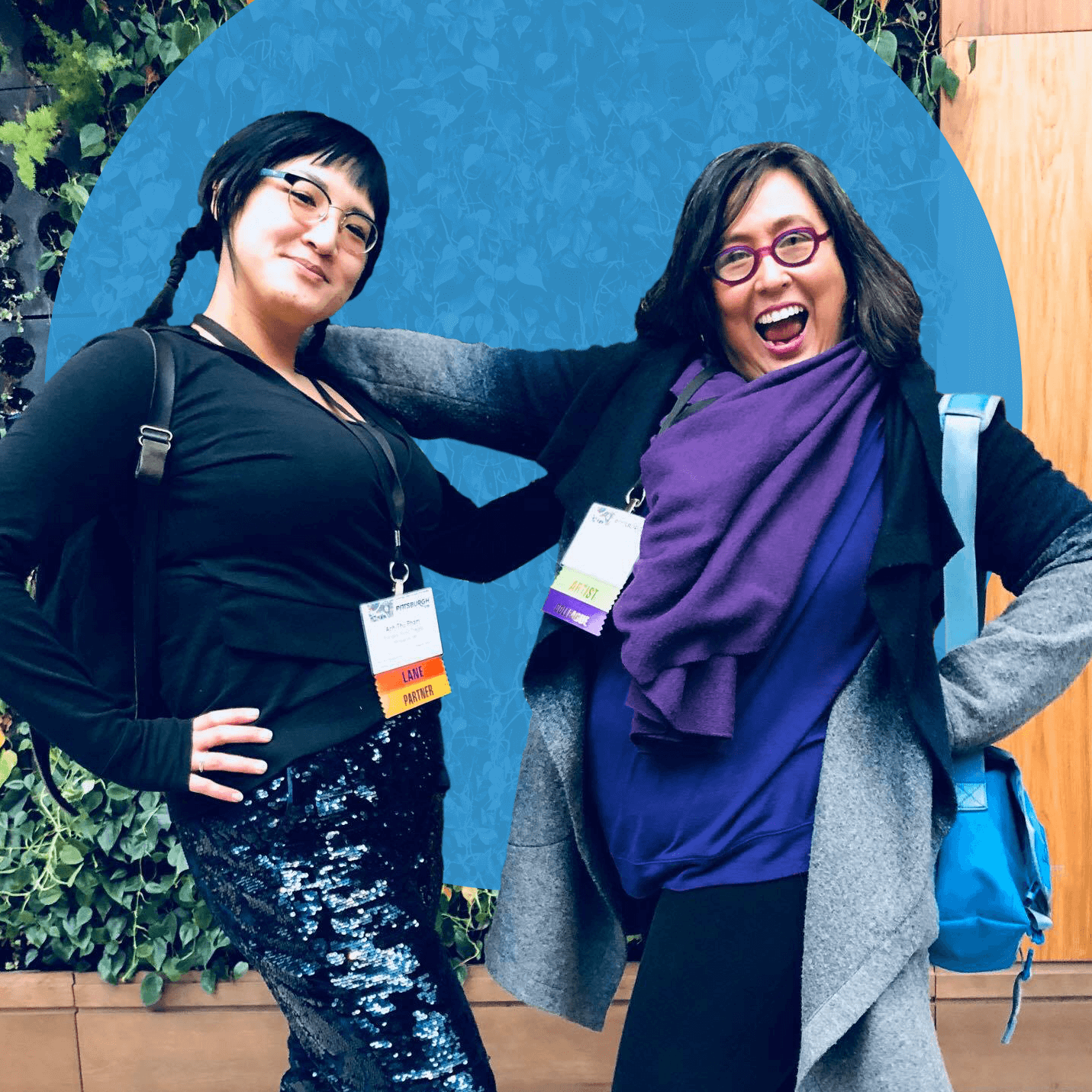
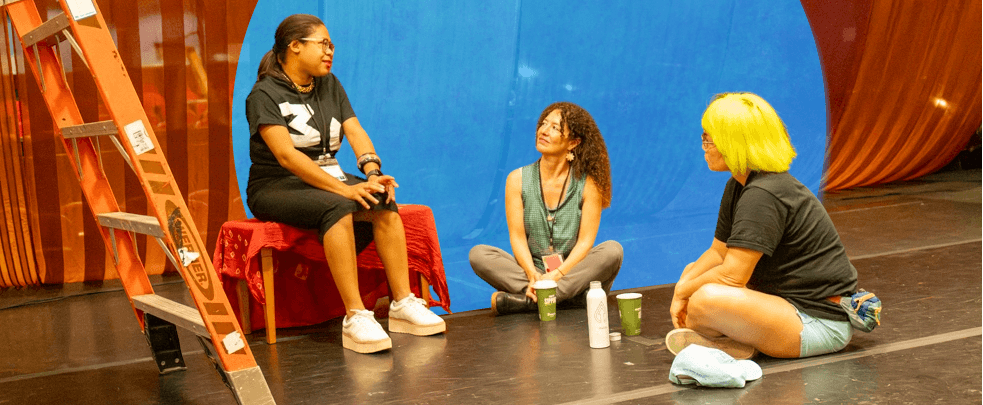
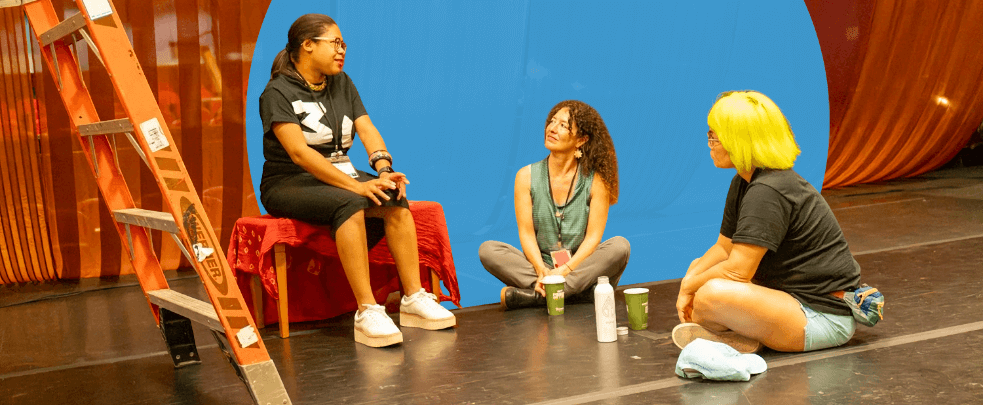
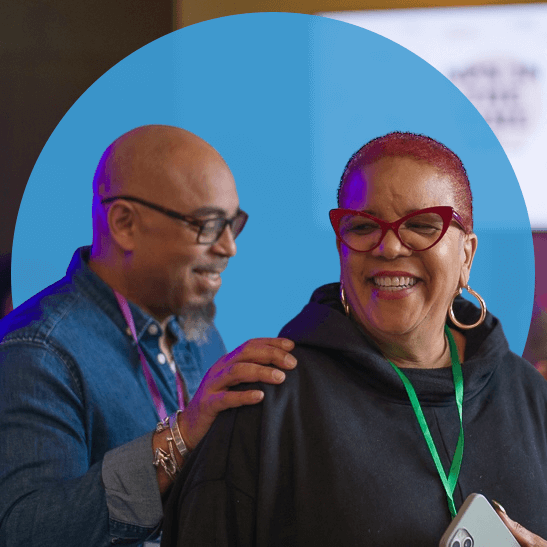
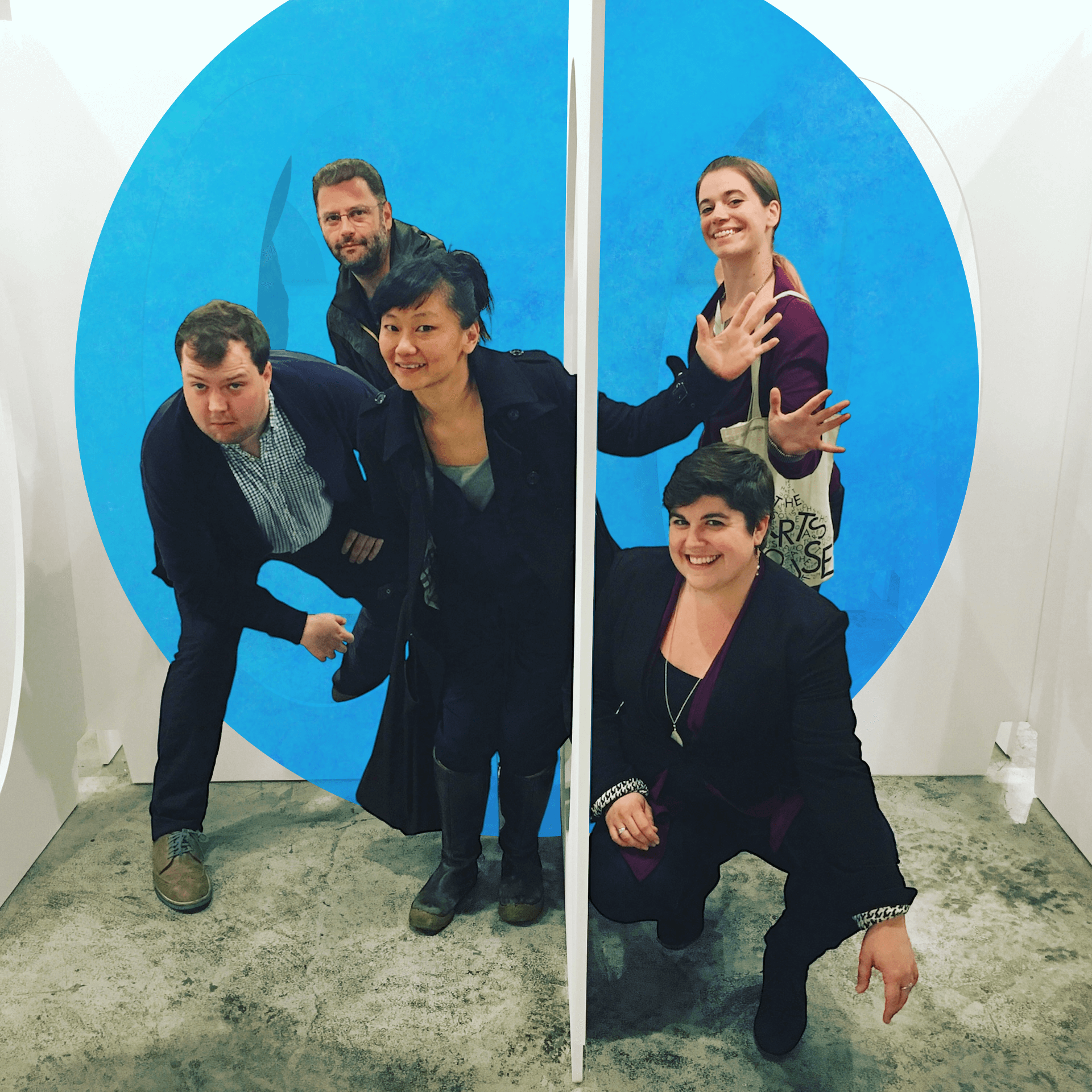
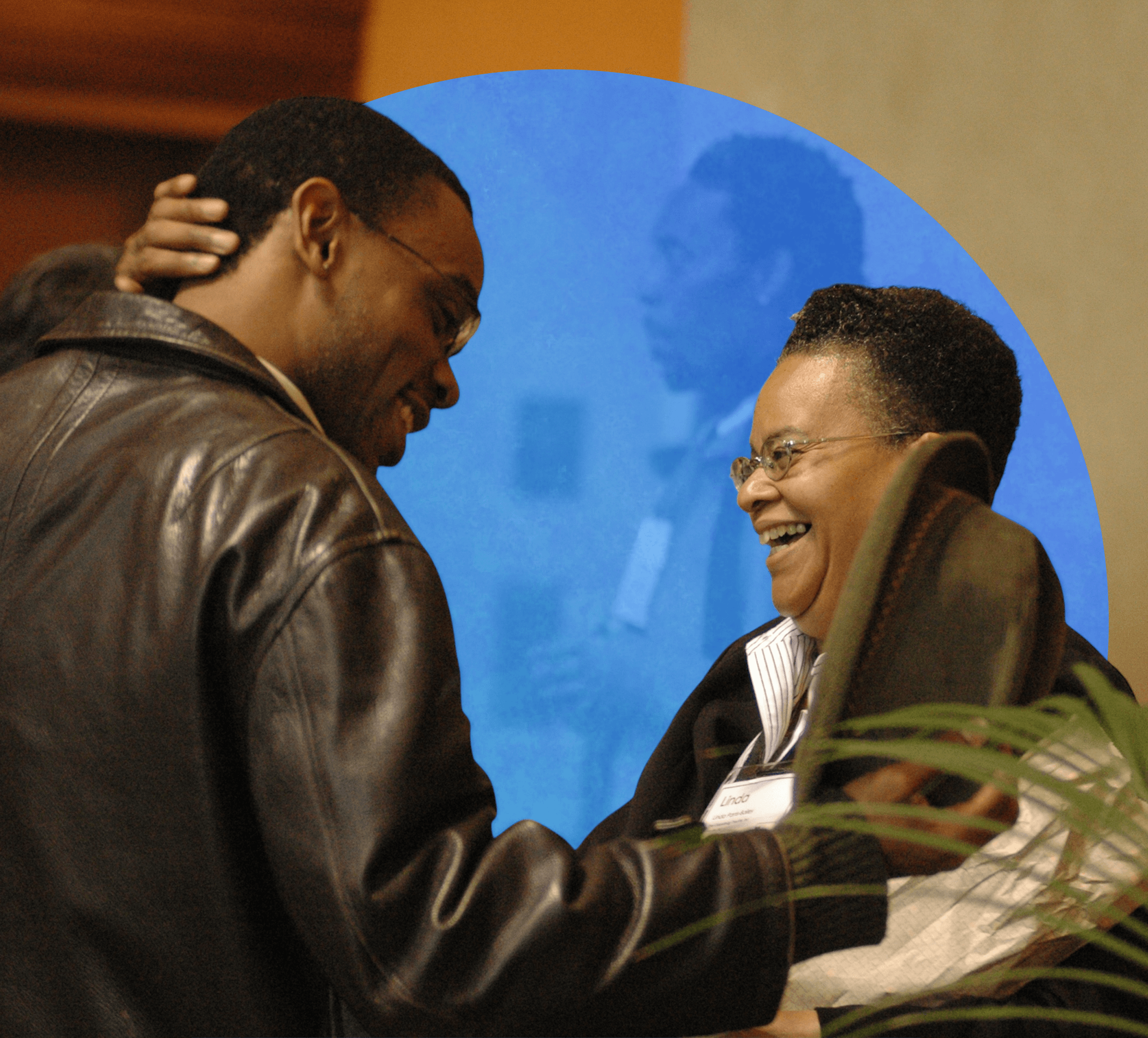
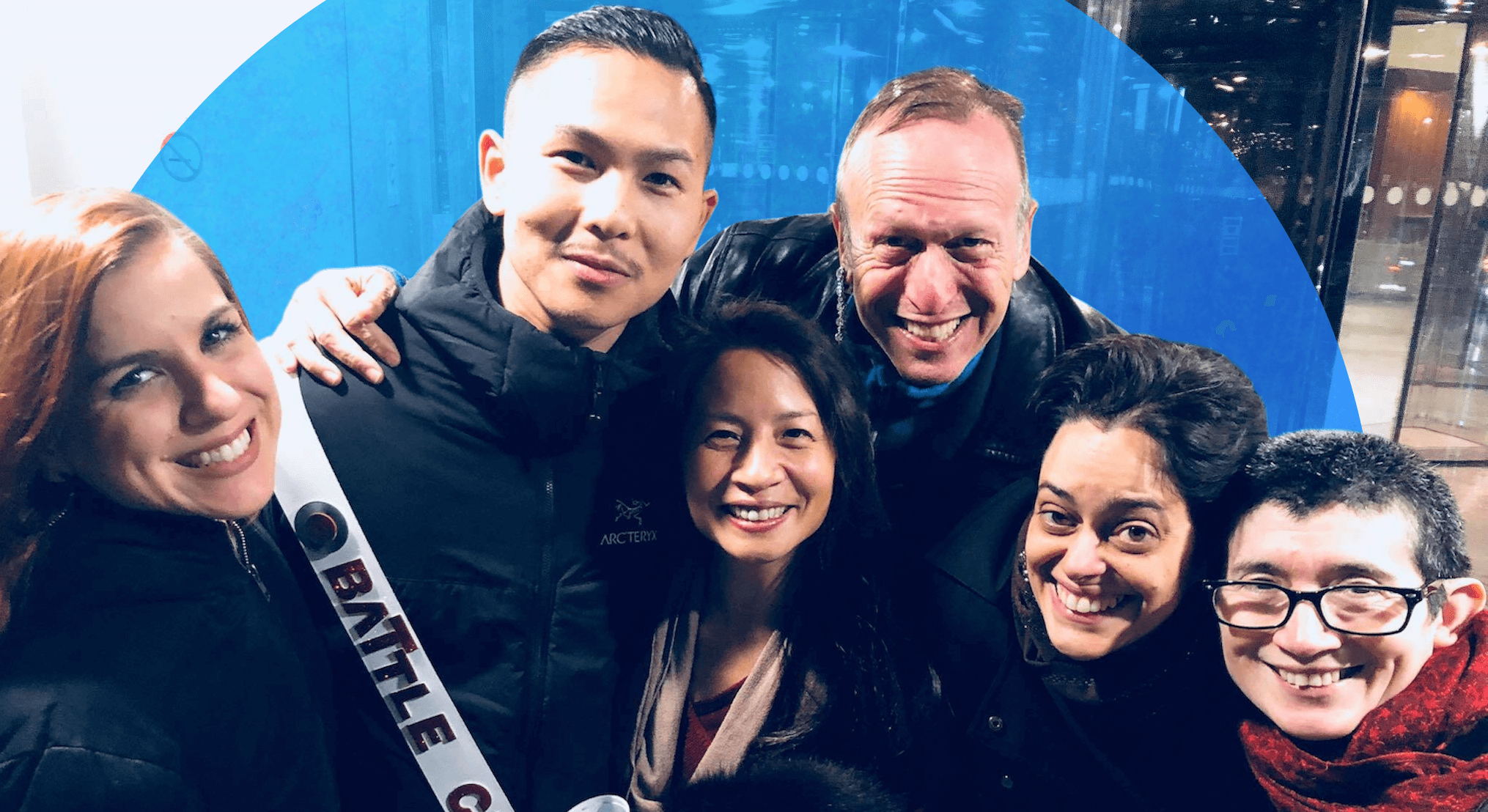
“You cannot change any society unless you take responsibility for it, unless you see yourself as belonging to it and responsible for changing it.”
As we kick off NPN’s 40th anniversary, we gather together to reaffirm the power of art and culture in social movements, meaning-making, civic engagement, and liberation. Our conference theme – Stormshaping: Adaptation, Resistance, Reimagination – is a call to action in tumultuous times, to not simply weather the storms but to reshape our world through collective strength, imagination, and solidarity.
NPN’s convening is a space for exchange, learning, and practice at the intersection of art, culture, justice, and power-building. It is an opportunity to turn toward each other in the face of systems designed to divide and destabilize, and to build connection, capacity, strategy, and care.
With the conference taking place alongside the 20th anniversary of Hurricane Katrina, it will also connect attendees with the complex and vibrant histories and cultures of New Orleans and the Gulf South.
All are welcome!
Read more about our Stormshaping theme from our April 2025 gathering in Houston.
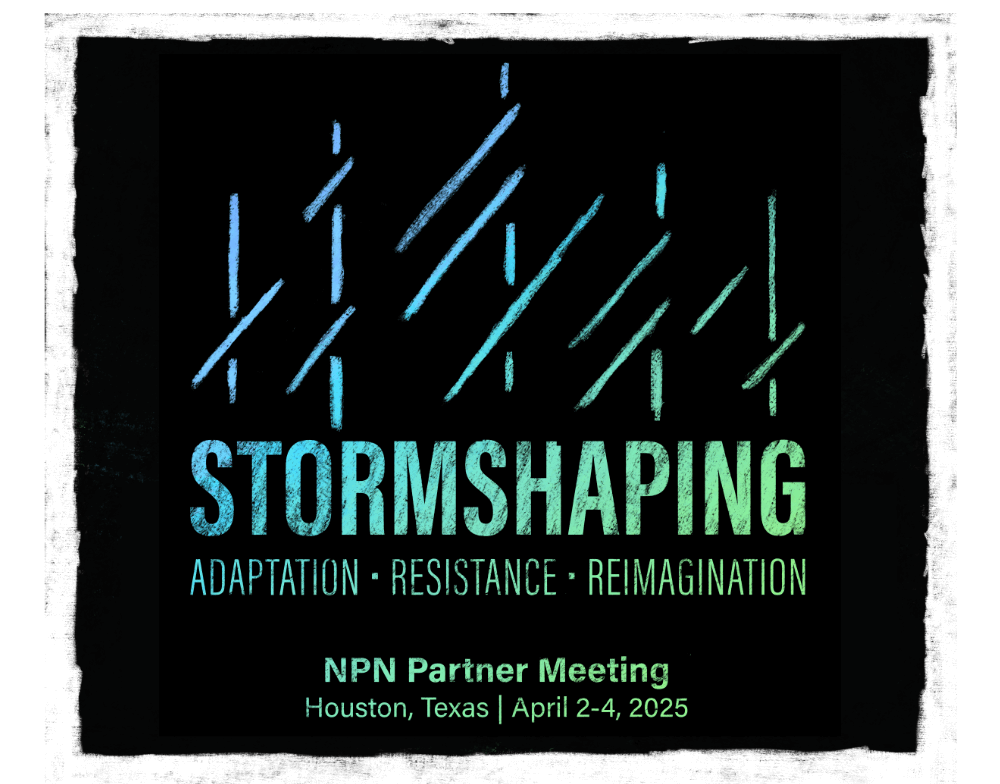
Schedule At-A-Glance
Monday, October 6
- 1:00 pm-6:00 pm Registration (Hotel Ballroom)
-
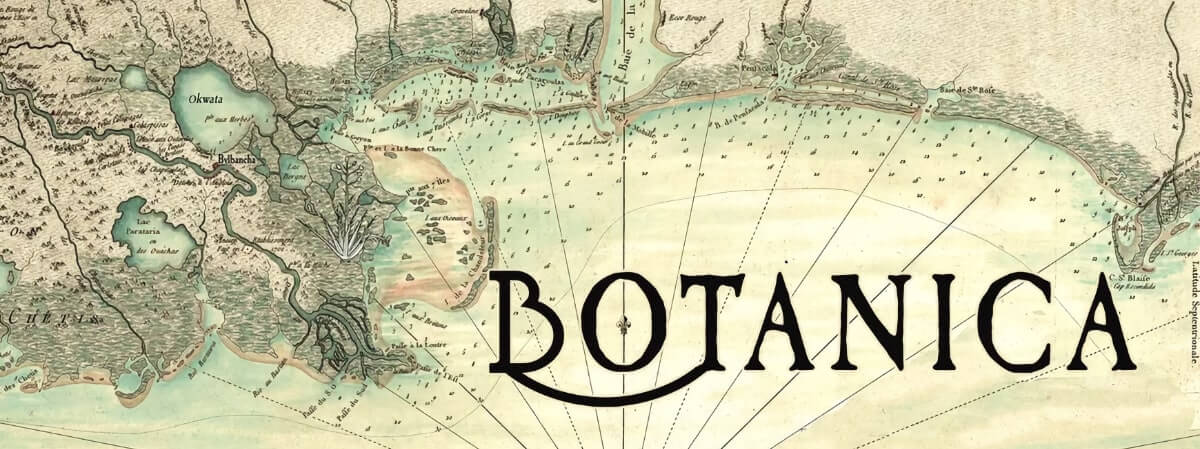
Join us for a guided visit of “Botanica: Gardens, Landscapes, and Plant Medicines in South Louisiana”, an NPN-supported exhibition that explores the cultural meaning of Louisiana’s medicinal plants and how traditional understandings are evolving in the face of climate change and land loss.
This immersive experience will be led by co-curator Monique Verdin, a member of the United Houma Nation and director of the Land Memory Bank and Seed Exchange—a project dedicated to inspiring and actualizing Mississippi River Delta preservation, restoration, and adaptation through cultural happenings, installations, and digital archiving.
Botanica is part of NPN’s commitment to supporting Southern artists working at the intersection of social change, cultural heritage, and environmental justice. The Land Memory Bank and Seed Exchange is a proud recipient of NPN’s Southern Artists for Social Change award.
Don’t miss this unique opportunity to connect with the living landscape of South Louisiana through art, storytelling, and Indigenous knowledge.
Learn more here:
https://louisianastatemuseum.org/exhibit/botanica-gardens-landscapes-and-plant-medicines-south-louisiana - 2:00 pm-3:00 pm Praxis Projects Meeting (open to NPN Partner Praxis Project grant recipients only)
- 3:00 pm-5:00 pm NPN National Partner Meeting (open to NPN National Partners only)
- 5:00 pm-6:00 pm NPN National Partner Social Happy Hour (open to NPN National Partners only)
-
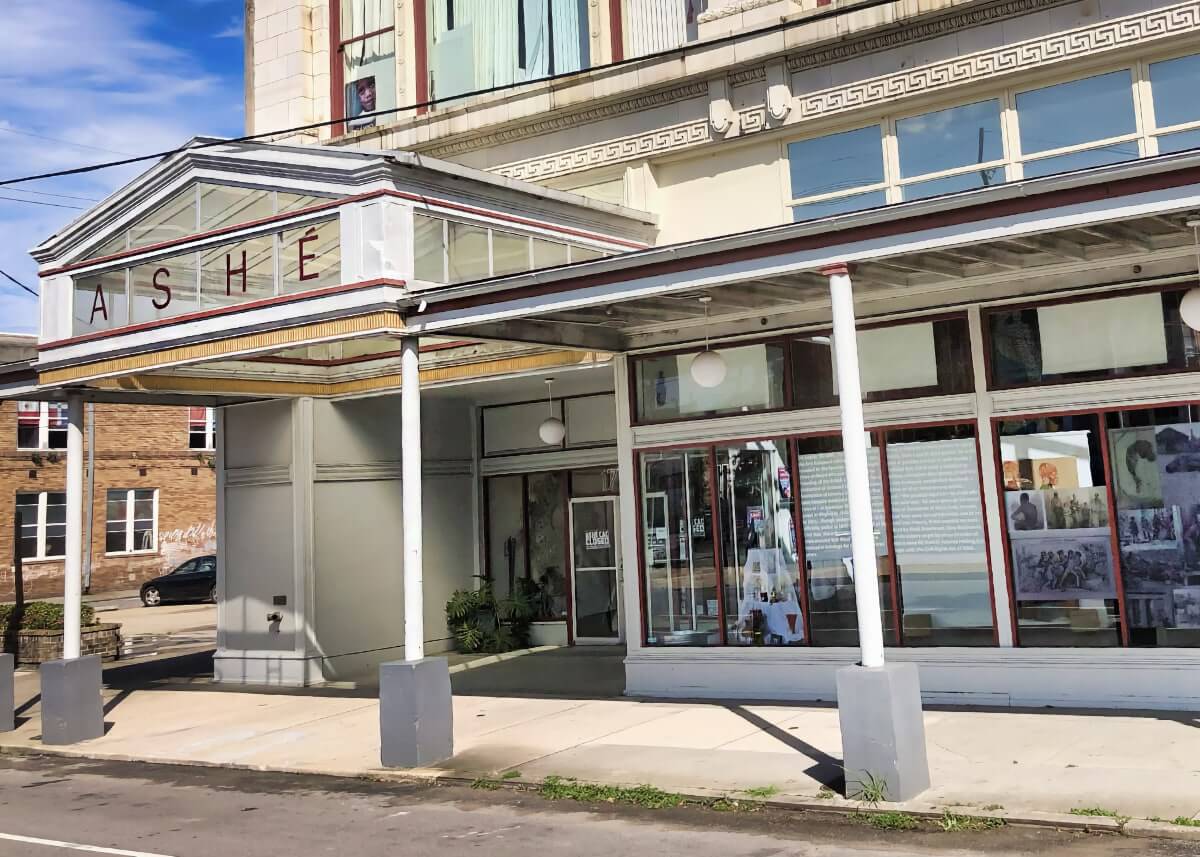
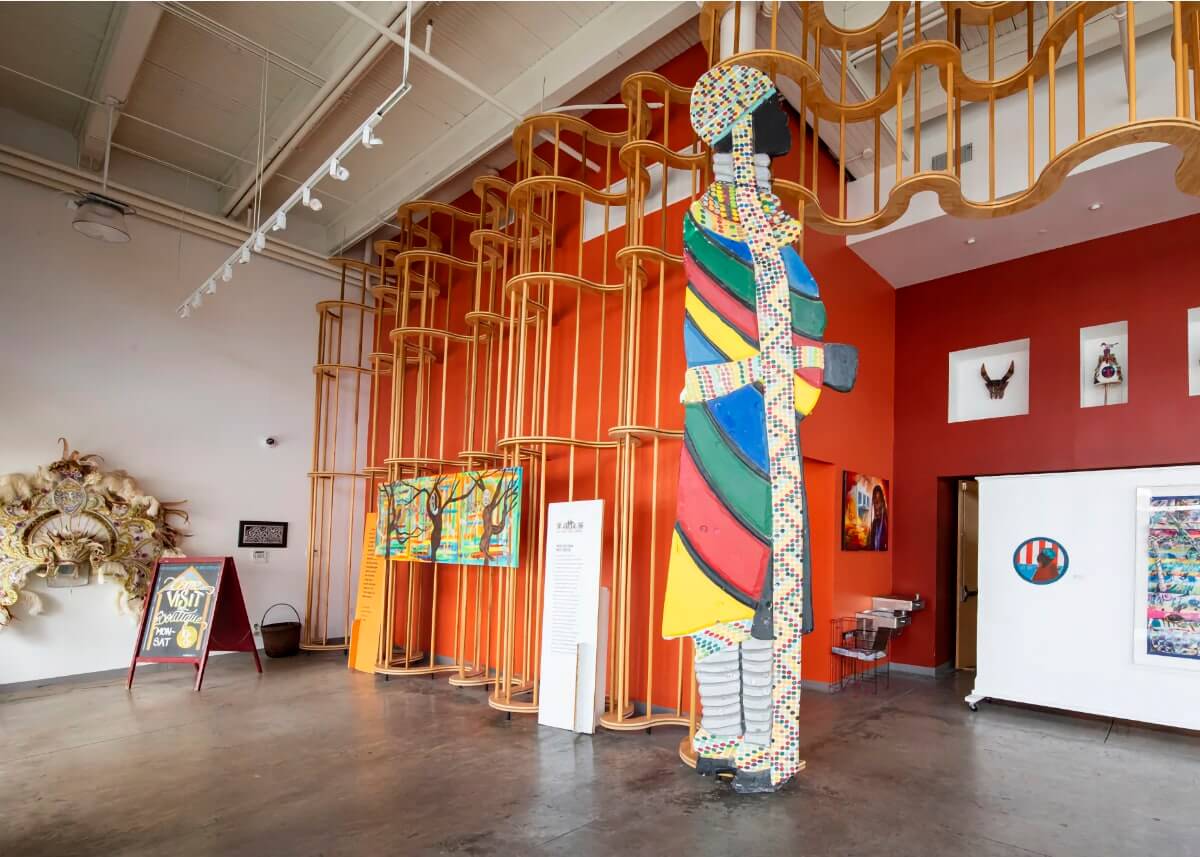
Our opening reception will be held at Ashé Cultural Arts Center and will be a chance to arrive not just at the conference, but into the greater context of New Orleans. Our conference is taking place alongside the 20th anniversary of Hurricane Katrina, and Ashé is one of the organizations that has anchored K20 commemorations. Ashé’s Katrina 20 Exhibition, “Old Orleans in the New Diaspora,” will be on view, with a gallery walk at 6:30. You’ll also be treated to an artburst by multidisciplinary performer and producer, Frederick “Wood” Delahoussaye. It’s Monday in New Orleans, so red beans and rice are on the menu, and there will be a cash bar for those so inclined!
Tuesday, October 7
- 9:00 am–5:15 pm Registration
-
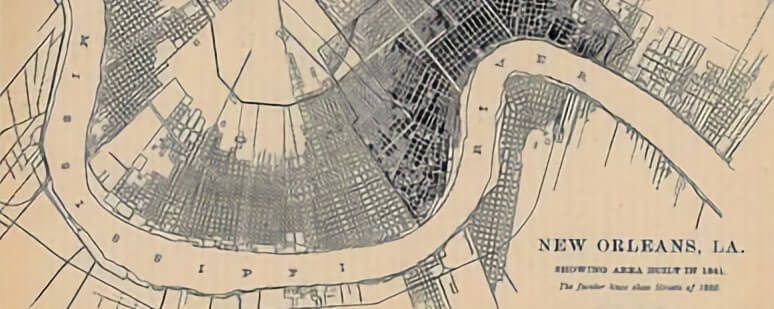
With “Take Me To The River,” guided by Houma Nation artists Monique Verdin and Hali Dardar, and Bvlbancha Public Access; a welcome from local host Junebug Productions; and Artburst with Cherice Harisson-Nelson and Queen Reesie Collective.
Morning Breakout Sessions — case studies, roundtables, and more
-
The measure of people’s potential for liberation is based on how different their culture is from their oppressors.
– Amilcar Cabral
During the conference, NPN and Project South will facilitate a three-day movement assembly. Assemblies are convenings organized to bring together people who work on a similar frontline of struggle in order to share analysis, collaborate, develop, and implement action plans that grow cohesion and unity for frontline power. The Cultural Movement Assembly (CMA) is an opportunity to engage the art and culture ecosystem as a frontline in the struggle for justice. In this time of authoritarianism and proto-fascism, there is a mandate in front of us to build collective power, face the world in which we live and do our work, and work towards the world we all deserve. -

This immersive, sensory workshop invites healers, cultural workers, and community caretakers to ground their practices in a collective, embodied ritual of “soil determination.” Centering the American South as an abundantly rich ecosystem of creativity and ancestral technology, we explore land and body as text through film, storytelling, and a guided Cosmogram mapping exercise that links personal, ancestral, and ecological constellations. Participants will trace personal and communal lineages, engaging rural Mississippi’s spirit and ingenuity as a living medicine for collective liberation.
Type:
Facilitated interactive session
Topic:
The American South
Facilitators
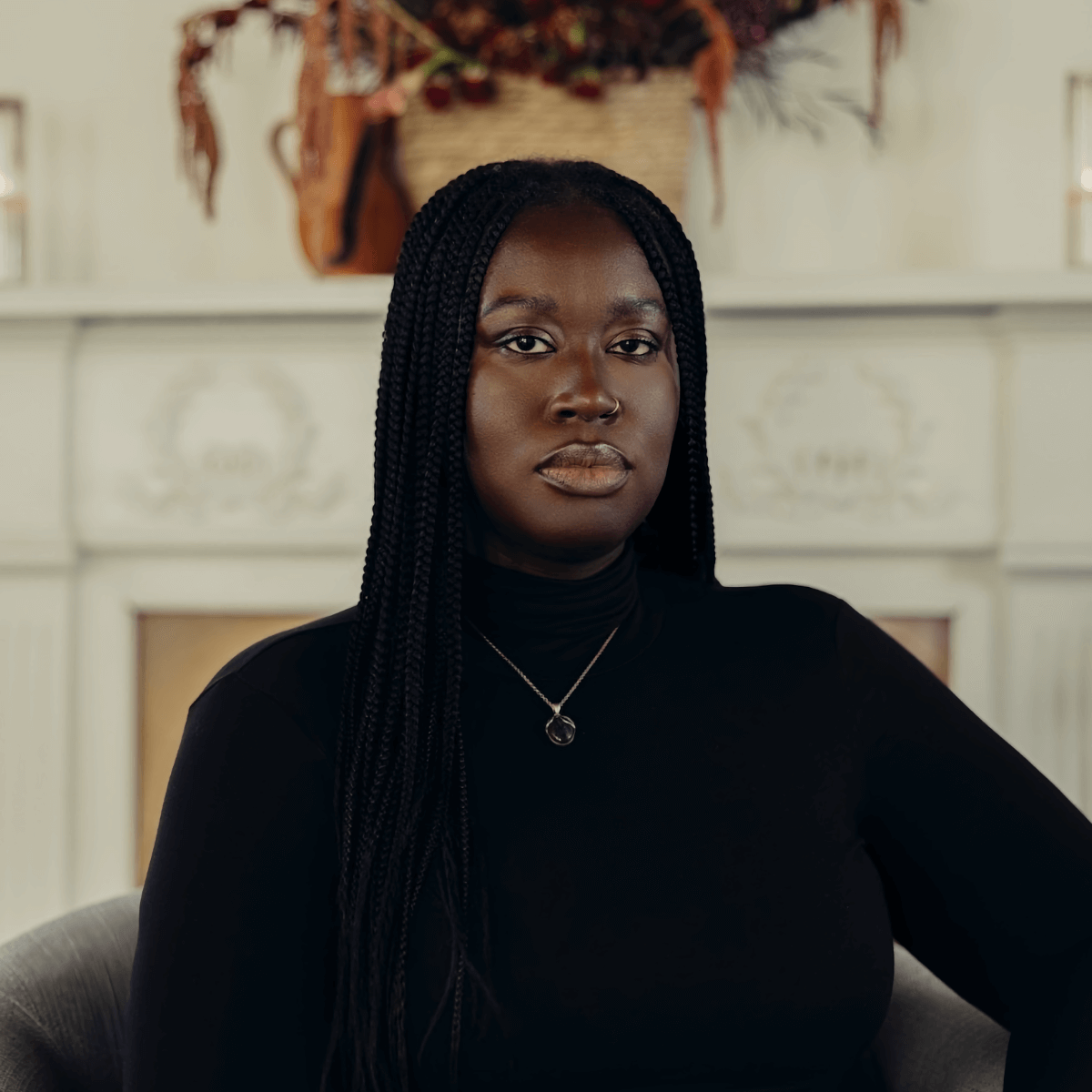
Nana Kumi. Photo by Chauncey Mangum. Nana Kumi (she, her)
Independent Artist, Gholden Alchemy
Nana Kumi [Nah-Nah Koo-me] is a queer black southern artist, emerging filmmaker, spiritual herbalist, and land steward from Natchez, Mississippi. Her visual work translates the language of plants, visions, and dreams into naturalist and afro-surrealist landscapes as activation sites for re-remembering. She proudly uplifts Mississippi as the fertile lands that shaped her, along with her ancestry from West Africa and Brazil — lineages that inform both her creative and spiritual work.
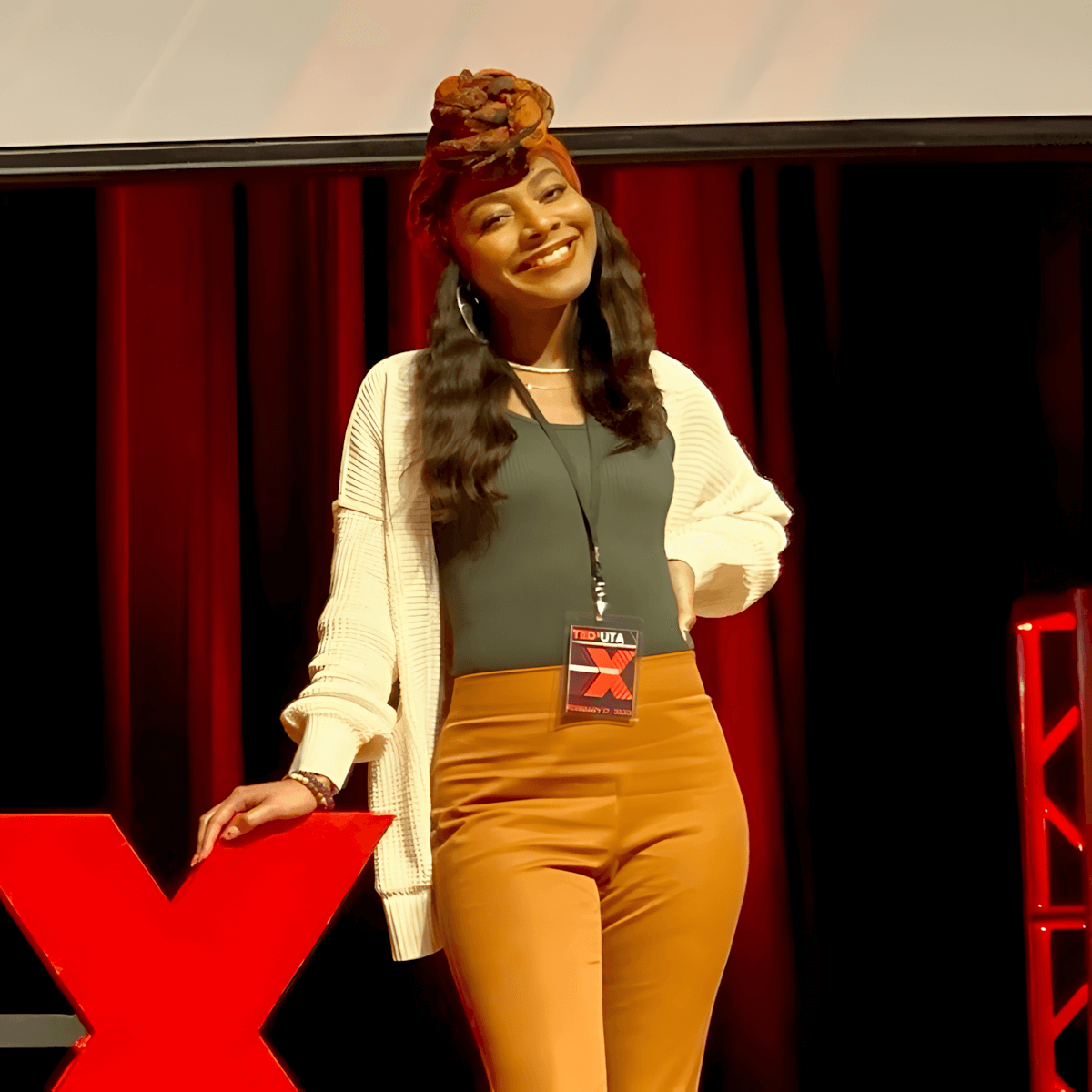
Shabaz Brown. Photo by Sabrina Jasmin Hammoudeh. Shabaz Brown (she/her)
Artist / Director of Intercultural Engagement, University of Texas – Arlington
Shabaz Brown [Sha-Boz Brown], a Mississippi native, holds degrees in Human Sciences and Educational Psychology. A proud member of Delta Sigma Theta Sorority, Inc., she brings over 10 years of experience in Multicultural Affairs. Shabaz currently serves as Director of the Intercultural Student Engagement Center, where she empowers communities, supports student success, and leads with equity. She enjoys mindfulness, hiking, and building meaningful campus relationships.
-

What if, instead of a play, theatre was a backyard garden; a fugitive library; a taller for dreaming; a meal with friends and strangers; or a place where we gather to tell stories, fully embodied, at a table of our own making where nobody goes hungry? This session will be part case study outlining the evolution of a todo dar productions, and part interactive workshop where audience members will share their biggest, boldest, most audacious dreams and how the theatre they are making reflects the world they imagine.
Type:
Facilitated interactive session
Topics:
Artists’ labor and lives
Creation and mobility
How we work
Political life
The American South
Facilitators
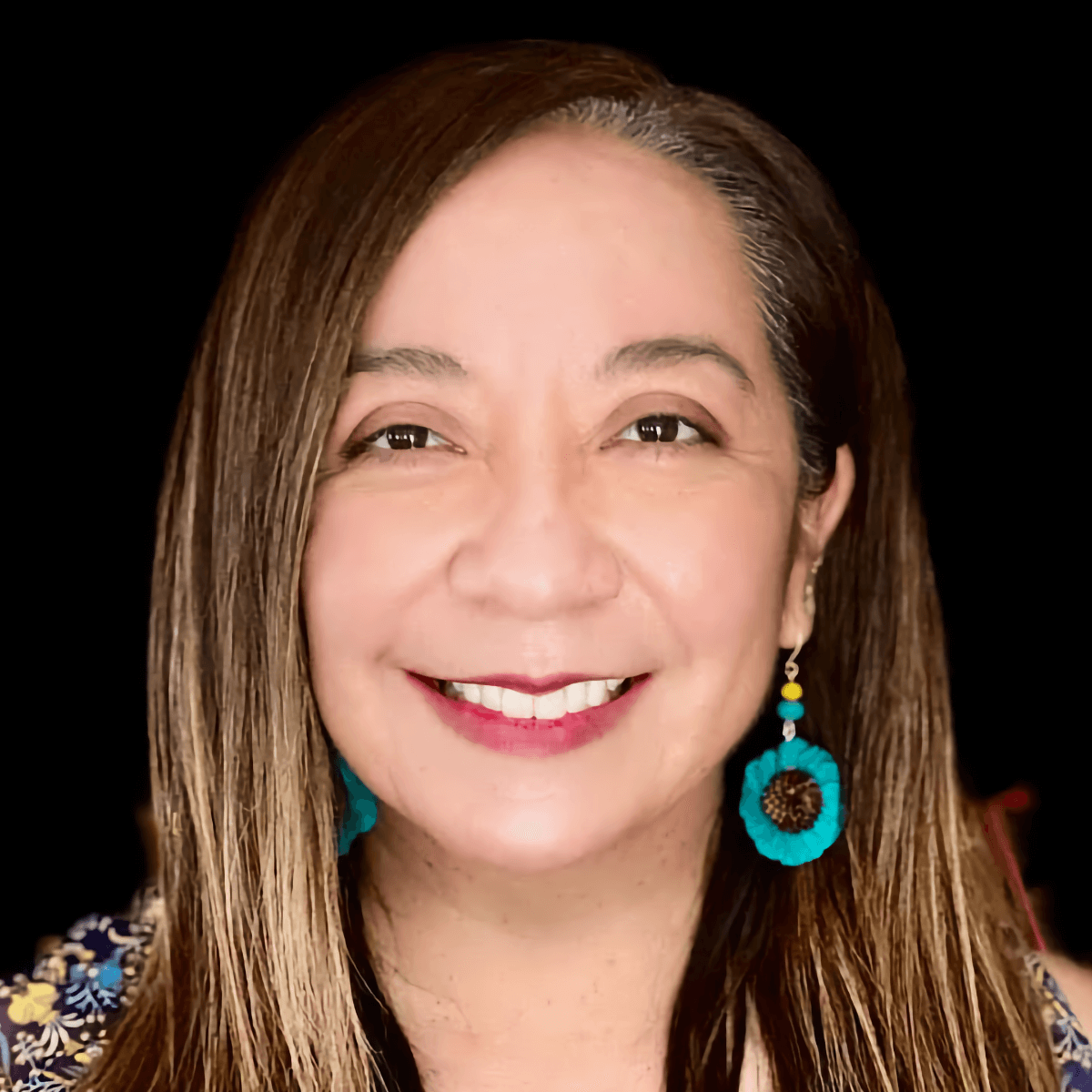
Marissa Ramirez. Photo by Maricella Infante. Marissa Ramirez (she, her, hers)
Creative Producer, Fugitive Libraries, a todo dar productions
Marissa Ramirez designs arts-based interventions and creates public spaces for reading the world culturally and politically. She is a founding member of Books in the Barrio, established in 2003, in an effort to bring attention to the lack of bookstores on the South Side of San Antonio. Books in the Barrio continues as an ongoing grassroots campaign promoting self-determination and autonomy through literacy.
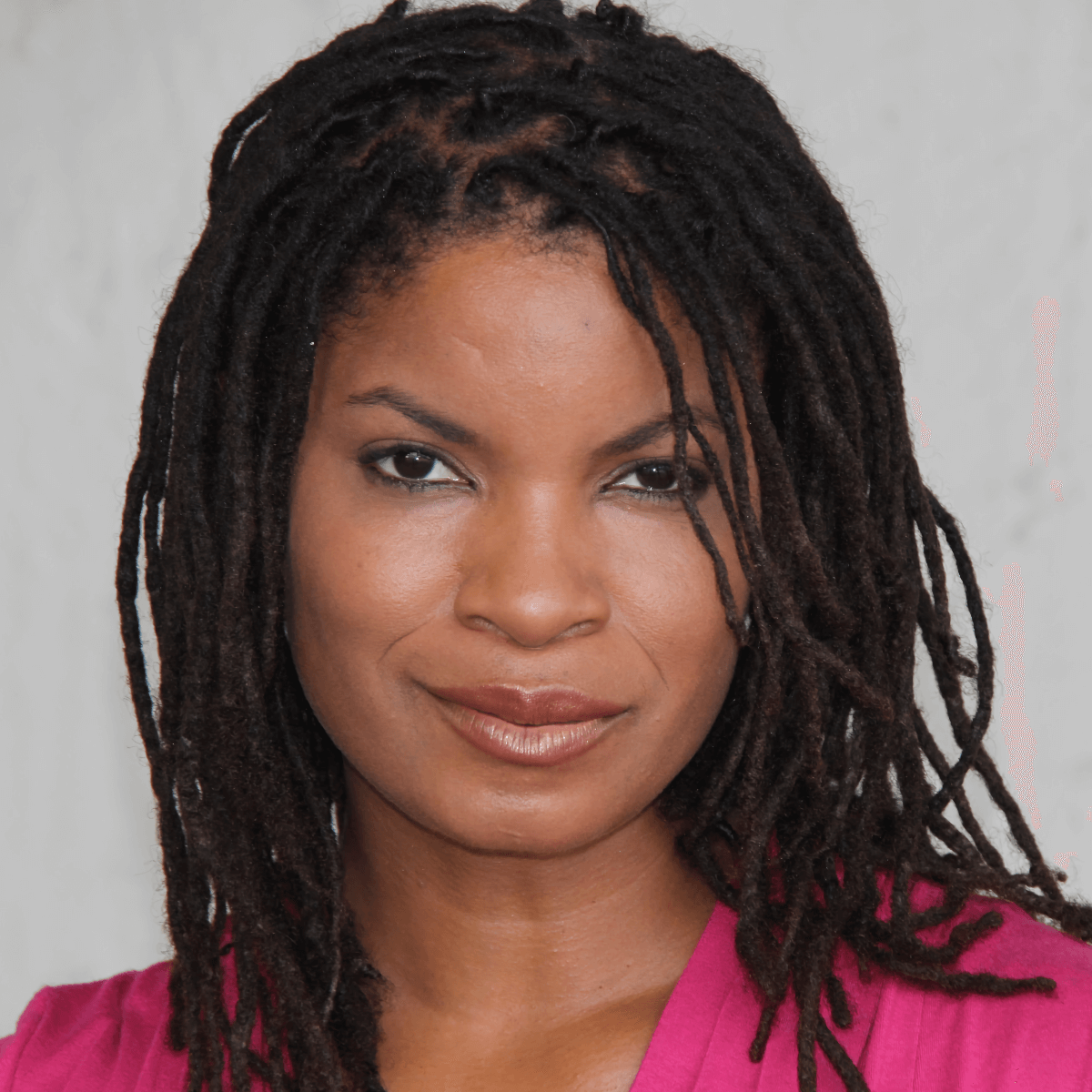
Kendra Ware. Kendra Ware (she, her, hers)
Creative Producer/Director, a todo dar productions
Kendra Ware is a multidisciplinary performance artist whose practice encompasses staged environments, experimental art-making, live performance, video, and installation. Her work interrogates the intersections of race, gender, class, cultural politics, and identity, challenging social norms and notions of otherness. Ware’s staged works range from traditional theater settings to site-specific interventions, such as prisons, underpasses, street corners, bookstores, plazas, and parks.
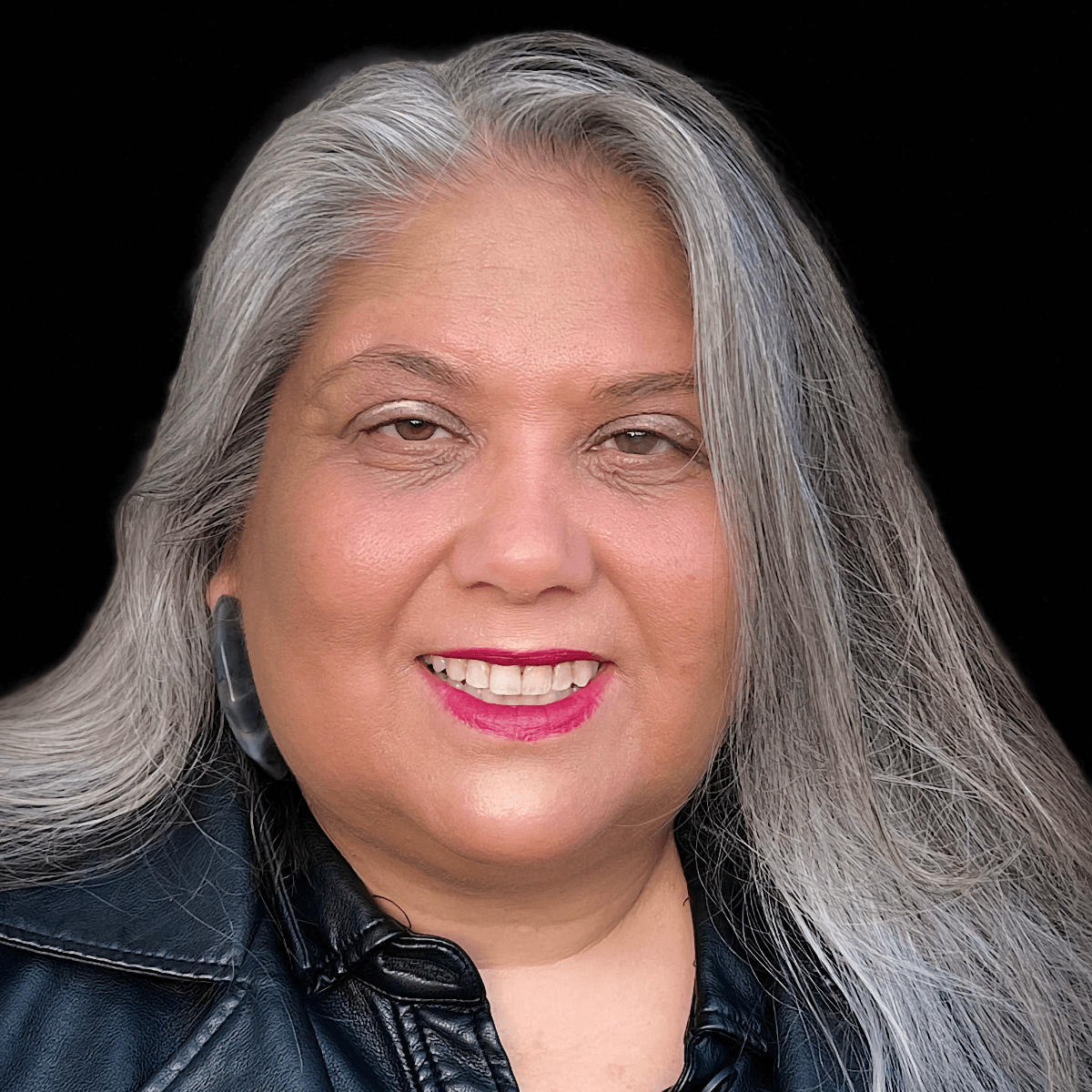
Virginia Grise. Photo by Maricella Infante. Virginia Grise (she, her, hers)
Creative Producer, Fugitive Libraries, a todo dar productions
Virginia Grise is a founding member of a todo dar productions. Her interdisciplinary body of work as a writer, director, performer and creative producer includes plays, multimedia performance, dance theater, performance installations, guerilla theater, site specific interventions, and community gatherings. She is an Assistant Professor in Theatre and Dance at the University of Texas at Austin and currently serves as the Mellon Foundation Playwright in Residence at Cara Mia Theatre.
-

This panel shares the unique development process and findings for performance art and film created through participatory research with Latino essential workers in Paul S. Flores’ Somos Esenciales/We Are Essential, which addressed racial justice and mental health. Presenter and dancer Milteri Tucker Concepción will also share how Puerto Rican Bomba dance empowers and heals, develops leadership in youth of color, and improves mental health for incarcerated populations. Together, we discuss how we approach racial justice through participatory action research, and develop performance productions that feature culturally grounded healing practices outside clinical settings.
Type:
Small group discussion
Topic:
Artists’ labor and lives
Creation and mobility
How we work
Political life
Speakers
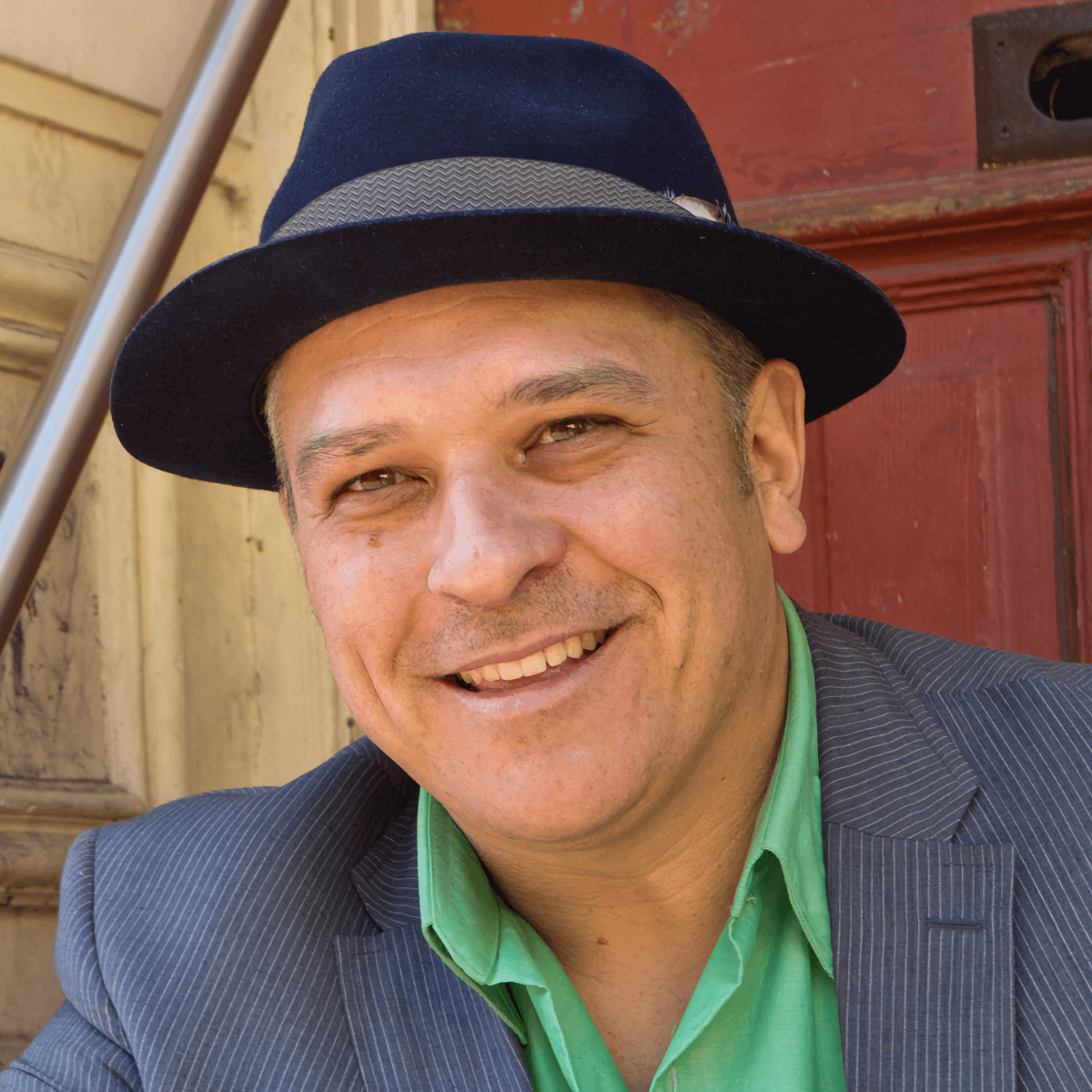
Paul S. Flores. Photo by Tommy Lau. Paul S. Flores (he him his)
Writer/Performer/Director
Paul S. Flores [Pawl FLOD-es] is a San Francisco artist of Mexican and Cuban-American descent who integrates indigenous and Latino healing practices to tell the stories of real people impacted by immigration and systemic inequalities. He is author of plays We Have Iré (2019); PLACAS (2012); and On The Hill: I Am Alex Nieto (2016). Paul is a Doris Duke Artist Award winner and 2024 American Book Award winner. He is Principal Investigator of the NIH funded Somos Esenciales project, and teaches theater at USF.
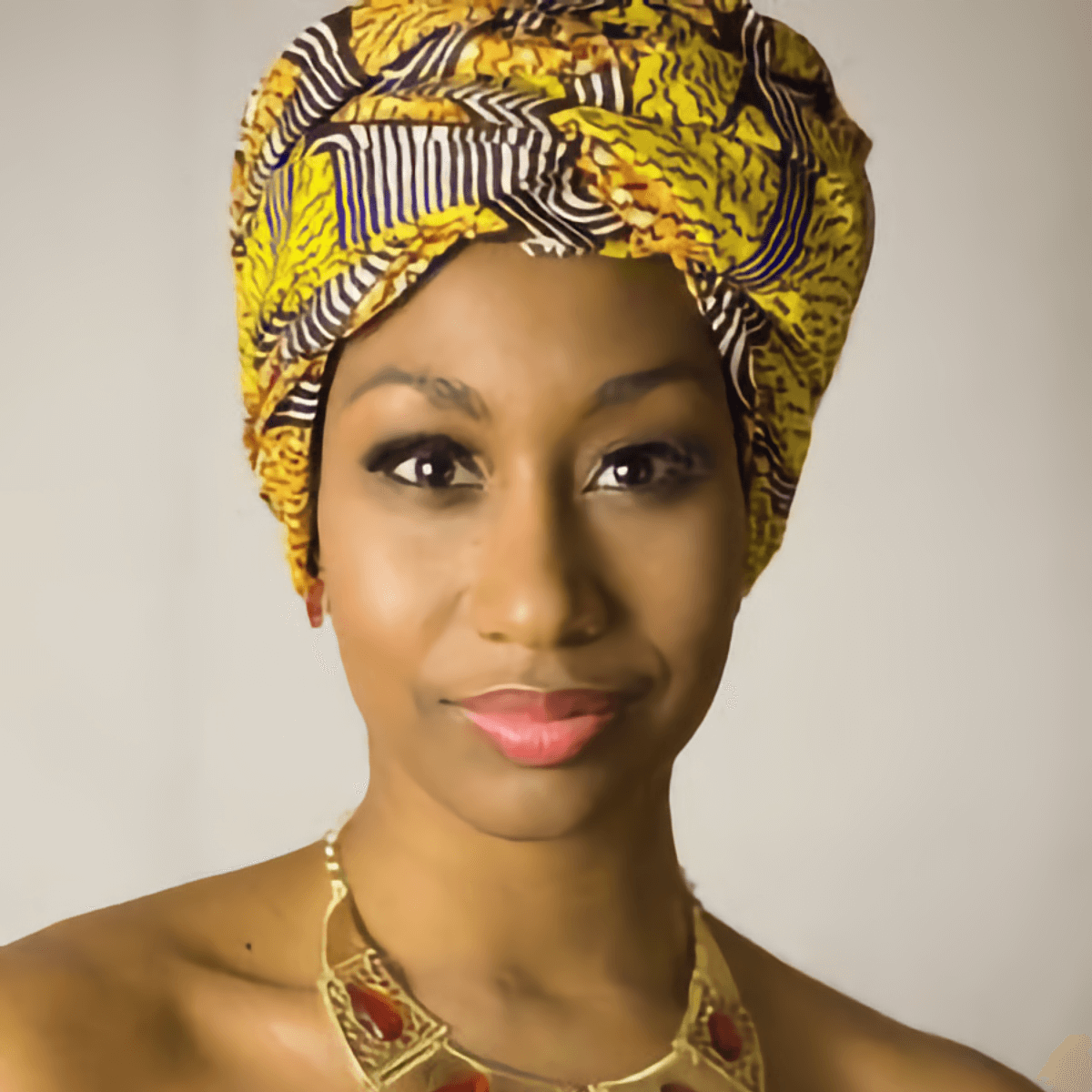
Milteri Tucker Concepción. Photo by Sabrina Jasmin Hammoudeh. Milteri Tucker Concepción (She Her)
Founder/Artistic Director, Bombazo Dance Co.
Born and raised in Puerto Rico, Milteri Tucker Concepción [Mil-TERI Tuck-er Con-Cep-ci-ON] holds degrees in Dance, Biology and Chemistry as well as a Masters Degree in Dance Education from New York University. She is the founder and artistic director of Bombazo Dance Co, a Puerto Rican Bronx based non profit dance organization that preserves, educates, advocates and performs Bomba Puertorriquena. As an educator and master Bomba dancer, she lectures on dance technique, figure and timing across the United States and the world.
- 12:45 pm–2:30 pm Lunch Break (on your own)
-
Hosted by the Arts Administrators of Color Network, join this interactive affinity space centering Black, Indigenous, and People of Color and global majority-identifying artists and arts administrators. This session offers a space to connect, reflect, and recharge alongside peers with shared lived experiences in the arts and culture sector. Facilitated by Erika Hawthorne, Arts Administrators of Color Network; and Andre Mazelin, Dance Place. Lunch provided. RSVP required.
Afternoon Breakout Sessions — case studies, roundtables, and more
-

In today’s world—shaped by political upheaval, attacks on human rights, rising cost of living and doing business, decreased funding, and environmental disasters—artist mobility* feels increasingly untenable. NPN is partnering with the Design Studio for Social Intervention (DS4SI) to ask: What else is possible? Guided by DS4SI’s Ideas, Arrangements, and Effects framework, DS4SI will host a visioning session to reimagine what artist mobility could look like in this shifting landscape. This conversation invites artists, presenters, creative producers, funders, and administrators from across the field to collectively envision healthier, more equitable ways for artists to share their work with communities.
*By “artist mobility,” we refer to the broad spectrum of creative exchange in which artists bring their work to new communities through touring, residencies, and other forms of exchange.
Speakers
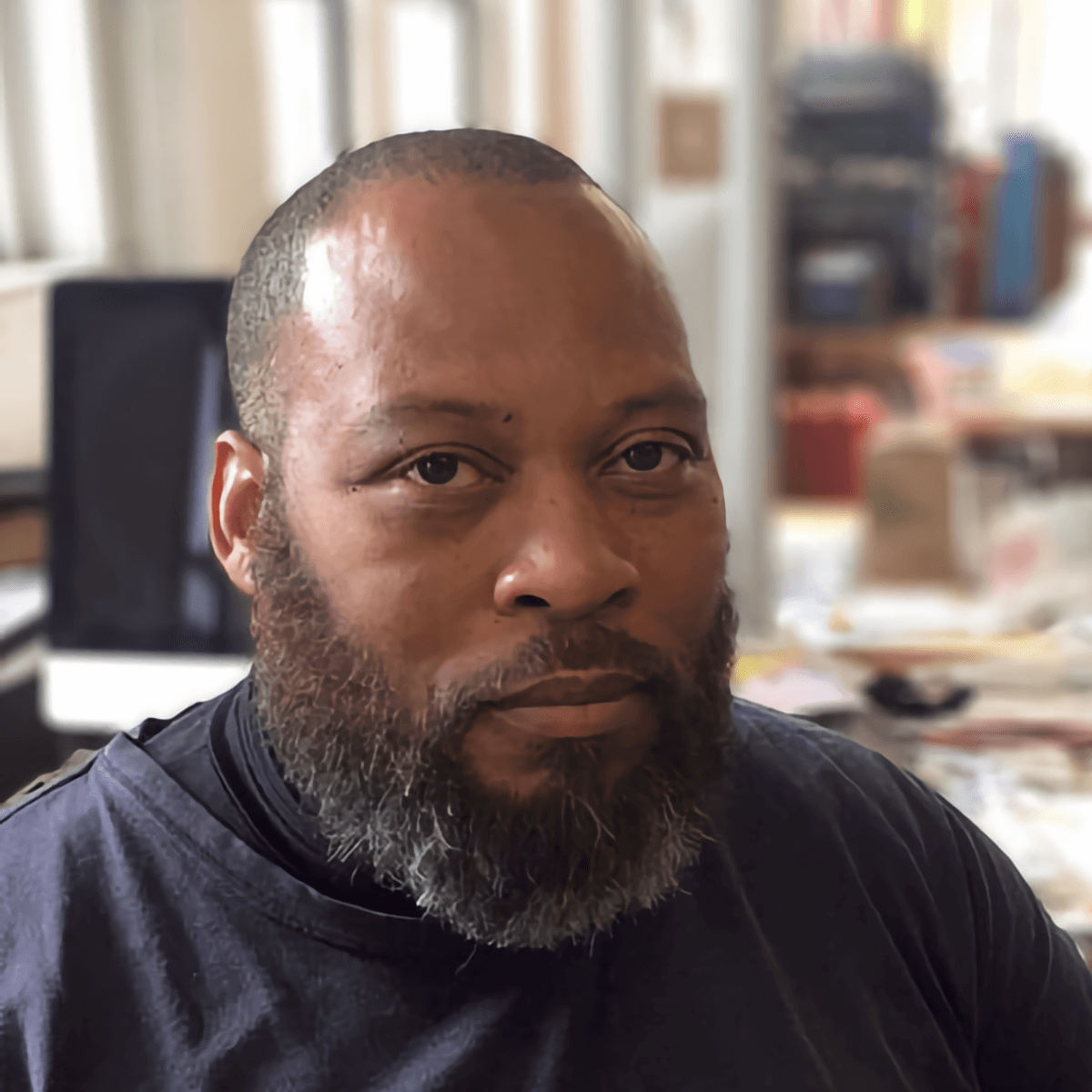
Kenneth Bailey. Kenneth Bailey (he, him)
Founder and Methodology & Strategy Director, Design Studio for Social Intervention
Kenneth Bailey is the co-founder of the Design Studio for Social Intervention. His interests focus on the research and development of design tools for marginalized communities to address complex social issues. With over three decades of experience in community practice, Bailey brings a unique perspective on the ethics of design in relation to community engagement, the arts and cultural action. Projects he has produced at DS4SI include Action Lab, Public Kitchen, Social Emergency Response Center (SERC), People’s Redevelopment Authority and inPUBLIC. Bailey was a Visiting Scholar in collaboration with University of Tasmania and also a founding member of Theatrum Mundi NYC with Richard Sennett. With DS4SI, he co-authored the book Ideas Arrangements Effects: Systems Design and Social Justice (Minor Compositions, 2020). He received his MFA in Public Action from Bennington College in 2021.
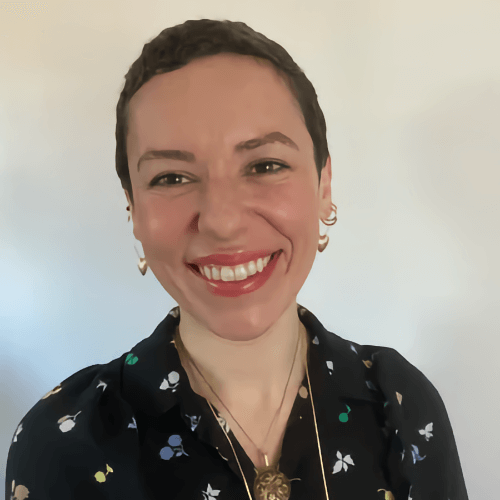
Raquel Friedman Vargas. Raquel Friedman Vargas (she, her)
Director of Operations, Design Studio for Social Intervention
Raquel Friedman Vargas is a process-oriented creative who loves a challenge. With more than a decade of experience supporting artists, artisans and change-makers, she is passionate about reinventing systems to center the needs of their user community. Prior to joining DS4SI Raquel served as the Chief of Staff at Free Arts NYC. She recently earned a Master’s Degree in DEIJ Leadership from Tufts University where her research centered on board transformation/guiding meaningful change in predominantly white spaces, and de-colonial scholarship.
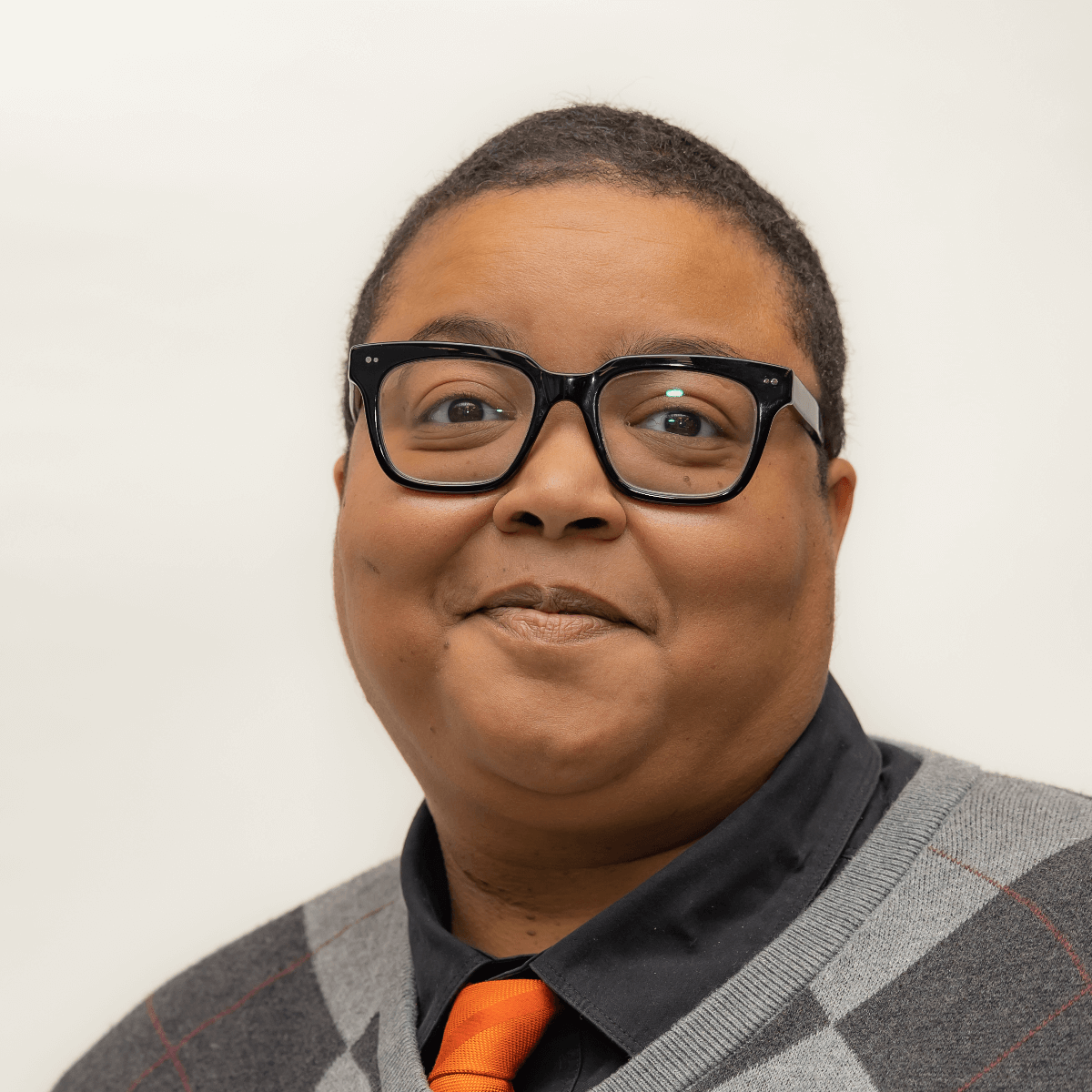
Ayoka Turner. Ayoka Turner (she, her)
Design Studio for Social Intervention
T. Ayoka Turner is a trainer, operations nerd, lay minister and lifelong learner. She has over 30 years of experience partnering with communities and leaders of organizations to fight for social and community change, and has built a skill set that integrates a deep knowledge of organizing with a love of infrastructure building. This combination of skills has supported key movement organizations in restructuring their organizations to be more effective and efficient in fighting against racial capitalism and institutionalized white supremacy. Most recently Ayoka served as the Vice President of Operations for the Astraea Lesbian Foundation for Justice. Prior to Astraea, Ayoka held roles as the Chief of Staff at the Movement Strategy Center, Chief of Staff at the Black Organizing Project, as well as leadership roles with Black Lives Matter, Center for Third World Organizing/CTWO and a long-term consulting partnership with the Design Studio for Social Intervention.
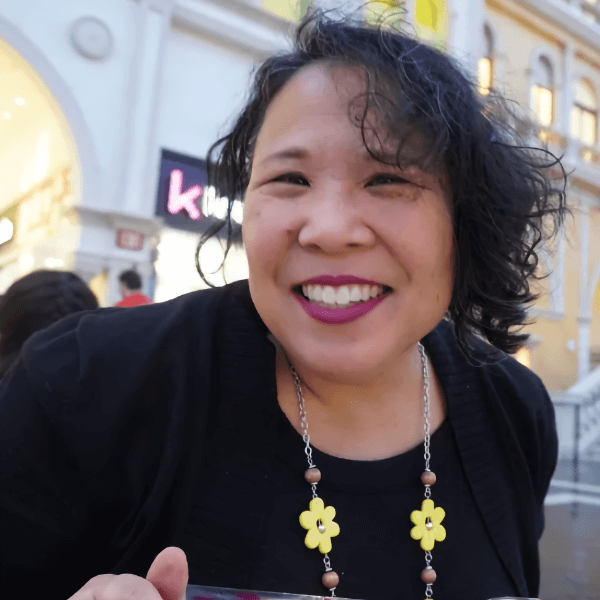
Karen Young. Karen Young (she, her)
Design Studio for Social Intervention
Karen Young is a cultural organizer, taiko player and teaching artist based in Boston. She has founded and helped launch many creative projects on a local, national and international level including the Genki Spark, the Brookline Cherry Blossom Festival, Re-Imagining a New World, and Older and Bolder, as well as served in an advisory capacity for the Radical Imagination for Racial Justice regrating program.
-
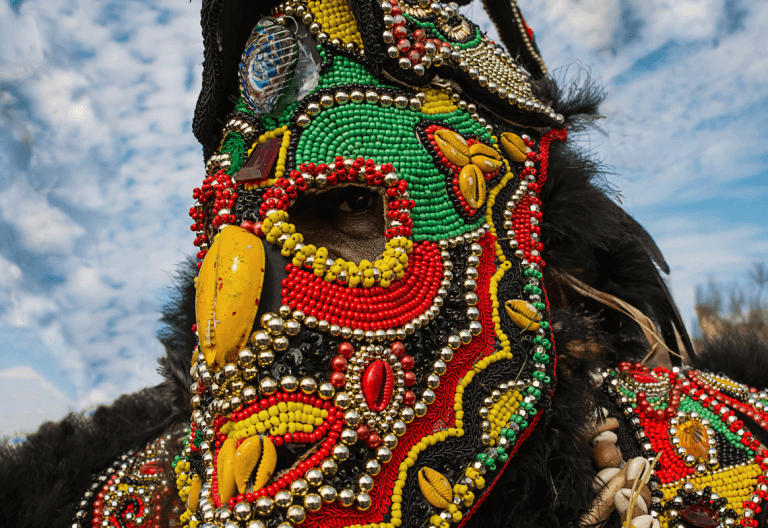
Eric Waters, Victor Harris “Mandingo Warriors” FiYiYi, 2015, Pigment Print, 30 x 24 inches, Collection of the Artist The Ogden Museum of Southern Art has the largest and most comprehensive collection of art from the US South, and serves as an important institution for understanding the region through its artists. In addition to their standing collection, current exhibitions include Louisiana Contemporary; Looking Back at Katrina 20; and The Flags of Our Mothers, works by Raven Halfmoon.
-
Explore the city, unwind, or experience art and community together. We’ve organized a few optional events specifically for conference attendees—including Mondo Bizarro Presents—and have included other recommendations you can do on your own or in self-organized groups.
About Mondo Bizarro Presents
Mondo Bizarro is curating a two-night mini-showcase, featuring live excerpts of new performance work by NPN-supported artists. Performances take place at Catapult, a gathering place for experimentation and creative collision. Each night will feature three short performances, followed by a social hour with the artists.
Space is limited: Registration required.
Featured Performances and Artists
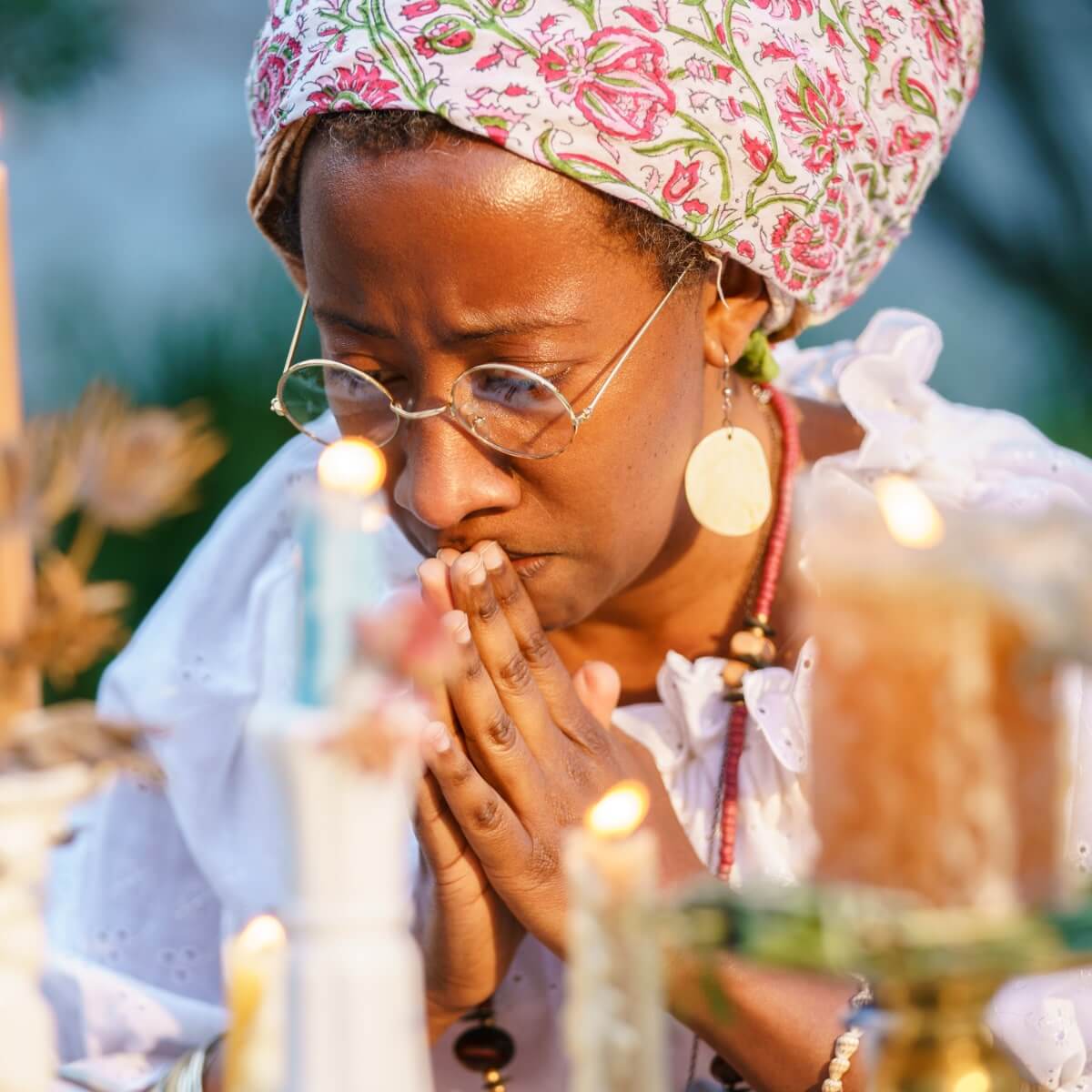
Denise Frazier performing the character Carlota. Photo by Joshua Brasted. Carlota, produced by Goat in the Road Productions
Carlota is a new play with music that portrays the extraordinary life of Carlota Ruíz de González, a fictional character rooted in the histories of Cuban and New Orleans. It is produced by Goat in the Road Productions (GRP), an ensemble theater company founded in 2008 that creates dynamic original plays and fosters young artists to reveal the untold stories of our New Orleans community.
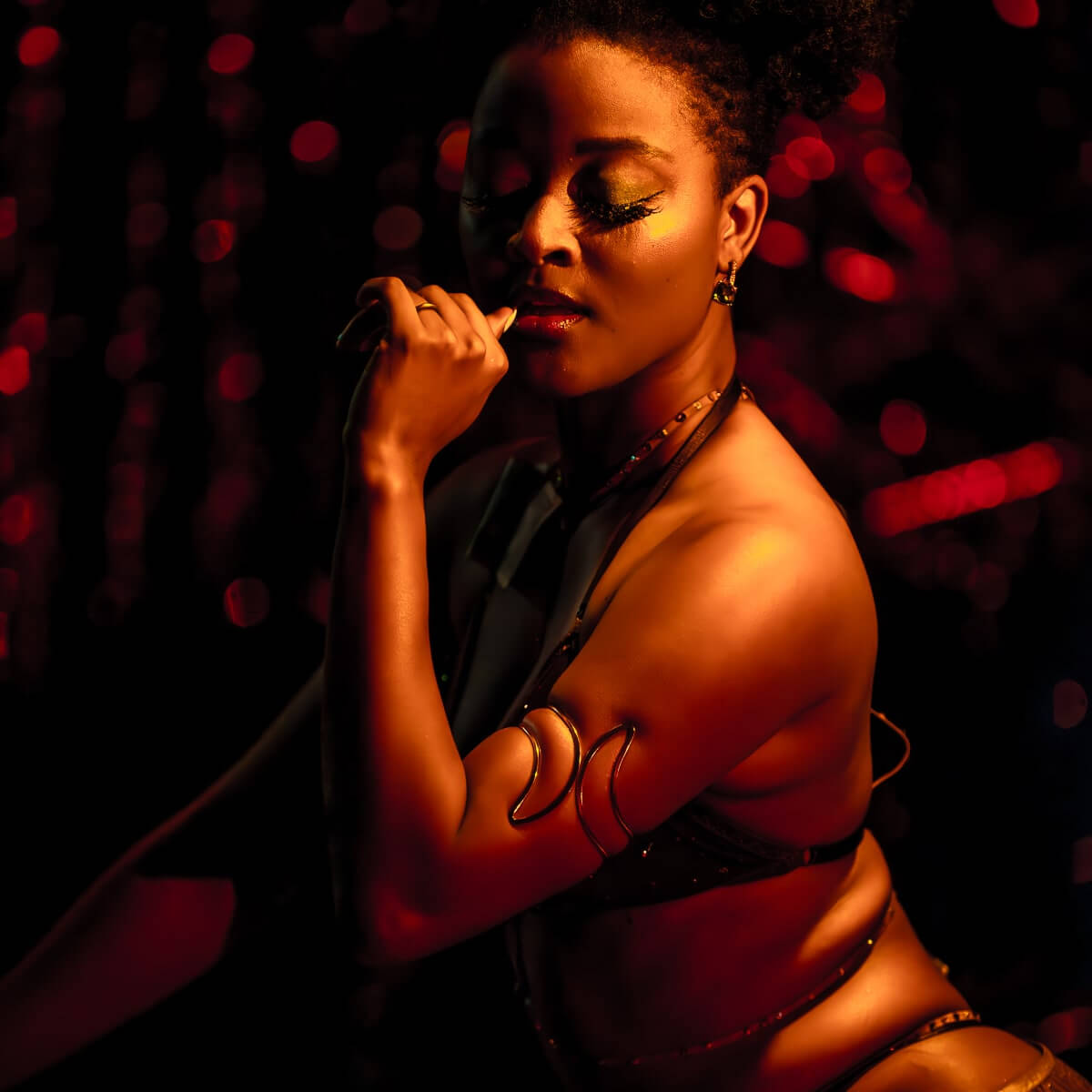
Synamin Vixen. Synamin Vixen, Daughter of a Nymph Divine
Journey with Synamin Vixen through a sensory expansion of her book Daughter of a Nymph Divine into a physical world of movement, projection, and sound. This work is a living meditation on grief, pleasure, and inviting silence; and audience members are invited to take their own journey through this space.
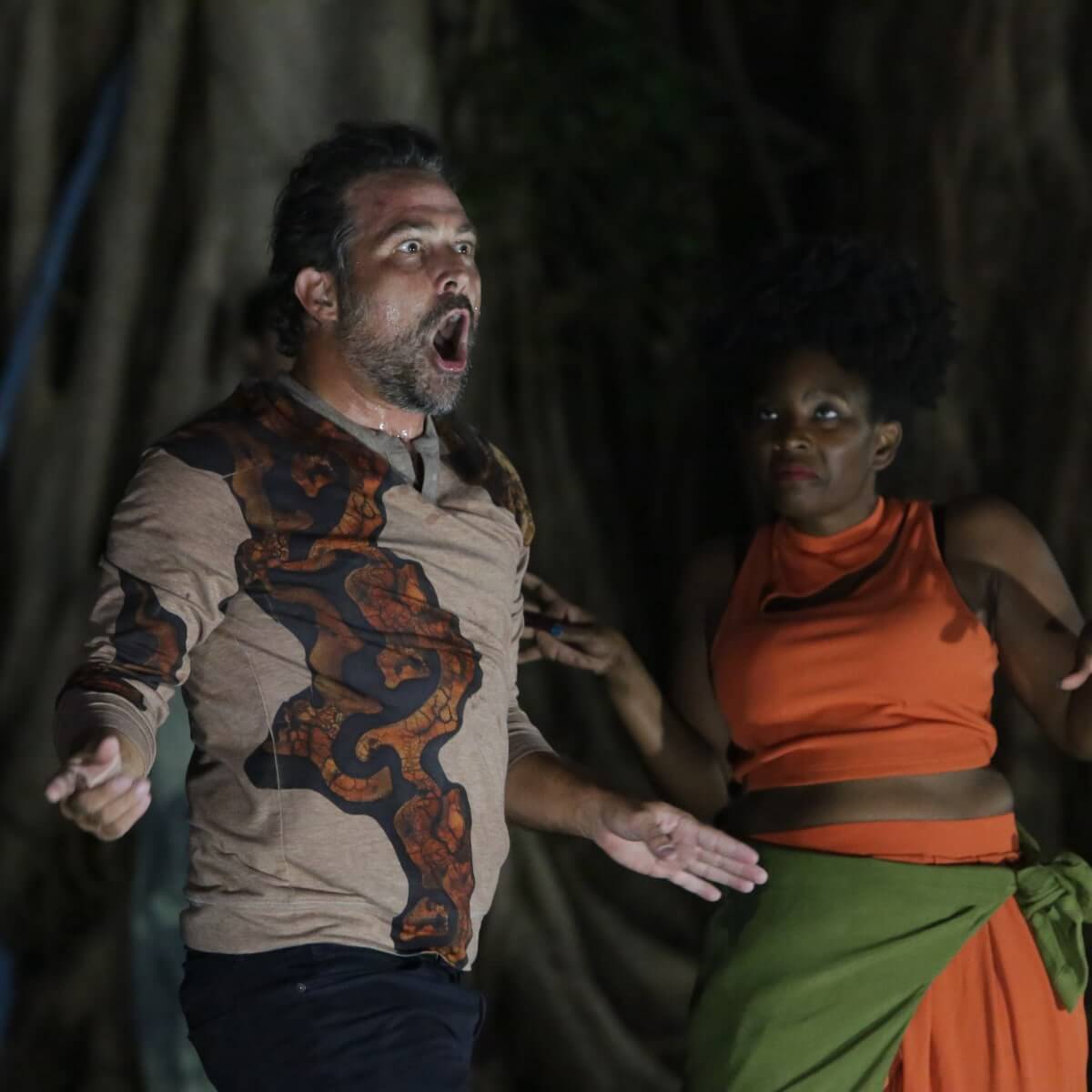
Invisible Rivers. Mondo Bizarro, Invisible Rivers
Invisible Rivers, a collaboration between Mondo Bizarro Productions and The Land Memory Bank, utilizes music, digital storytelling, theater, cultural organizing, curriculum development, and boat-building to physically model ideas about how we can learn to live with fluctuation, to live with uncertainty, to live in symbiosis with our increasingly watery world. Invisible Rivers activates interdisciplinary events that respond to the unique landscapes where they are hosted. No two land activations are the same. The inspiration for this project is part of a natural evolution of the work The Land Memory Bank, Mondo Bizarro and many others have been creating together for years.
Presenter
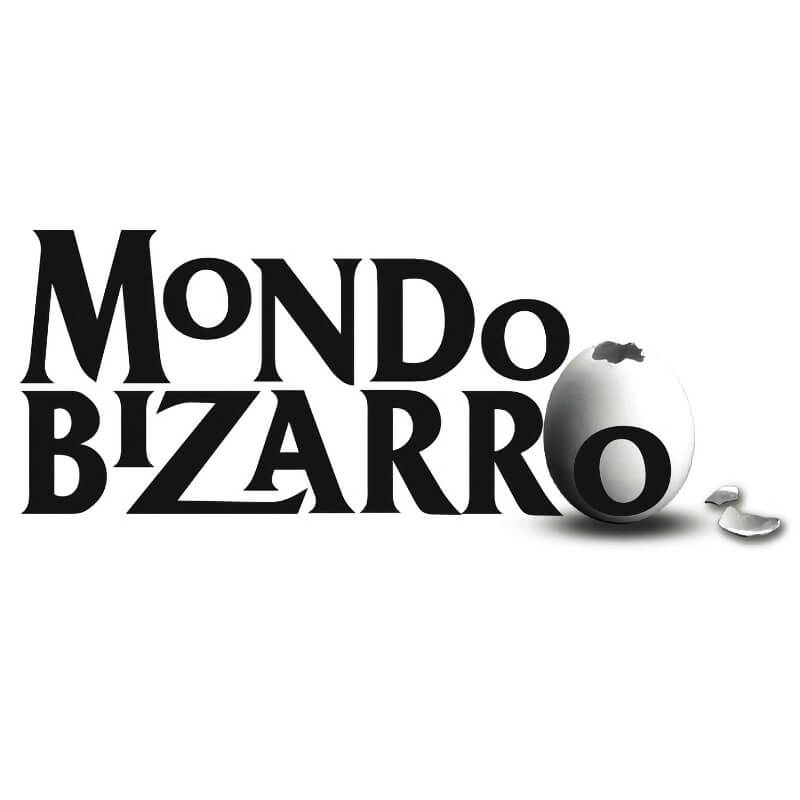
Mondo Bizarro Productions
Mondo Bizarro is a New Orleans-based company that has been creating interdisciplinary art and fostering creative partnerships in local, national and international communities for twenty-three years. Our creative endeavors embody the urgency of our desire to listen to our land and culture, develop allies in collective action, and provide a platform for using art as a tool to understand what makes us commonly human and individually unique.
Wednesday, October 8
- 9:00 am–5:15 pm Registration
- 9:00 am-10:00 am Session: Unión Migrante
- 10:00 am–10:15 am Morning assembly
Morning Breakout Sessions — case studies, roundtables, and more
-
The measure of people’s potential for liberation is based on how different their culture is from their oppressors.
– Amilcar Cabral
During the conference, NPN and Project South will facilitate a three-day movement assembly. Assemblies are convenings organized to bring together people who work on a similar frontline of struggle in order to share analysis, collaborate, develop, and implement action plans that grow cohesion and unity for frontline power. The Cultural Movement Assembly (CMA) is an opportunity to engage the art and culture ecosystem as a frontline in the struggle for justice. In this time of authoritarianism and proto-fascism, there is a mandate in front of us to build collective power, face the world in which we live and do our work, and work towards the world we all deserve. -

What do we do when it all falls apart? When what was once familiar or seemingly secure is no longer steady? What do you do when the ground beneath your feet begins to shift? When the water table rises or your rights collapse? When it’s time to leave one world for another? Or make a new world in plain sight?
There are those who know this world-weaving magic. The ones who came before. The ones who could fly. These Creatrix pulled seeds from braided hair, gathered roots from falling through sky, to give form to what was formless and shape worlds where once there wasn’t one. These original root womxn, these abolitionist cartographers made sanctuaries in times of impossibility, violence, and despair. While we have much to learn from Creatrix of the past, we too have the power to create new worlds amidst the devastation of destruction. In fact, our futures depend upon it.
The Creatrix Sessions are a series of worldbuilding events conjured by Haus of The Black Madonnx, exploring the sacred power of Queer & Trans Black Feminisms, Afro-Indigenous ancestral cosmologies, and the creative potency of The Dark to open portals to more imaginative, Liberatory and Sovereign futures.
Part collective ritual, part kitchen-table-talk, this participatory session casts a circle offering tangible tools, praxis, and ways-of-being for living into possibility when it feels impossible to do so. Offering medicine from the land-responsive ring shout performance series, The People Can Fly, and the living epistemology, Afro-Indigenous Liberatory Praxis—participants are invited to immerse in the cultural strategies, healing and worldbuilding technologies of ancestral genius.
Celebrating the folkways of the Gulf South, this session is woven with congregational singing, embodied divinations, and collective storytelling providing sustenance and sanctuary to dream beyond our current landscape. Participants will leave with an experiential methodology towards decolonial reorientation and techniques for conjuring liberatory ways-of-being in their artistic praxis, organizations, movements, and lives.
Type:
Facilitated interactive session
Topic:
Artists’ labor and lives
Creation and mobility
How we work
Political life
The American South
Facilitators
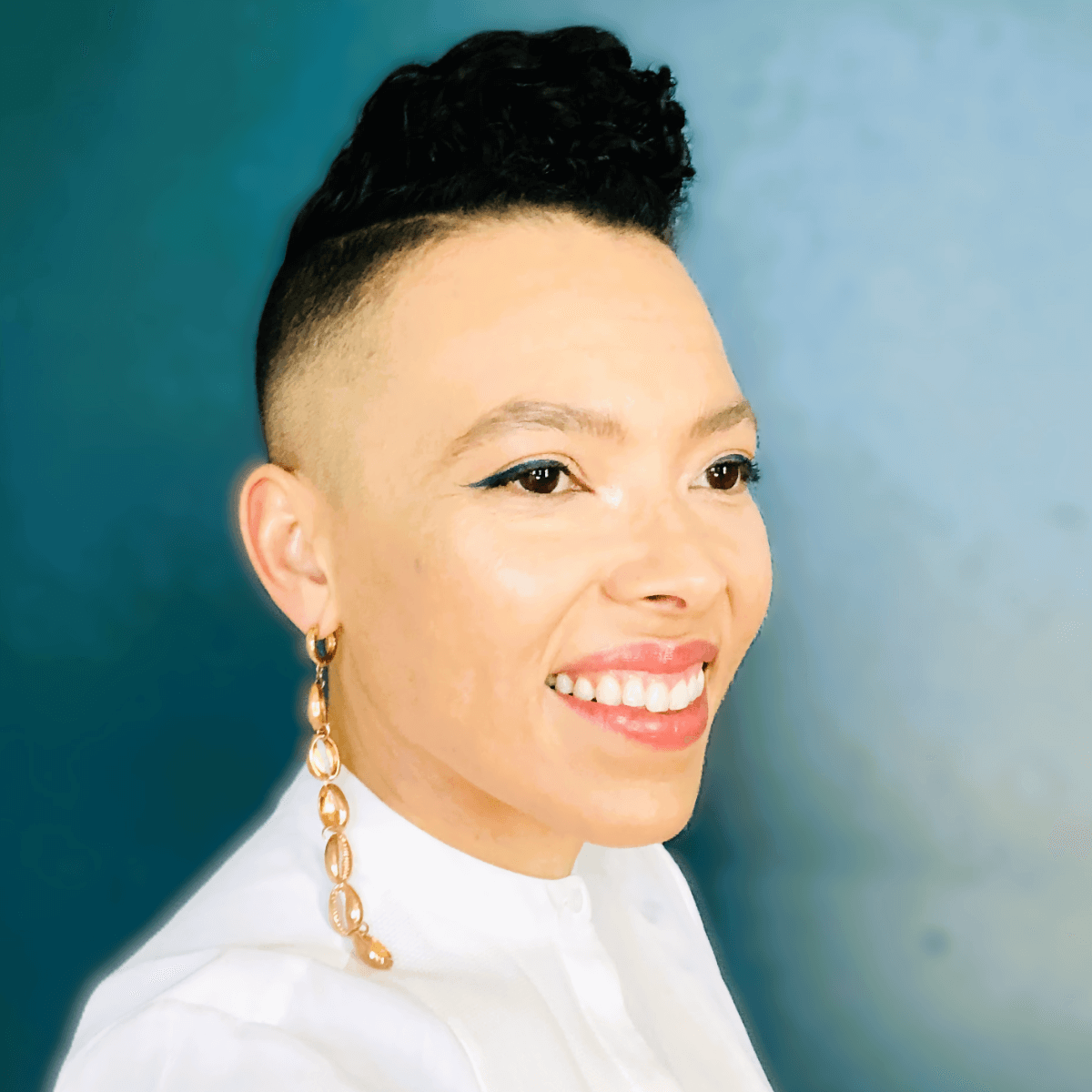
ChE (Xé). Photo courtesy of the artist. ChE (Xé) (we, they, them); tribal affiliation: Choctaw / Cherokee / Afro-Indigenous
Founding Creatrix Director, Haus of The Black Madonnx/ FREEDOM LAND
ChE or Xé is a gender-expansive Afro-Indigenous spiritual practitioner, artist/ choreographer, coach and consultant based in Bvlbancha/ New Orleans. Deeply rooted in Black Feminist and Southern folkways, ChE embodies ancestral medicine to conjure movements beyond the binary. As the Founding Creatrix Director of Haus of The Black Madonnx and FREEDOM LAND, Xé utilizes the decolonial framework, Afro-Indigenous Liberatory Praxis, to cultivate worldbuilders of more imaginative futures.
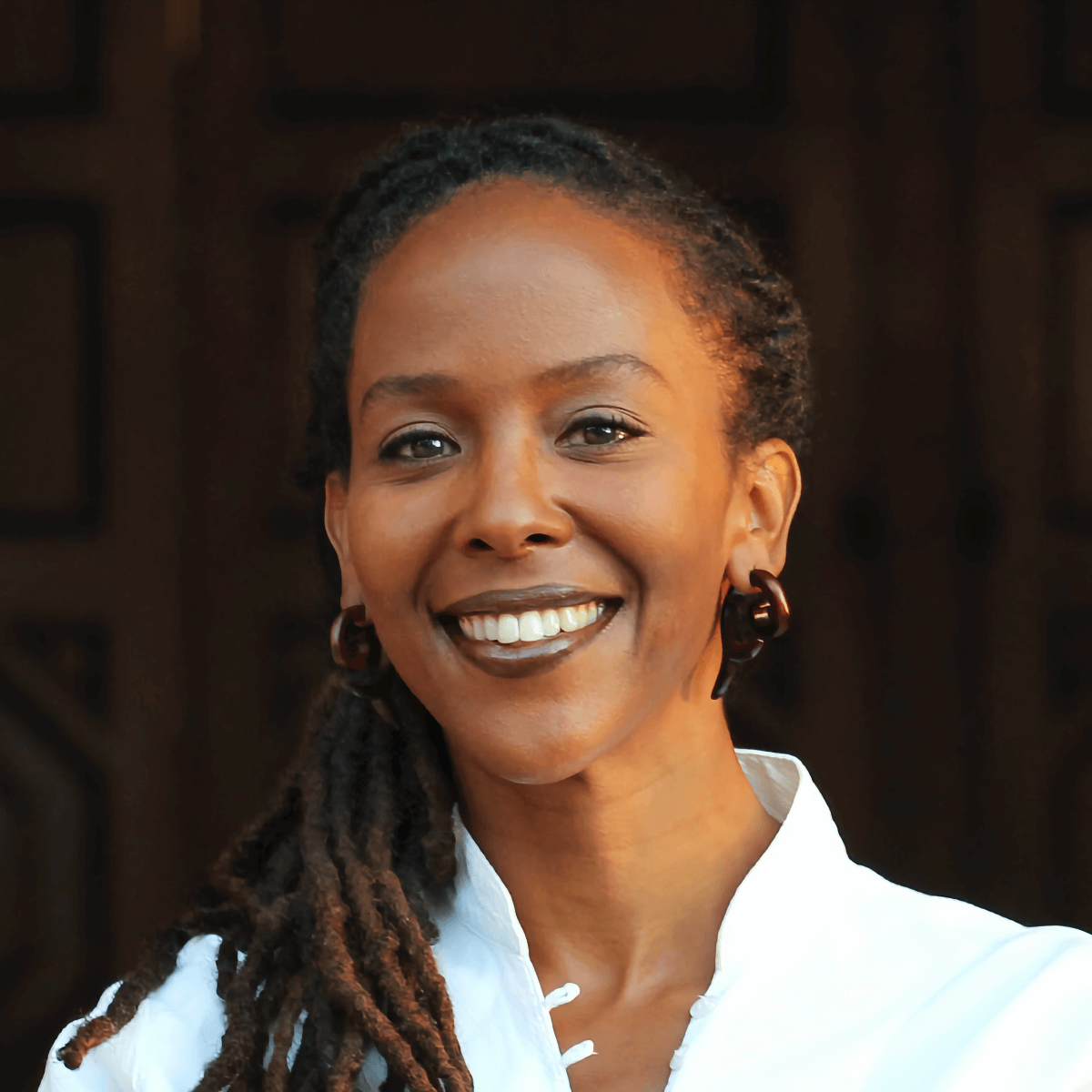
Nana Fofie Amina Bashir. Nana Fofie Amina Bashir (she, they)
Executive Director, Institute for Ashé Movement
Nana Fofie Amina Bashir is facilitator, artist, spiritualist, and cultural worker based in Bulbancha/New Orleans. Rooted in African Indigenous and Black Southern traditions, she is founder of Ancestral Futurisms and Executive Director of the Institute for Ashé Movement. Her work integrates Circle practice, expressive arts and somatic therapies, creative and memory work to support community wellness and remembrance within a Liberatory praxis.
-

Today’s dance field is deeply endangered by funding cuts, calls for censorship, the heightening of presenter “bad behavior” (no doubt caused by uncertainty about the future), and the general struggle to survive through these violent times. Inspired by provocations from adrienne maree brown, this session will gather leaders, particularly BIPOC performing artist leaders, to brainstorm ways for us to create strategies of collective support and advocacy, highlight modes of communication that decenter divisive hierarchies, move away from competitive exceptionalism, and forge models of mentorship that swerve away from harm for the next generation of artists.
Presenters, funders, and administrators can be present but only with a commitment to listen. The panelists, with the participation of the audience, will begin drafting a Charter of Care that can be used as a shared agreement in our field, and that will be housed on NPN’s website.
Type:
Facilitated interactive discussion
Topic:
Artists’ labor and lives
How we work
Facilitator
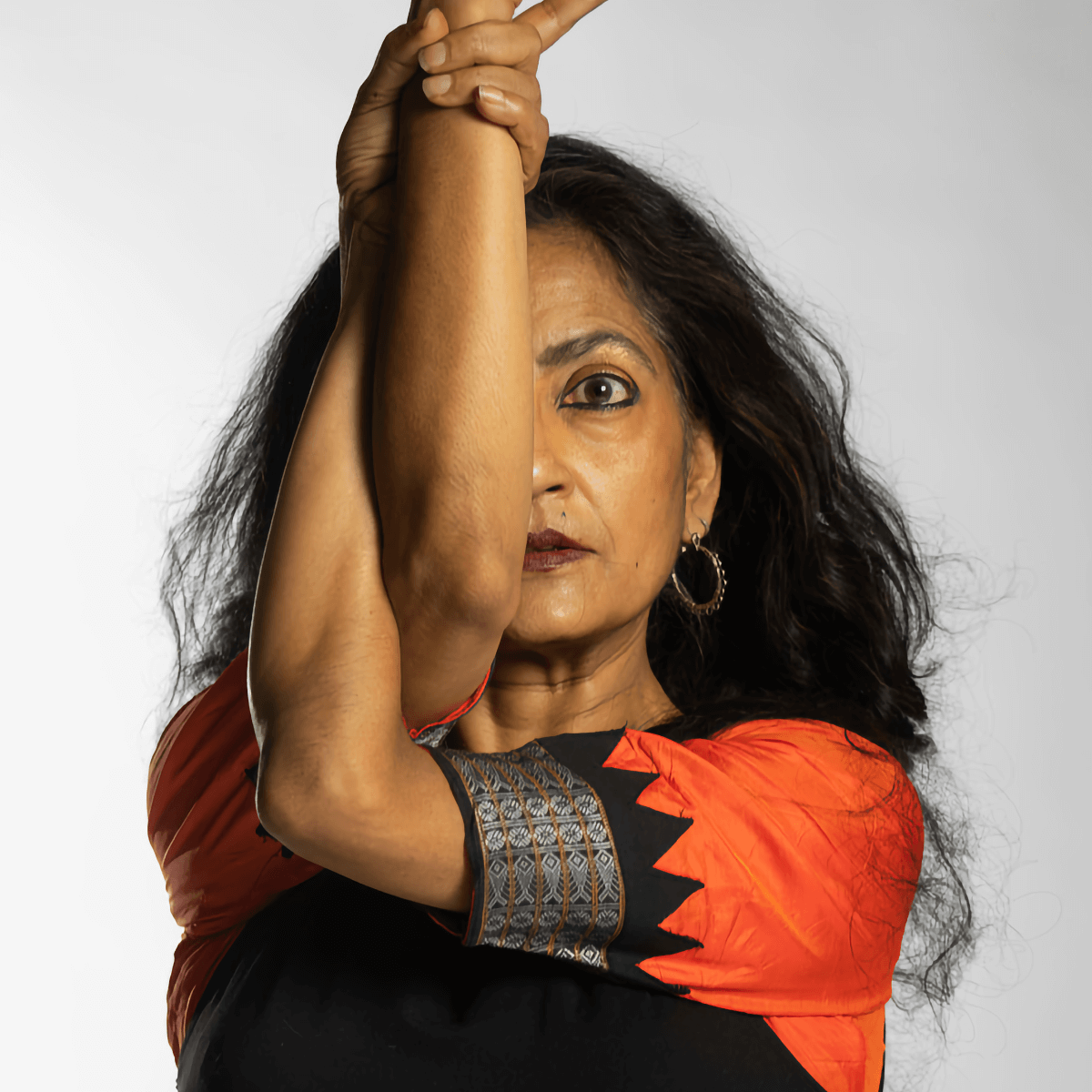
Ananya Chatterjea. Photo by Cannan Mattson. Ananya Chatterjea (she/her)
Artistic Director (unpaid), Ananya Dance Theatre
Ananya Chatterjea’s (2011 Guggenheim Choreography Fellow, 2012 and 2021 McKnight Choreography Fellow, 2019 Dance/USA Artist Fellow, 2018 UBW Choreographic Center Fellow) work = social justice choreography + artistic excellence. Artistic Director of Ananya Dance Theatre, architect of the company’s community-responsive choreographic methodology. Her 2020 book Heat and Alterity in Contemporary Dance: South-South Choreographies (Palgrave McMillan) was awarded the 2022 Brockett Book Prize.
Speakers
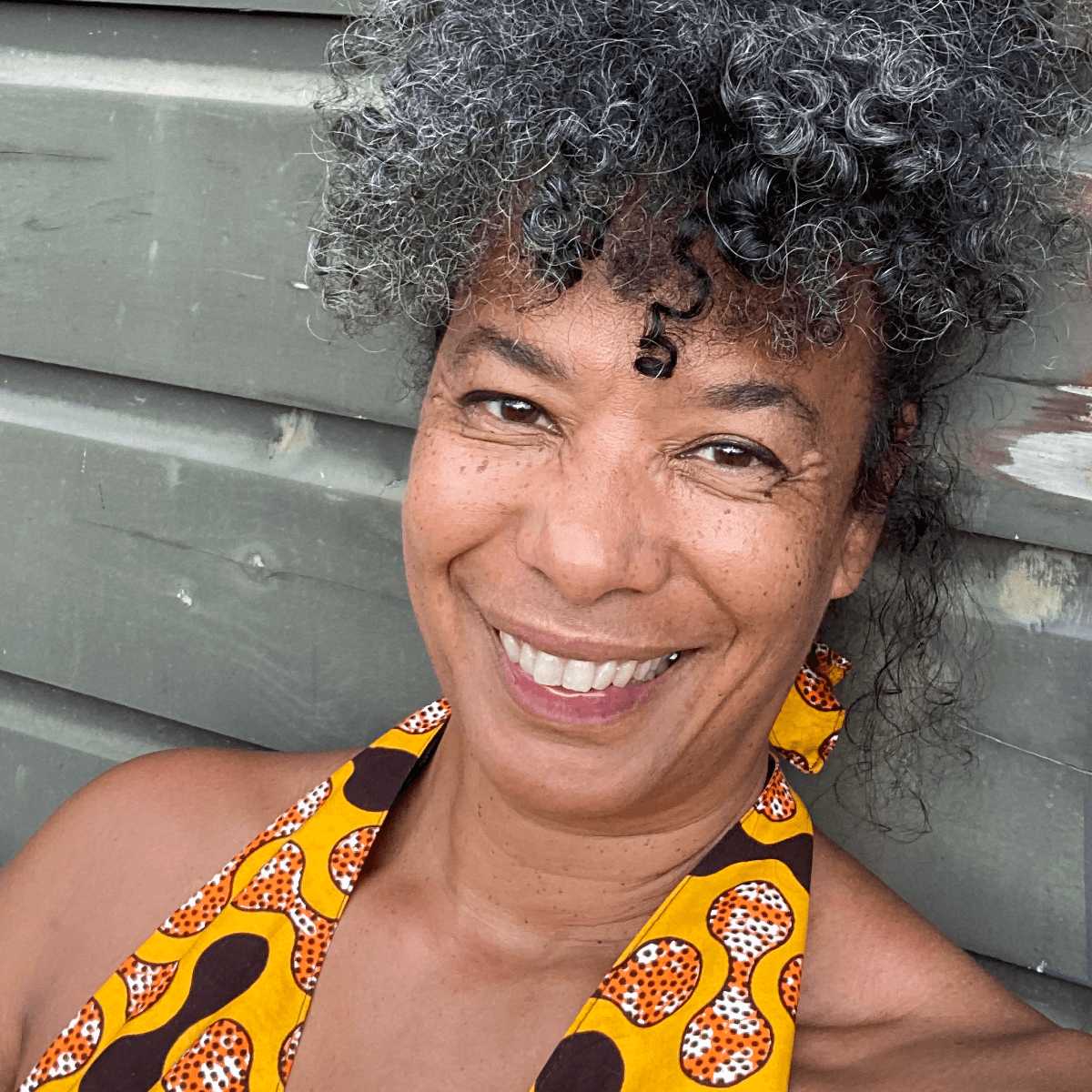
Edisa Weeks. Photo by mirembe. Edisa Weeks (she/hers)
Choreographer, Director, Educator, DELIRIOUS Dances
Edisa Weeks is a choreographer, educator, and director of DELIRIOUS Dances. She is the recipient of several awards including a 2024 MAP Fund Grant and a 2022 Creative Capital Grant. Edisa creates multimedia interactive work, which explores issues in society such as how the media is used to manufacture consent; examining what is the promise of America; and why life, liberty and happiness were included as unalienable rights in the United States Declaration of Independence.
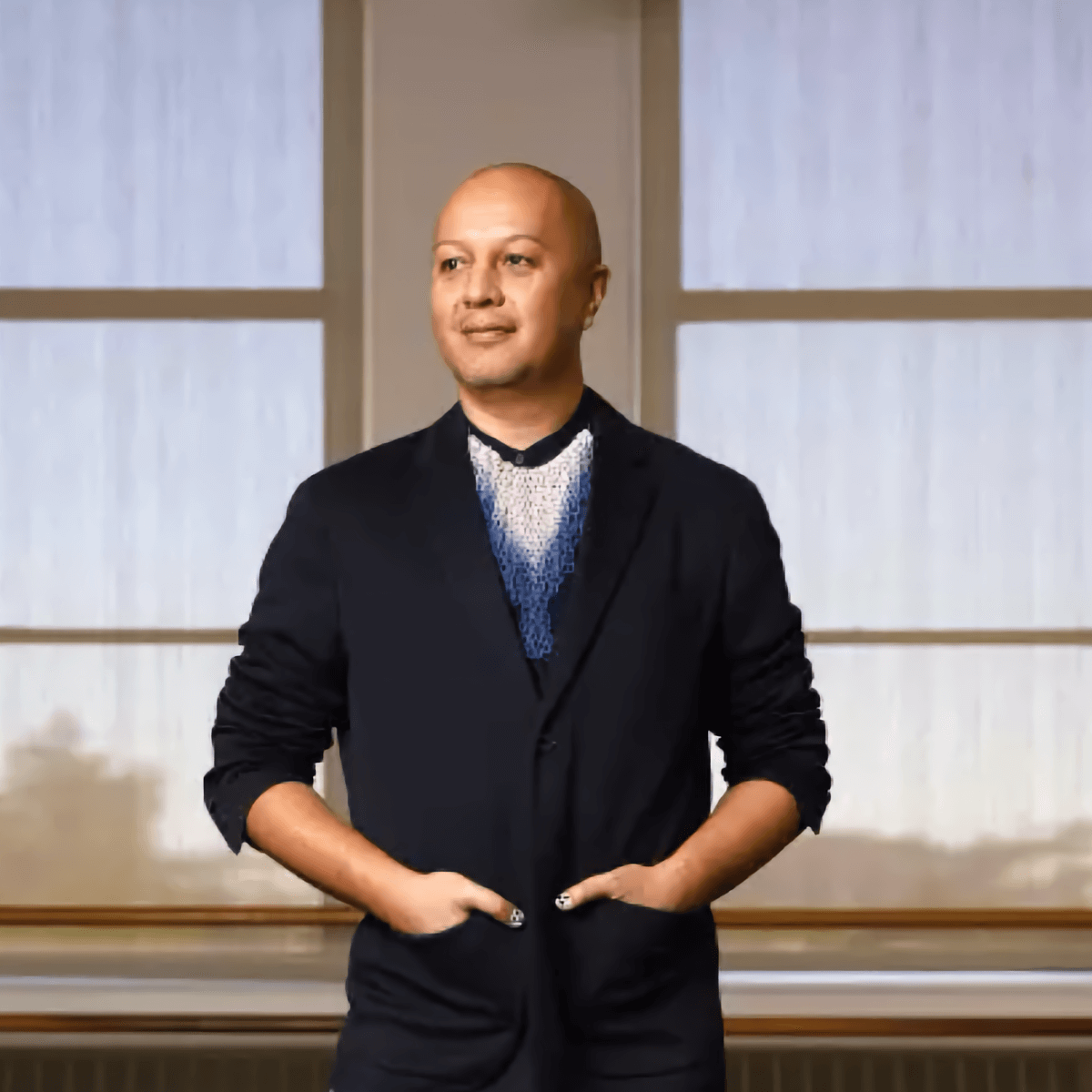
Christopher Kaui Morgan. Photo by K.C. Alfred of the San Diego Union Tribune. Christopher Kaui Morgan (he/him)
Artistic Director, Christopher K. Morgan & Artists/ Malashock Dance
Christopher Kaui Morgan is a choreographer, performer, educator, facilitator, curator, and arts administrator. Known as a thoughtful advocate for cultural integrity, inclusivity, and diverse representation in the studio and on stage, his Native Hawaiian ancestry and wide-ranging international career influence all aspects of his work. He creates performances that synthesize dance, storytelling, original music, and multimedia design to explore identity, social, and cultural issues.
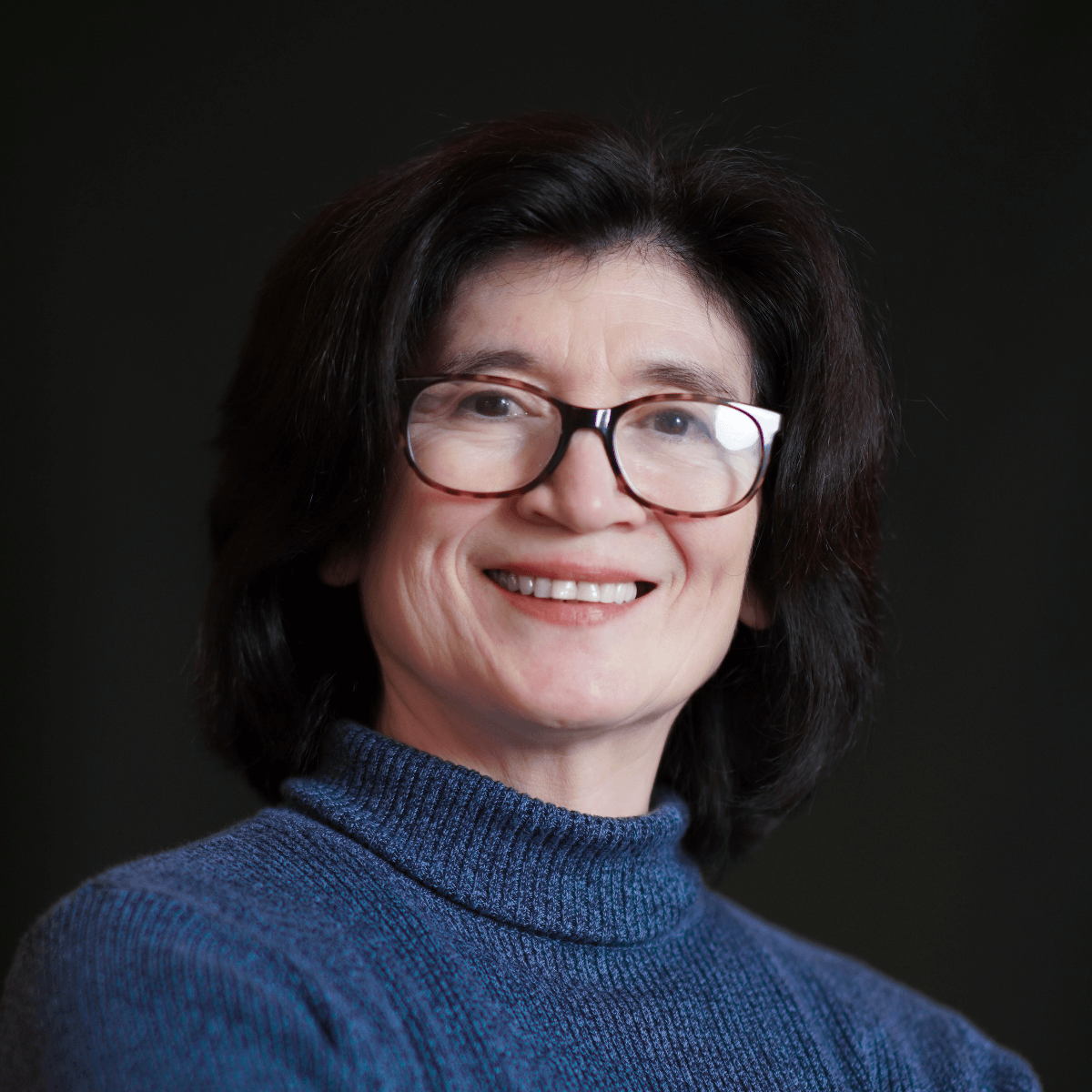
Dora Arreola. Photo by Gisell Calderón. Dora Arreola (she/hers)
Artistic Director, Mujeres en Ritual Danza-Teatro
Dora Arreola has more than 30 years of professional experience as a theater director, choreographer, and performer. She is Professor of Theatre at the University of South Florida and faculty of the National Institute of Directing and Ensemble Creation. She has taught, directed, and performed nationally and internationally in Mexico, U.S., Nicaragua, Canada, Poland, India, Spain, and Italy. She is founder and artistic director of Mujeres en Ritual Danza-Teatro (Tijuana, Mexico & Tampa, US).
-

Leaders of the national arts and health initiative, One Nation/One Project (ONOP), reflect on their learnings and practices in achieving Arts for EveryBody, a monumental moment on 27 July, 2024 when eighteen cities and towns across the United States premiered eighteen distinct participatory public art projects, each designed to improve community health and wellbeing.
Started in 2021 in response to the COVID-19 pandemic, ONOP supported these eighteen projects over three years of unprecedented collaboration between municipal, artistic, and health sector leaders. The projects represented vastly different economic, social, racial, and geographic experiences, yet worked together to explore the change possible at the intersection of arts and health.
In this session, workshop leaders explore parallels between theater making and movement building; how the arts can be a tool in values-based research, equitable community engagement, and building social cohesion; and with session participants, explore the future possibilities of this work and its implications more broadly in today’s socio-political landscape.
Type:
Facilitated interactive session
Topic:
Artists’ labor and lives
How we work
Facilitators
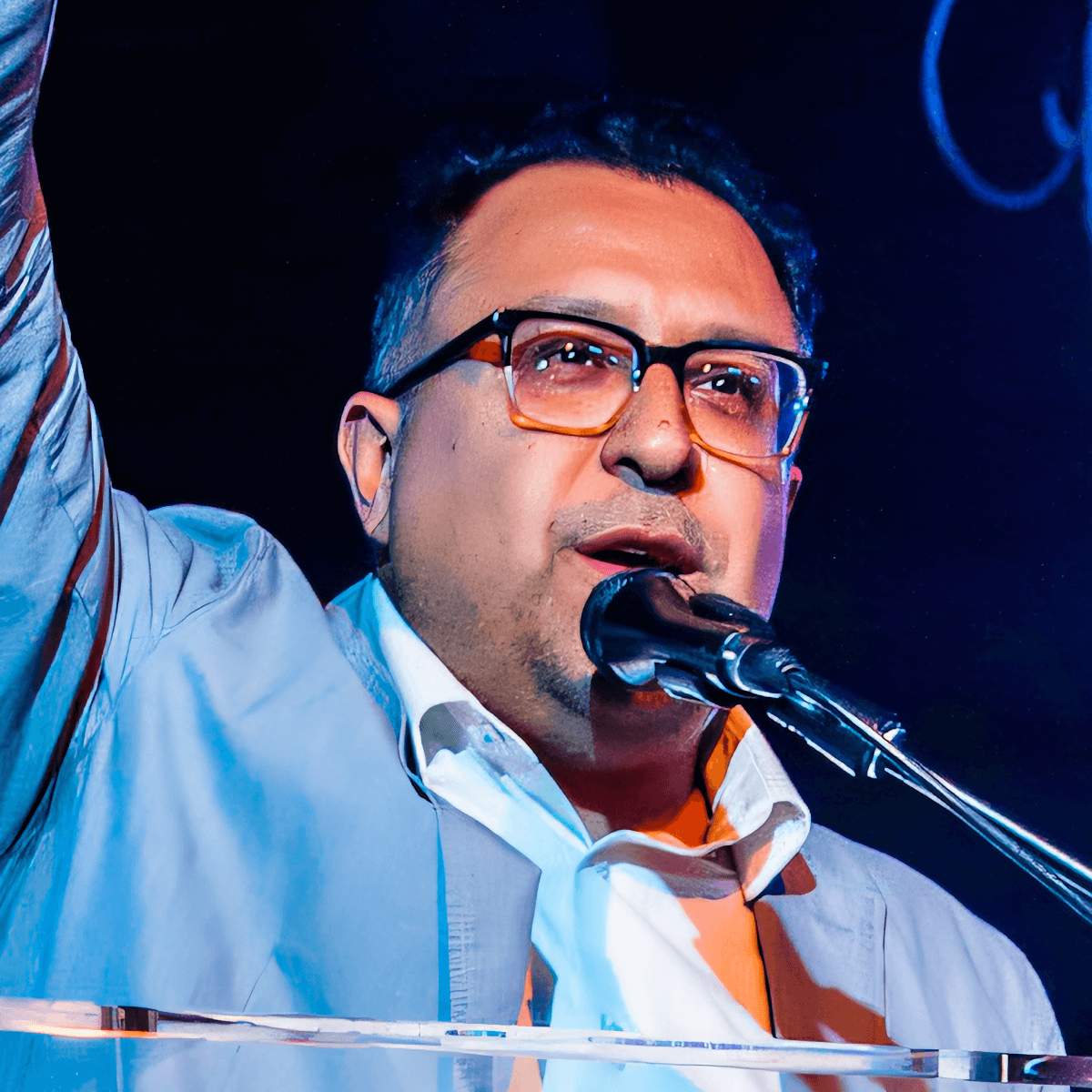
Clyde Valentín. Photo by Kim Leeson. Clyde Valentín (he, him, his)
Co-Artistic Director & Co-Founder, One Nation/One Project
Clyde Valentín [ValenTEEN] is a Creative Producer, Entrepreneur & Strategist. He has over 25 years of executive experience managing start-up organizational environments, multidisciplinary projects and live events. Valentín co-founded One Nation/One Project (ONOP), a national arts & health project inspired by the WPA’s Federal Theater Program. Through its messaging campaign, Arts for Everybody, ONOP collaborated with 18 cities & towns across the United States, leading up to one collective premiere on July 27, 2024.
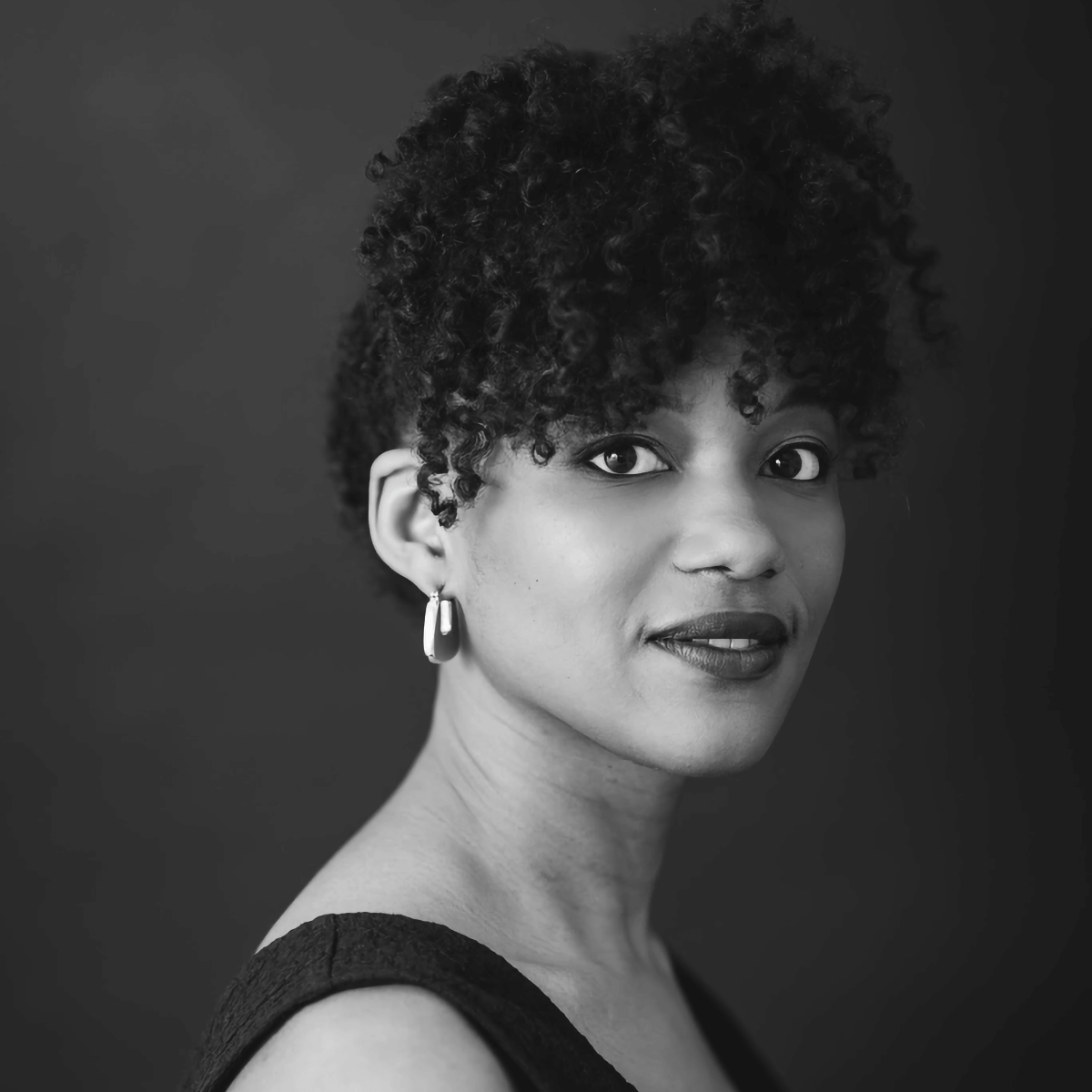
Tyler Thomas. Photo by Jackie Abbott. Tyler Thomas (she, her, hers)
Associate Artistic Director, One Nation/One Project
Tyler Thomas is a director and theater maker, currently based in NYC. Tyler served as the Associate Artistic Director for the national arts and health initiative, Arts for EveryBody, supporting 18 communities across the country as they work to create 18 distinct public art projects designed to improve community health. She holds a BFA in Drama and MA in Arts Politics from the Tisch School of the Arts.
- 12:15 pm–2:00 pm Lunch Break (on your own)
-
See new work by NPN-supported artists! This curated Media Share features 15 artists from NPN’s National and Southern networks and First Peoples Fund, with video excerpts of recent or in-progress work from artists of all disciplines.
-
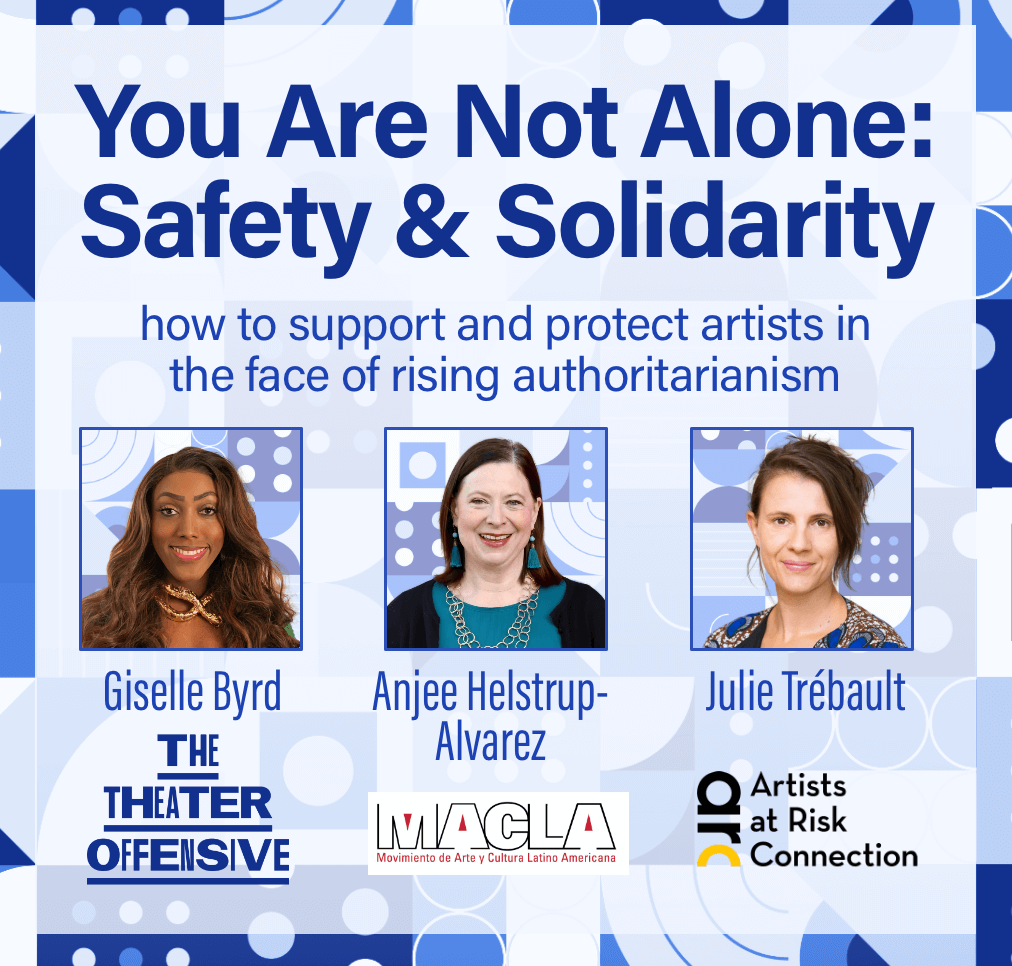
Around the world and throughout history, the arts are among the first targets of authoritarianism. Dissent calls on us to not only reaffirm the vital role of artists as disruptors and risk-takers, but to build and invest in safety and solidarity for artists and cultural spaces that speak truth to power. As The Theater Offensive offered in its rules for fellowship in this era: “No blame. No hatred. Love. Unity. Liberation. Abundance.” With Giselle Byrd, The Theater Offensive; Anjee Helstrup-Alvarez, MACLA; and Julie Trébault, Artists at Risk Connection.
Afternoon Breakout Sessions — case studies, roundtables, and more
-
Based on 20 years working with artists locally and nationally, artist leaders Andrew Simonet and Michaela Pilar Brown will build a conversation about designing (not managing) our time. Respecting the many kinds of time. Prioritizing artistic practice amid the endless demands on our time. Doing less this week in order to do more this decade.
-

The Decolonization Rider is a powerful tool designed to protect artists, their work, and collaborators, and to support decolonization processes in institutions. In this session, the rider’s author Emily Johnson, along with Leomary Rodriguez, will explore how artists can utilize the rider to ensure safe and justice-centered engagements with cultural institutions, and how presenting organizations can start their necessary decolonization work. They will also share research generated from their Decolonization Assessment, which asks: What changes have we seen in the field? What persists as perceived challenges toward decolonization? And what are some brilliant success stories?
Type:
Small group discussion
Topics:
Artists’ labor and lives
Creation and mobility
How we work
Political life
Speakers
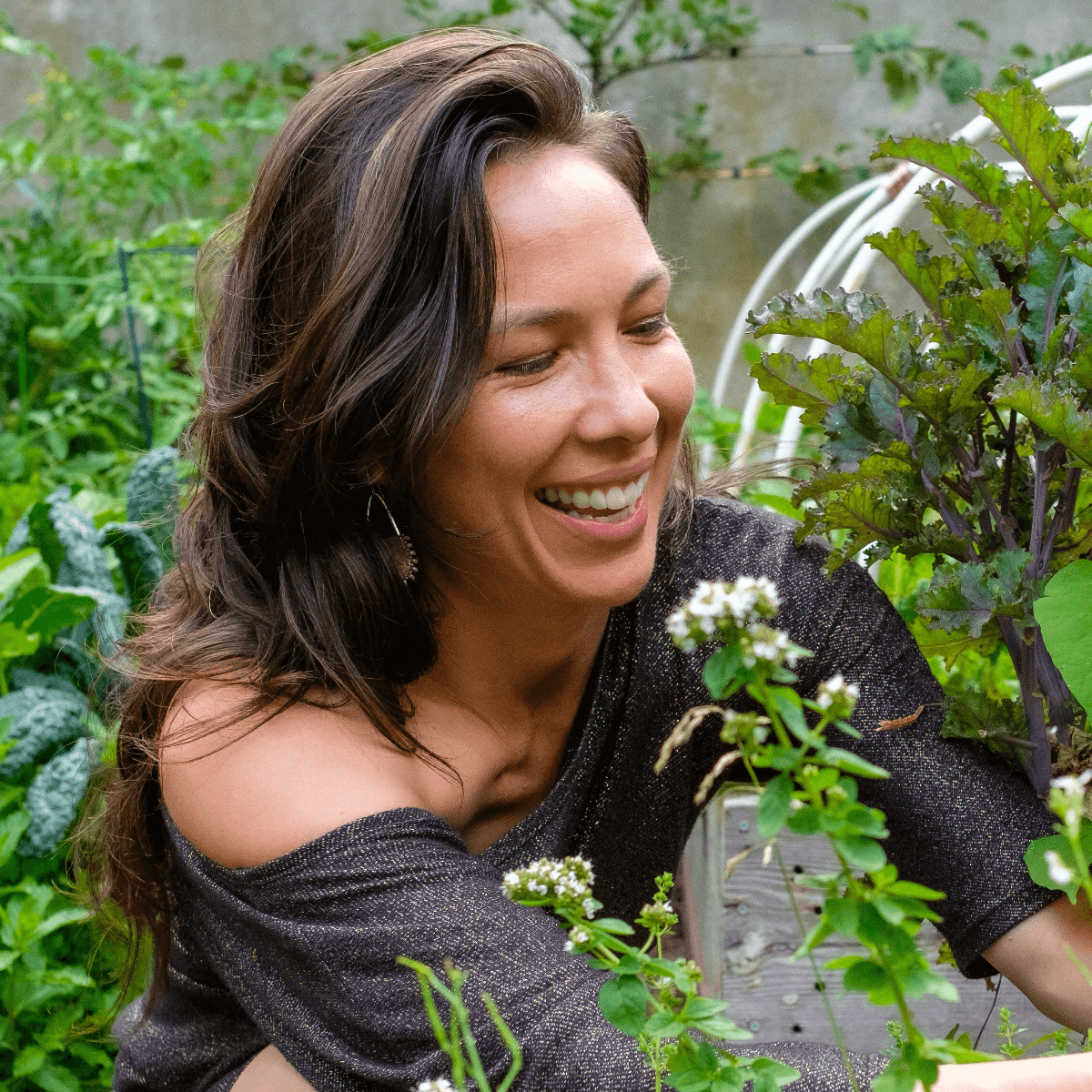
Emily Johnson. Photo courtesy of the artist. Emily Johnson (she, her); tribal affiliation: Yup’ik Nation
Director, Emily Johnson / Catalyst
Emily Johnson [EH-muh-lee JOHN-sun] is an artist who makes body-based work. Emily belongs to the Yup’ik Nation, is a land and water protector and an organizer for justice, sovereignty and well-being. A Bessie Award-winning choreographer, Guggenheim Fellow and recipient of the Doris Duke Artist Award, Emily is based in Lenapehoking/NYC and Haudenosaunee lands. Since 1998, Emily’s large-scale performance gatherings insist thrivance, radical reworlding, and just futures.
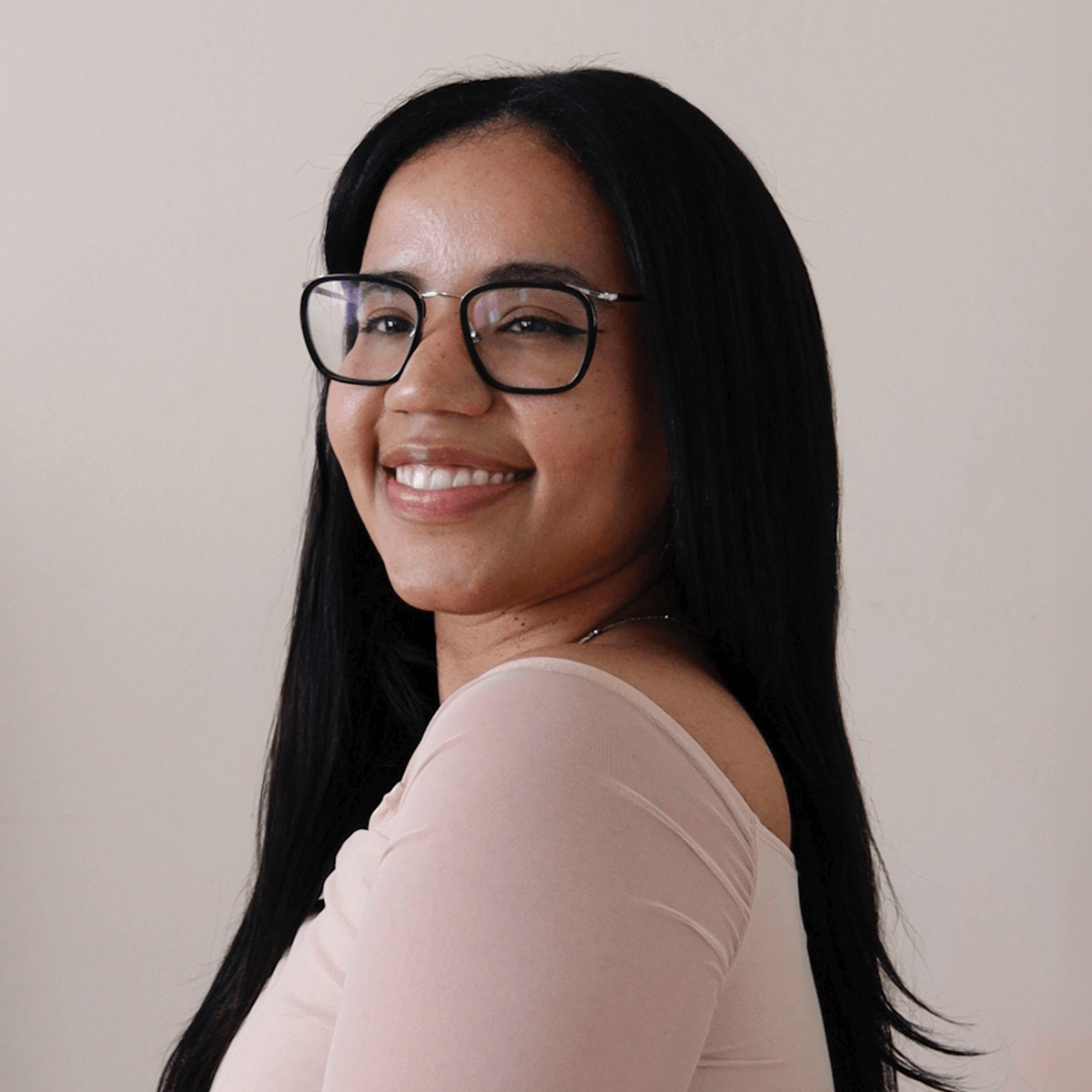
Leomary Rodriguez. Photo courtesy of the artist / @directedbyleo. Leomary Rodriguez (she/her); tribal affiliation: Taíno descendant
Decolonization Rider Analyst & Strategist, Emily Johnson / Catalyst
Leomary Rodriguez [LEE-oh-mah-ree = Leomary] is an Afro-Taína data analyst, storyteller, and strategist who uses data to support decolonial frameworks. Rooted in kinship, care, and accountability, her work centers Indigenous sovereignty and Land Back. With a background in storytelling through various mediums, she uses data to illuminate patterns, uplift truth, and advance Catalyst’s mission for collective liberation.
-

What stories might we share around how we and others are impacted by participatory creativity and the activation of collective healing? Led by artists Chrissie Orr and Meena Natarajan, Seed Syllables was an artistic response to the events that changed our lives in 2020 and still impact us today. Conversations with artists, activists, and organizers were transformed into poems accompanied by visual art, music, and gesture, in a land-based participatory ritual. Using Seed Syllables as our jumping off point, we’ll look at what needs to be in place to allow for authentic participatory creativity to emerge, and what creative practices animate collective healing and community transformation, especially in the current moment.
Type:
Facilitated interactive session
Topics:
Artists’ labor and lives
Creation and mobility
How we work
Political life
Facilitators
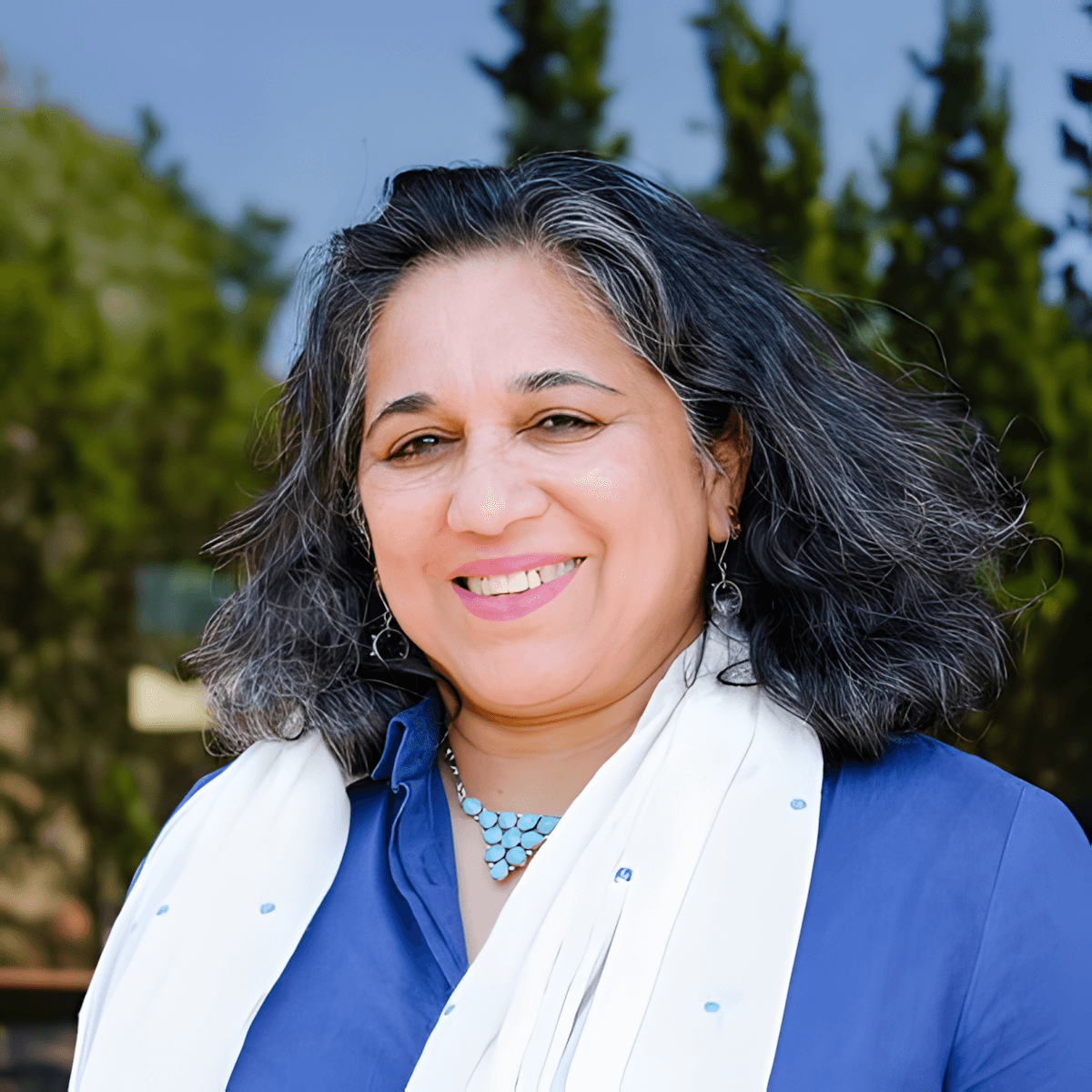
Meena Natarajan. Photo by Moonlight Studios. Meena Natarajan (she, her, hers)
Co-Artistic/Executive Director, Pangea World Theater
Meena Natarajan [Meena Nat-ar-aa-jan] is a playwright and director and the Artistic and Executive Director of Pangea World Theater, a progressive, international ensemble space that creates at the intersection of art, equity and social justice. She has written at least ten full-length works for Pangea, ranging from adaptations of poetry and mythology to original work as well as create participatory ritual-based site-specific performances. She also directs and dramaturgs original theater and performance art pieces.
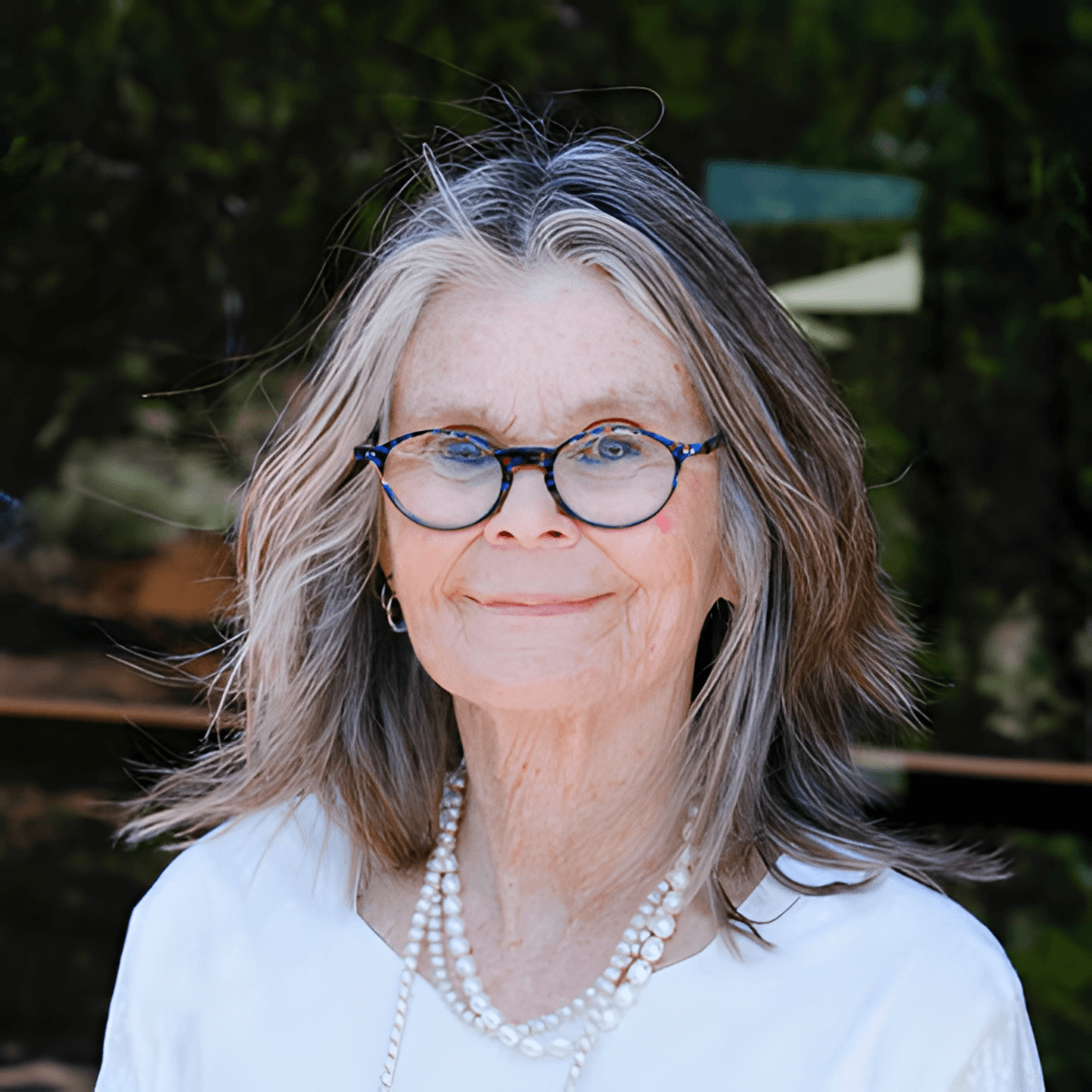
Chrissie Orr. Photo by Moonlight Studios. Chrissie Orr (she, her)
Creative Practice Fellow, Academy for the Love of Learning
Chrissie Orr [Chri-ssie Or] is an artist, seed steward and creative investigator exploring intersections between the creative process, renewal of collective story, and participatory social action. Her vocation engages the transformative capacity of Mother Nature to cultivate connection to place and belonging, strengthen community capacity, and renew our compass bearings in this time of radical transitions. She is the co-founder of SeedBroadcast, Creative Practice Fellow at the Academy for the Love of Learning.
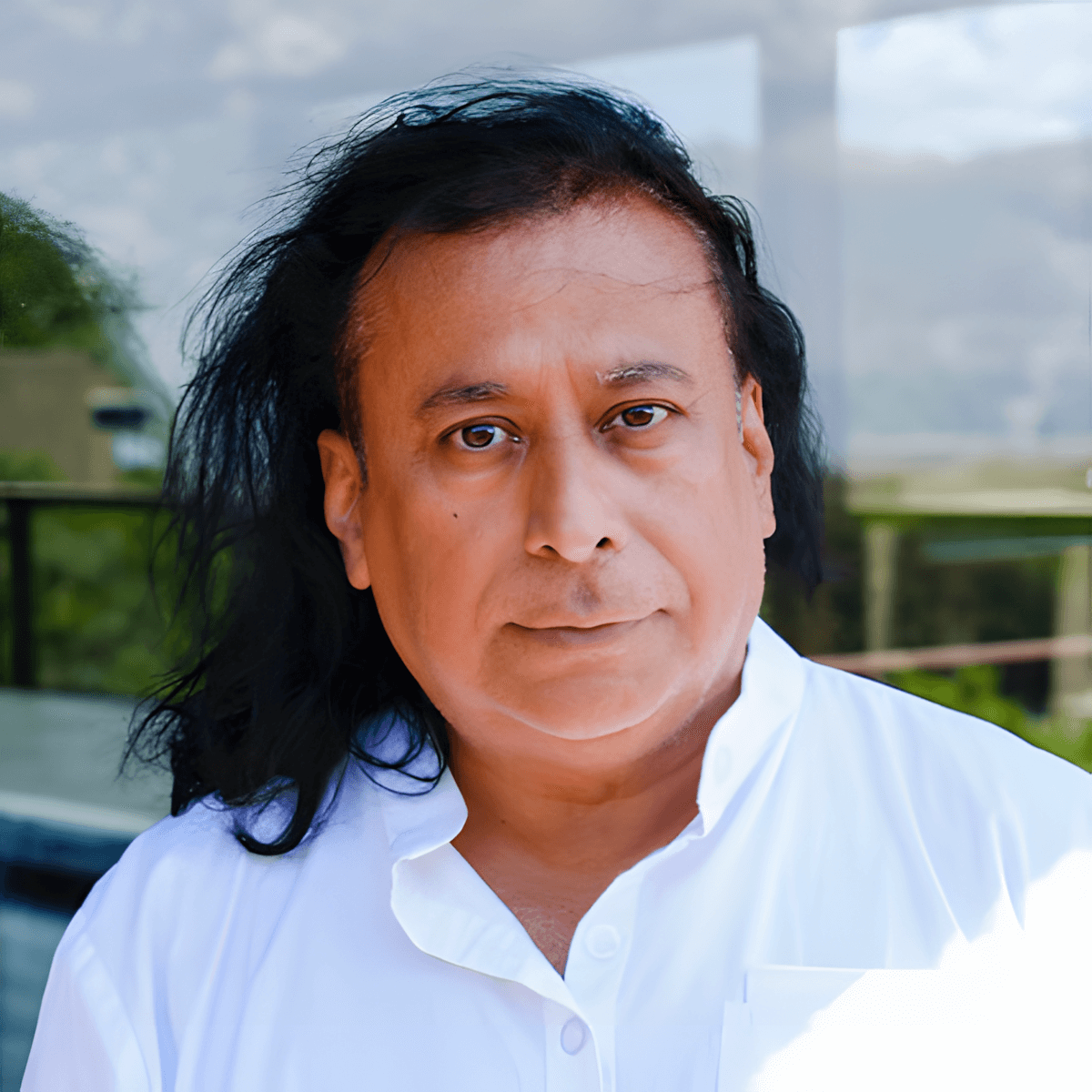
Dipankar Mukherjee. Photo by Moonlight Studios. Dipankar Mukherjee (he, him, his)
Artistic Director, Pangea World Theater
Dipankar Mukherjee [Dee-paank-er Moo-kher-gee] is a professional director originally from Kolkata India with a 35+ year history of directing. As a director, he has worked in India, England, Canada and the United States. His aesthetics have evolved through his commitment to social justice, equity and deep spirituality along with a response to relevant politics. Dipankar facilitates processes that disrupt colonial, racist and patriarchal modalities of working and collaboratively searches for an alternate way.
-

Join leaders working at the intersection of arts, philanthropy, and policy to address community stabilization, affordability, and anti-displacement for artists and cultural organizations. Speakers include Louise Martorano, Managing Director of Community Arts Stabilization Trust (CAST) of Colorado; Gary Steuer, President of Bonfils-Stanton Foundation; Libby Barbee, Colorado Creative Industries, Rosie Gordon Wallace, Diaspora Vibe, and Helanius J Wilkins, Artist/Choreographer.
Type:
Small group discussion
Topics:
Artists’ labor and lives
Speakers
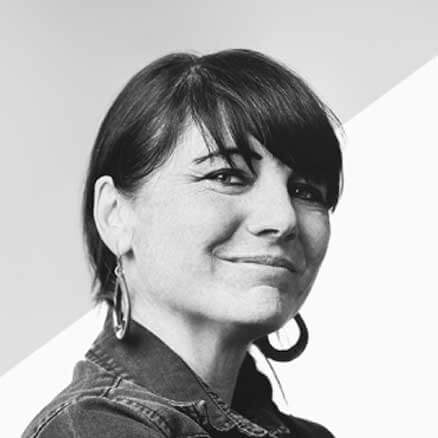
Louise Martorano. Photo by Beth Barbis. Louise Martorano (she/her)
Managing Director, Community Arts Stabilization Trust
Louise brings 19 years of nonprofit arts and culture experience with a focus on building infrastructures of support to stabilize artists careers. Prior to joining the team at the Community Art Stabilization Trust to launch CAST Colorado, Louise served 15 years as the Executive & Artistic Director of RedLine Contemporary Art Center, a non-profit contemporary art center and artist residency located in Denver, Colorado.
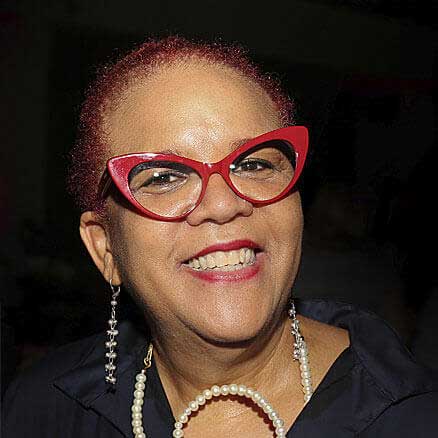
Rosie Gordon-Wallace. Rosie Gordon-Wallace (she/her)
Founder / Curator, Diaspora Vibe Culture Arts Incubator (DVCAI)
Rosie Gordon-Wallace is a recognized curator, arts advocate, community leader and pioneer in advancing contemporary diaspora art. She founded the Diaspora Vibe Culture Arts Incubator (DVCAI) to serve as a local and global laboratory dedicated to promoting, nurturing, and cultivating the vision and diverse talents of emerging artists from the Caribbean Diaspora, artists of color, and immigrant artists.
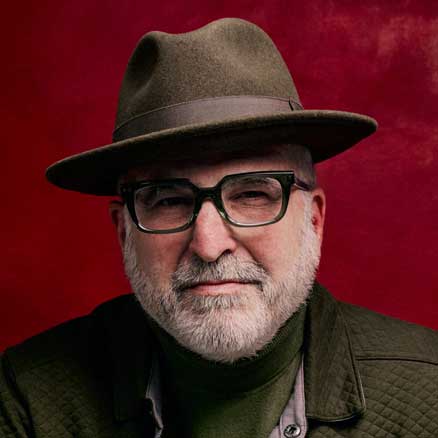
Gary Steuer. Gary Steuer (he/him)
CEO / President, Bonfils-Stanton Foundation
Gary Steuer joined the Bonfils-Stanton Foundation as President and CEO in 2013. Since that time, he has led the foundation’s transformational efforts to deepen its investments in arts, culture and leadership, as well as a heightened focus on bringing an equity lens to everything the foundation does. This has led to a dramatic increase in the foundation’s investment in communities of color and other historically marginalized communities.
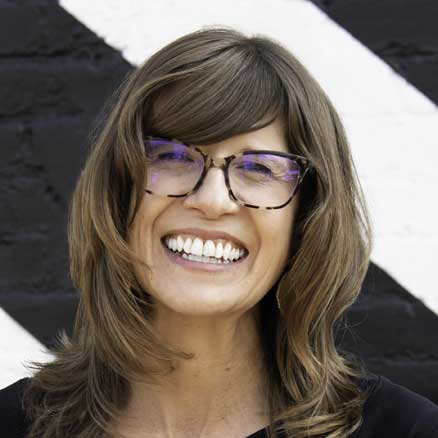
Libby Barbee. Libby Barbee (she/her)
Senior Program Manager, Colorado Creative Industries
Libby was raised on the southeastern plains of Colorado and currently lives in Denver, CO. She received her MFA from the Mount Royal School of Art at Maryland Institute College of Art in Baltimore, Maryland. She completed her undergraduate studies at Colorado State University in Fort Collins, CO; receiving a BFA in painting, a BFA in Art History, and a BA in French Language.
-
Explore the city, unwind, or experience art and community together. We’ve organized a few optional events specifically for conference attendees—including Mondo Bizarro Presents and an NPN Open Mic—and have included other recommendations you can do on your own or in self-organized groups.
About NPN Open Mic
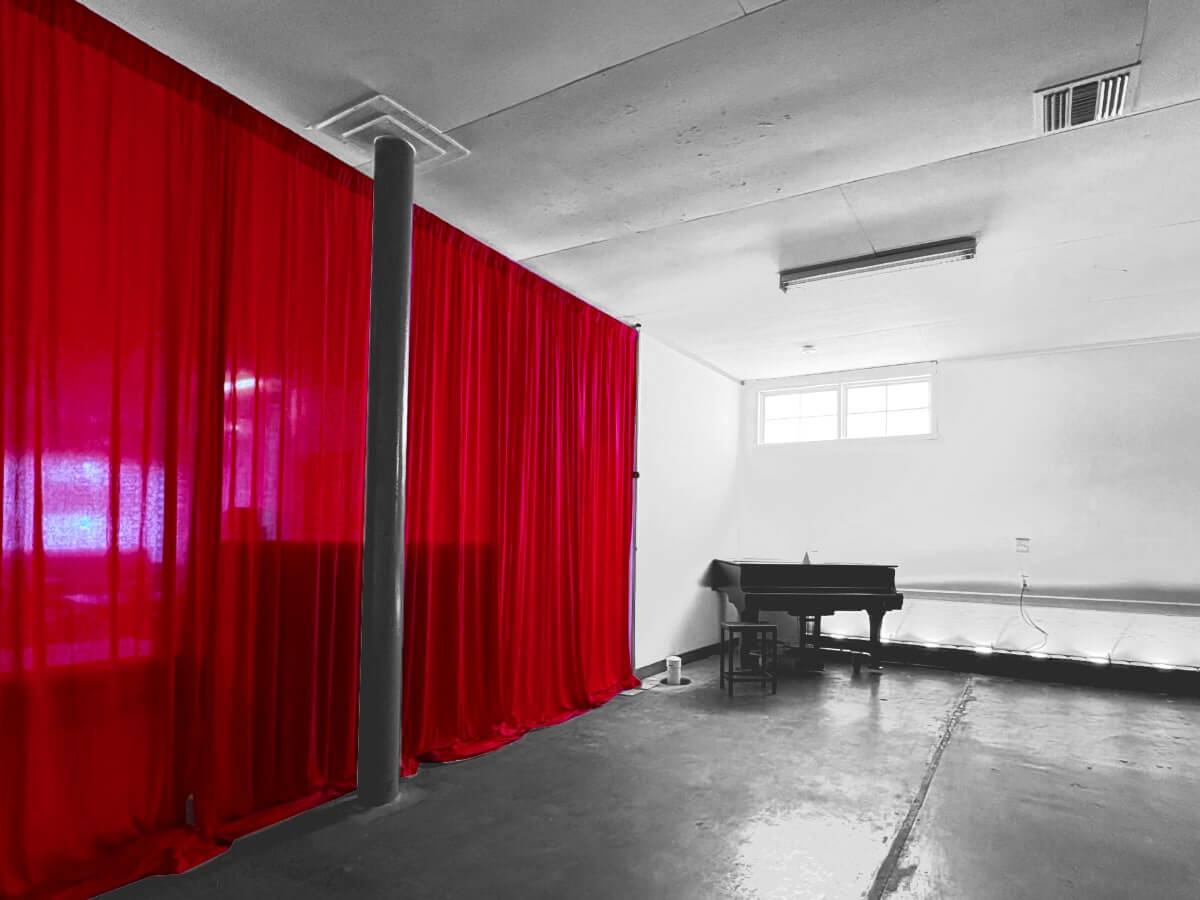
The NPN Open Mic is an opportunity to share in the talents and artistry of the NPN community while getting to know a New Orleans community venue. CANOA is an artist-led venue and resource center in the Upper 9th Ward that supports artists from the local Caribbean diaspora and facilitates artistic exchange. Performance spots are five minutes each and you can sign up when you get to the venue. Come share your favorite act, try out some fresh material, or make some magic with an NPN colleague!
About Mondo Bizarro Presents
Mondo Bizarro is curating a two-night mini-showcase, featuring live excerpts of new performance work by NPN-supported artists. Performances take place at Catapult, a gathering place for experimentation and creative collision. Each night will feature three short performances, followed by a social hour with the artists.
Space is limited: Registration required.
Featured Performances and Artists
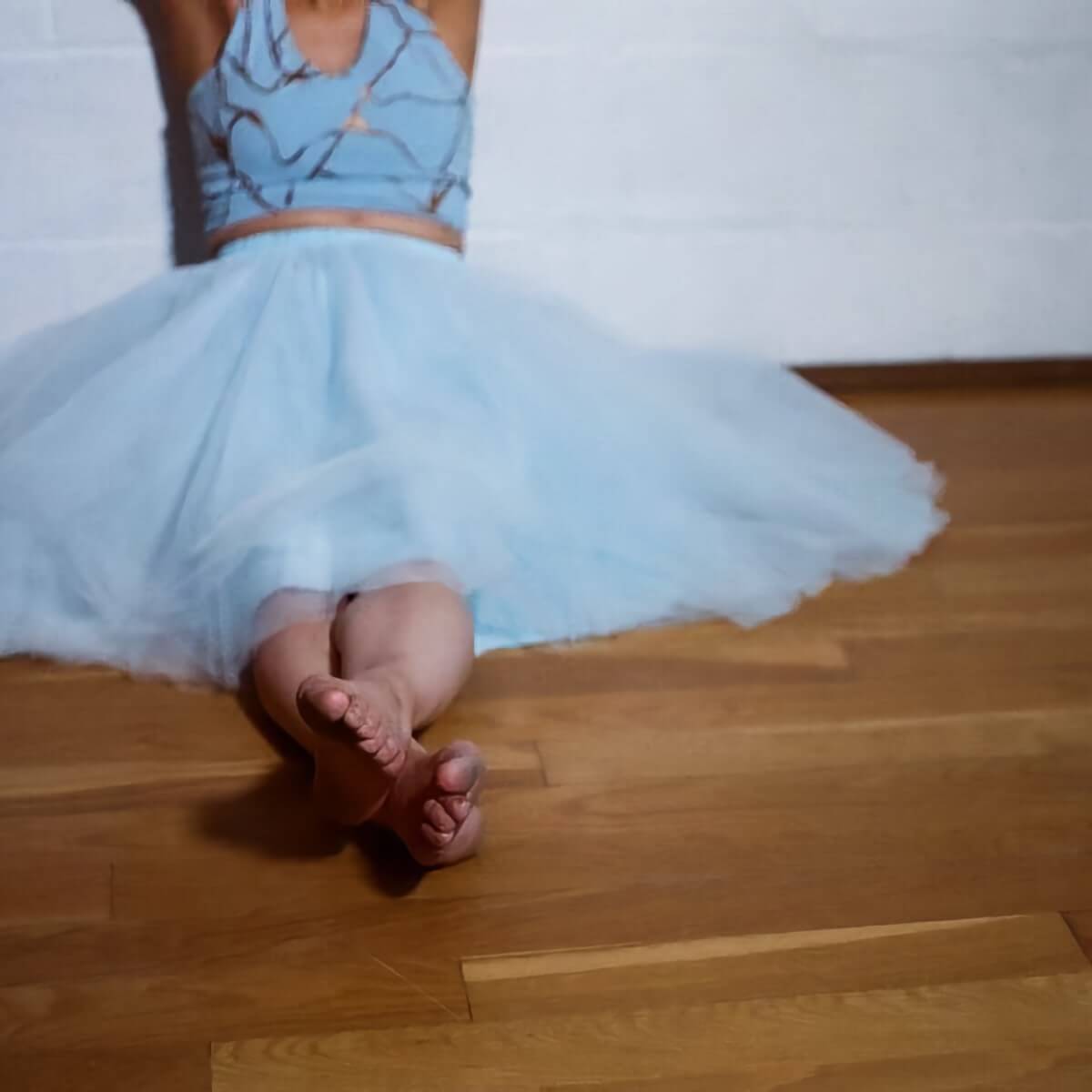
Promotional image for The Mask of Joy, by Nicole Marquez and Julie Turner. Nicole Marquez, The Mask of Joy
Nicole Marquez is a dancer, performer, and brain and spinal injury survivor whose story of resilience informs her art. The Mask of Joy is a collaborative work by Nicole Marquez and Julie Turner that tells a deeply personal story of survival and renewal. Inspired by Nicole’s near-fatal accident 15 years ago, the piece explores themes of healing, resilience, and self-discovery through movement.
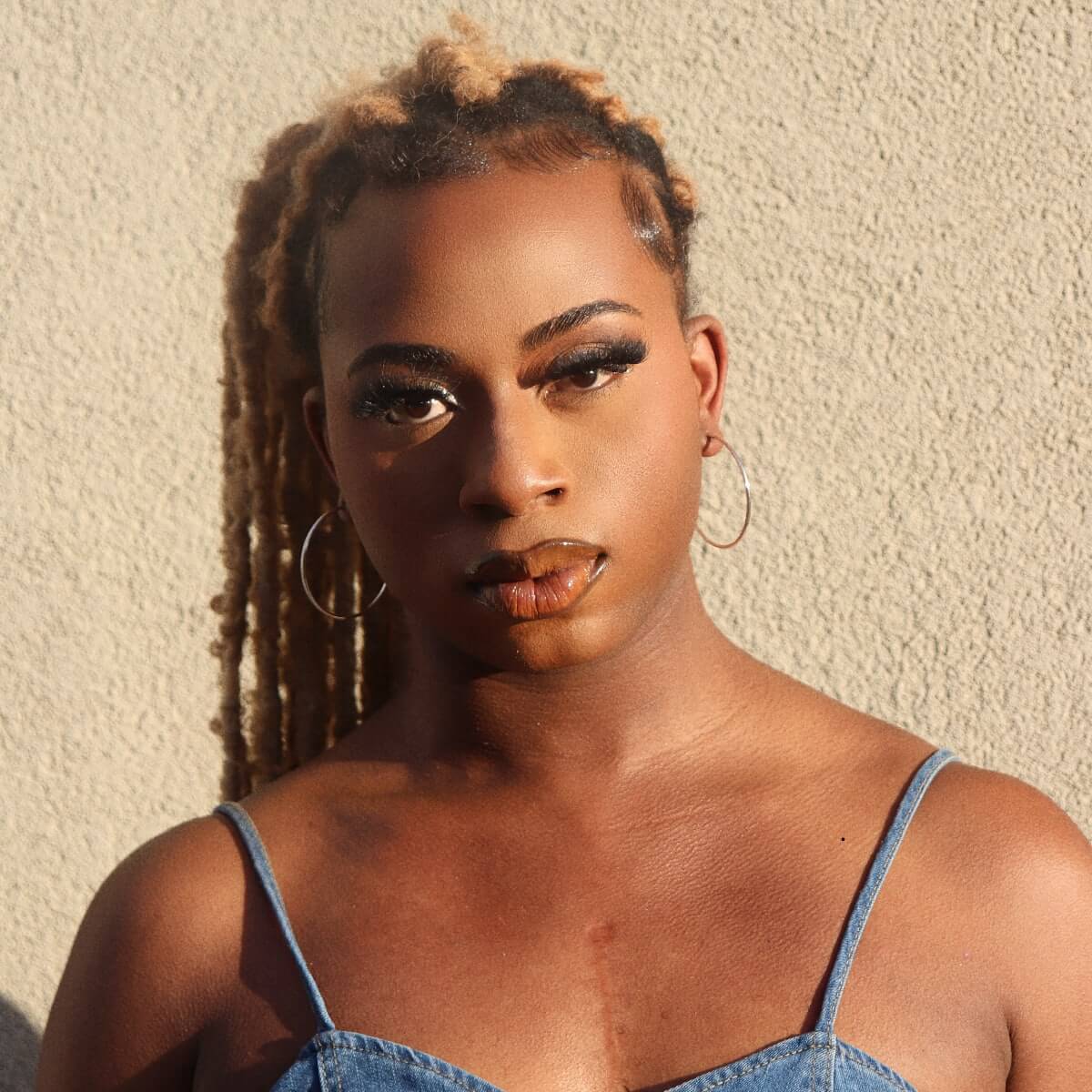
Simone Immanuel. Simone Immanuel, From The Inside Out
When, in an act of rebellion, Girl decides to cut her hair, she could never have imagined what her Mirror would have to say–but when she asks it and it responds, it leads her on a journey of self-discovery and self-love. From The Inside Out, by New Orleans-based artist, actor, and writer Simonel Immanuel, is a story about learning to love yourself even if you have to imagine yourself beyond what you ever thought you could be.
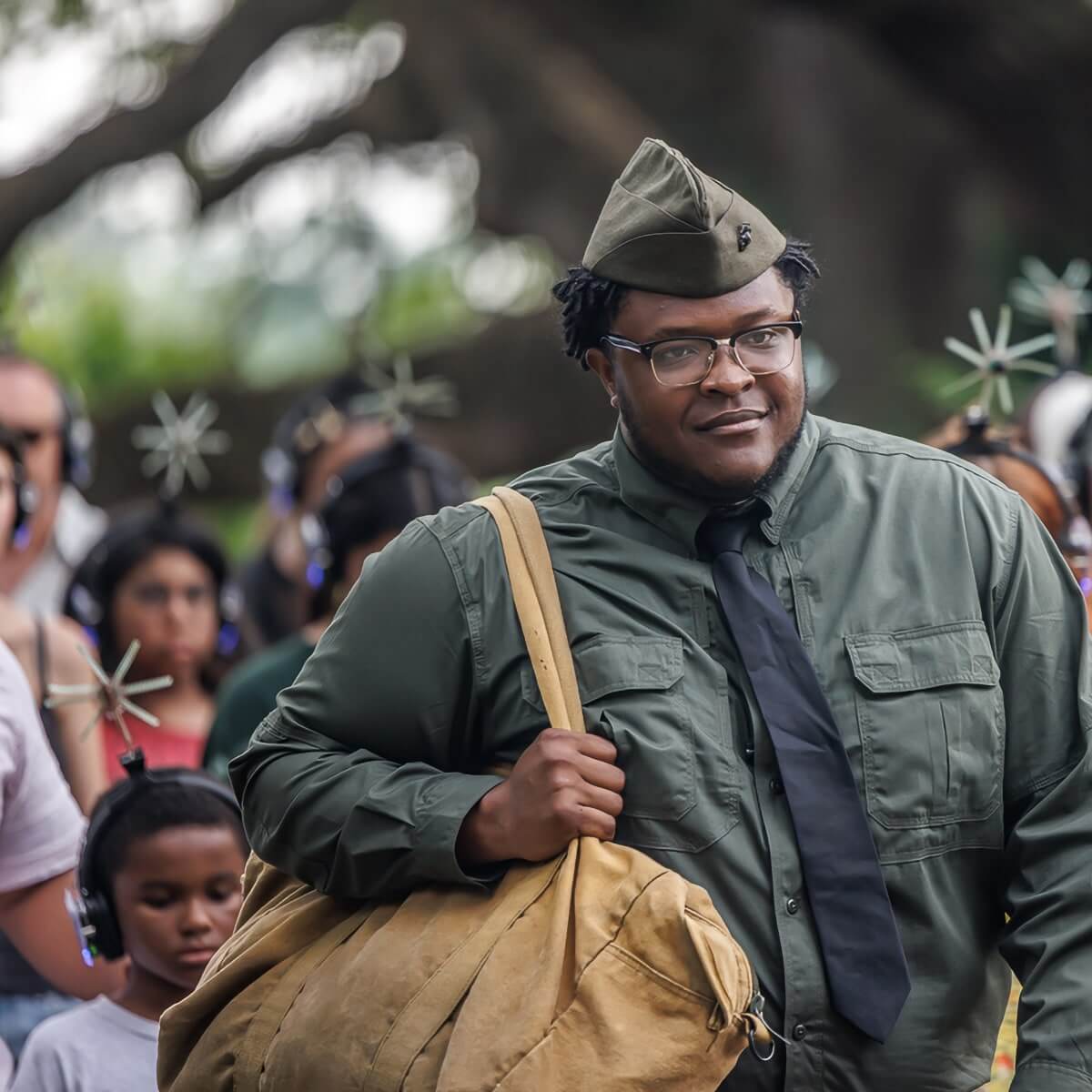
Wonder Wander – City Park. Lisa Shattuck and No Dream Deferred, Wonder Wander – City Park
Wonder Wander – City Park is an ensemble-devised land and labor acknowledgment experienced through storytelling, conceived by Lisa Moraschi Shattuck and co-directed with Lauren Turner Hines. Through a fusion of live performance and immersive audio, the play journeys through the layered history of New Orleans’ beloved City Park—once a vital portage for Indigenous peoples, later home to plantations and a segregated park, and now a vibrant space for celebration and gathering—and invites audiences to connect to the land on which they stand.
Presenter

Mondo Bizarro Productions
Mondo Bizarro is a New Orleans-based company that has been creating interdisciplinary art and fostering creative partnerships in local, national and international communities for twenty-three years. Our creative endeavors embody the urgency of our desire to listen to our land and culture, develop allies in collective action, and provide a platform for using art as a tool to understand what makes us commonly human and individually unique.
Thursday, October 9
- 9:00 am–5:15 pm Registration
- 9:00 am-10:00 am Affinity Space: Trans & Nonbinary Artists and Arts Administrators
Morning Breakout Sessions — case studies, roundtables, and more
-
The measure of people’s potential for liberation is based on how different their culture is from their oppressors.
– Amilcar Cabral
During the conference, NPN and Project South will facilitate a three-day movement assembly. Assemblies are convenings organized to bring together people who work on a similar frontline of struggle in order to share analysis, collaborate, develop, and implement action plans that grow cohesion and unity for frontline power. The Cultural Movement Assembly (CMA) is an opportunity to engage the art and culture ecosystem as a frontline in the struggle for justice. In this time of authoritarianism and proto-fascism, there is a mandate in front of us to build collective power, face the world in which we live and do our work, and work towards the world we all deserve. -

Budgets and fees are expressions of what is valued. What kinds of processes and tools can help artist workers, contracting entities and funding bodies foster equitable financial interdependence, resilience, and collaboration within the performing arts ecosystem? What are numbers that reflect dignity? The “Designing your Fees” worksheet was created by Makini as a starting place for artists to define their financial goals and dreams in relation to their current and future lives. Session participants will explore and reflect on an improved draft version of the worksheet that incorporates findings from participatory research with performing artists from across the US and Brazil.
Type:
Facilitated interactive session
Topics:
Artists’ labor and lives
How we work
Facilitators
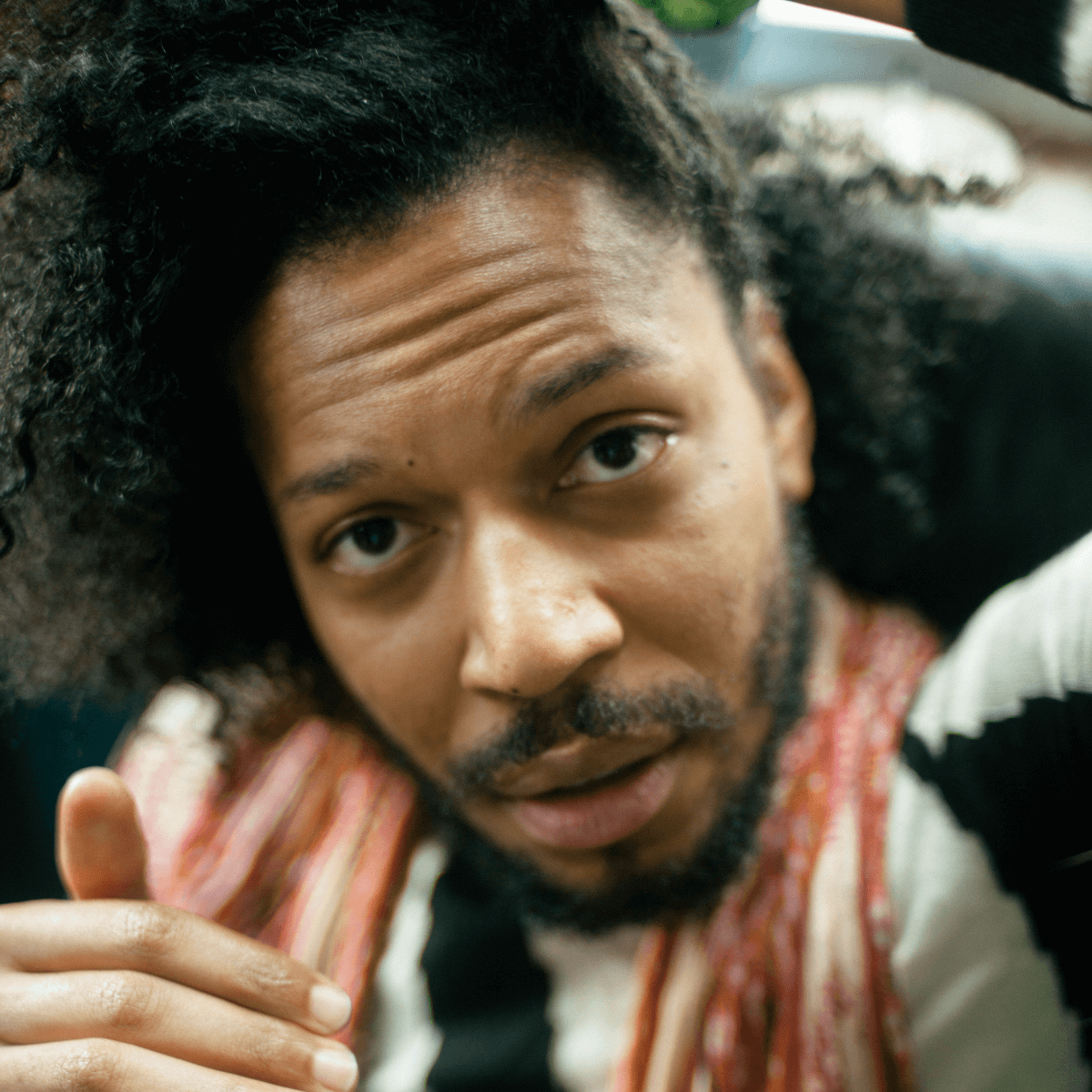
Makini. Photo by Tayarisha Poe. Makini
Independent Artist
An artist and organizer based on traditional lands of the Tutelo-Saponi speaking peoples, Makini strives to engage in and further dialogues with Black queer folks; create lovingly agitating performance work that recognizes History as only one option for the contextualization of the present; and continue to encourage artists to understand themselves as part of a larger community of workers who are imagining pathways toward economic ecosystems that prioritize care, interdependence, and delight.
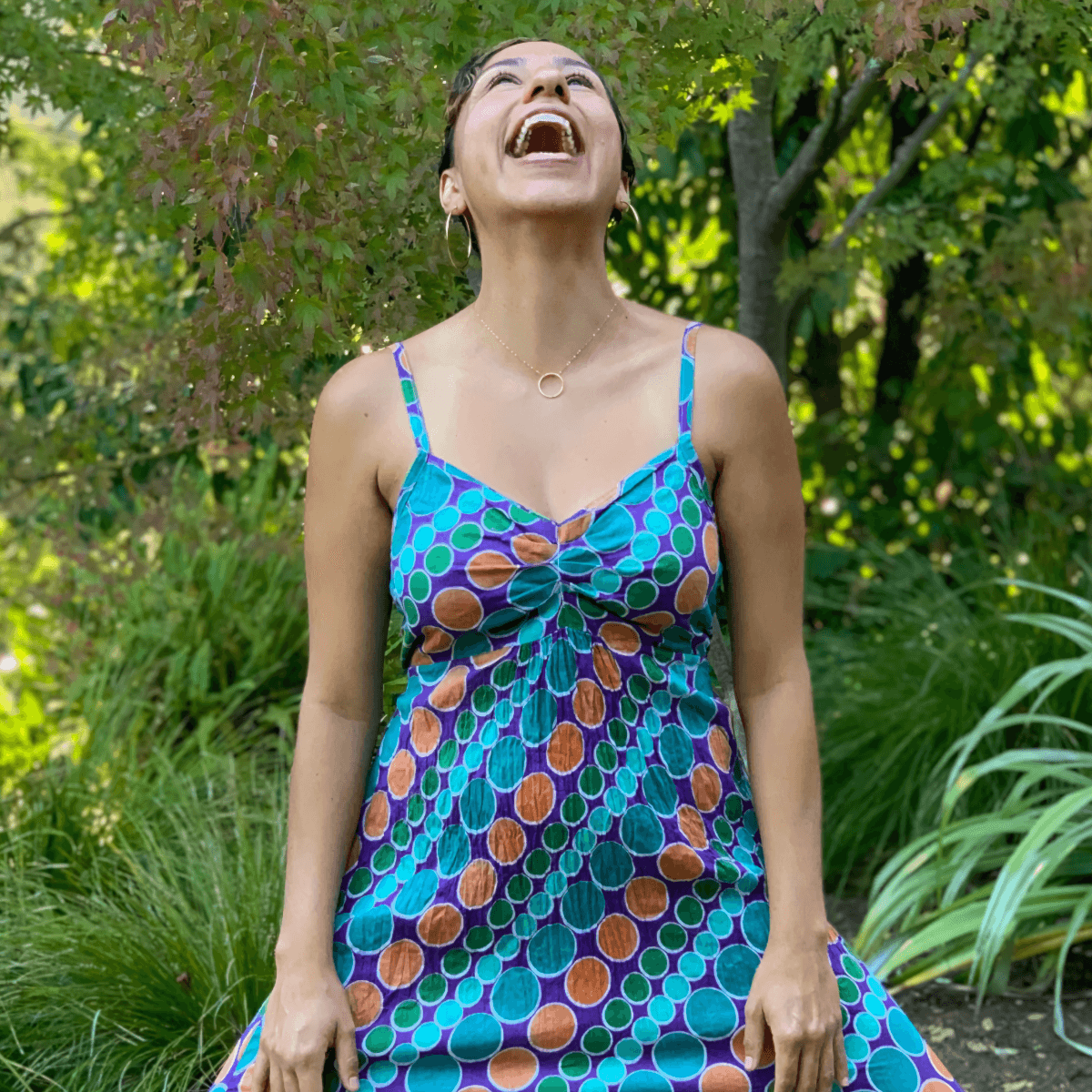
Nefertiti Charlene Altan. Photo by Sabrina Jasmin Hammoudeh. Nefertiti Charlene Altan (she, her)
Independent Artist
Nefertiti Charlene Altan is an afro-indígena, transdisciplinary performance artist, educator, producer, researcher, activist and language interpreter working towards embodied liberation through dance-based storytelling that centers Black and Indigenous memories, resistance, feminisms and futurist dreams. She is currently an adjunct professor at Saint Mary’s and a co-director with Makini and Anderson Feliciano of the interdisciplinary performance project TERRESTRIAL.
-

What dance is possible during a live-streamed genocide? If dance is inherently a practice of bodies, and a conjuring force of empathy and connection, what is this art form’s role amidst this ongoing horror?
Long before the genocide of the Palestinian people began, Body Watani Dance project was centering Palestine in performance and practice. Yet within the escalation of these past two years of genocidal ethnic cleansing, we urgently shifted our role of leading embodied offerings for communities: holding space for grief, rage, and reclamations of aliveness through movement.
This presentation will share video, stories, context and findings from multiple examples of centering Palestine while developing embodied practices in community amidst an ongoing genocide. From the streets of downtown Minneapolis, to the refugee camps in Lebanon, to the valleys of olive trees being stolen in Palestine, what potential does the act of dancing offer in these contexts?
How can movement redirect paralyzing despair of witnessing genocide towards a renewed sense of energy towards collective fight and ongoing indigenous resistance on all fronts? While also — shaping space for rest, soaking in unyielding grief, and soothing our nervous systems? While also — embodying the essence of carving tunnels towards freedom via liberatory practices determined to envision a decolonized world?
Calling to the conversation, folks with resonant questions, perspectives and strategies.
This work is led by two Palestinian sisters of refugee lineages (Leila and Noelle Awadallah) along with collaborators, mentors, and ancestors that guide, challenge, and spiral with us along the way.
Type:
Small group discussion
Topic:
Political life
Speakers
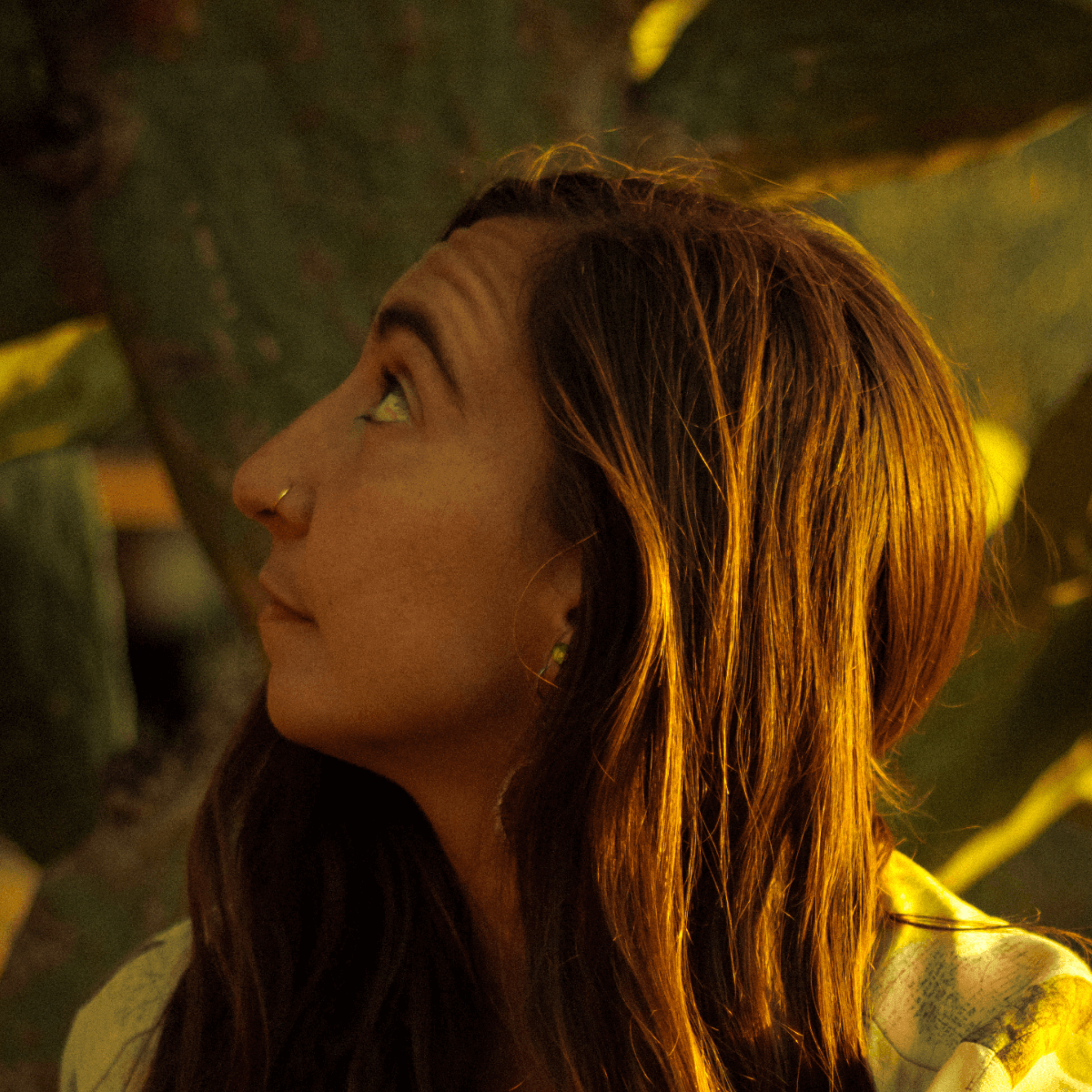
Leila Awadallah. Photo by Bushra Barghouthi. Leila Awadallah (she, her)
Artistic Director, Body Watani Dance project
Leila Awadallah [LAY-la Ah-wa-da-la] is a dancer, choreographer and community collaborator based in Minneapolis and sometimes Beirut – making work in the spirit of the cultural intifada. She is the founder of Body Watani Dance project and recipient of multiple fellowships: McKnight, Jerome Hill, and Daring Dances. Leila’s research, performances, and collaborations have received residencies at Dar Jacir (Palestine), Hammana Artist House (Lebanon), Camargo (France), Arab American National Museum (MI), and across Mni Sota.
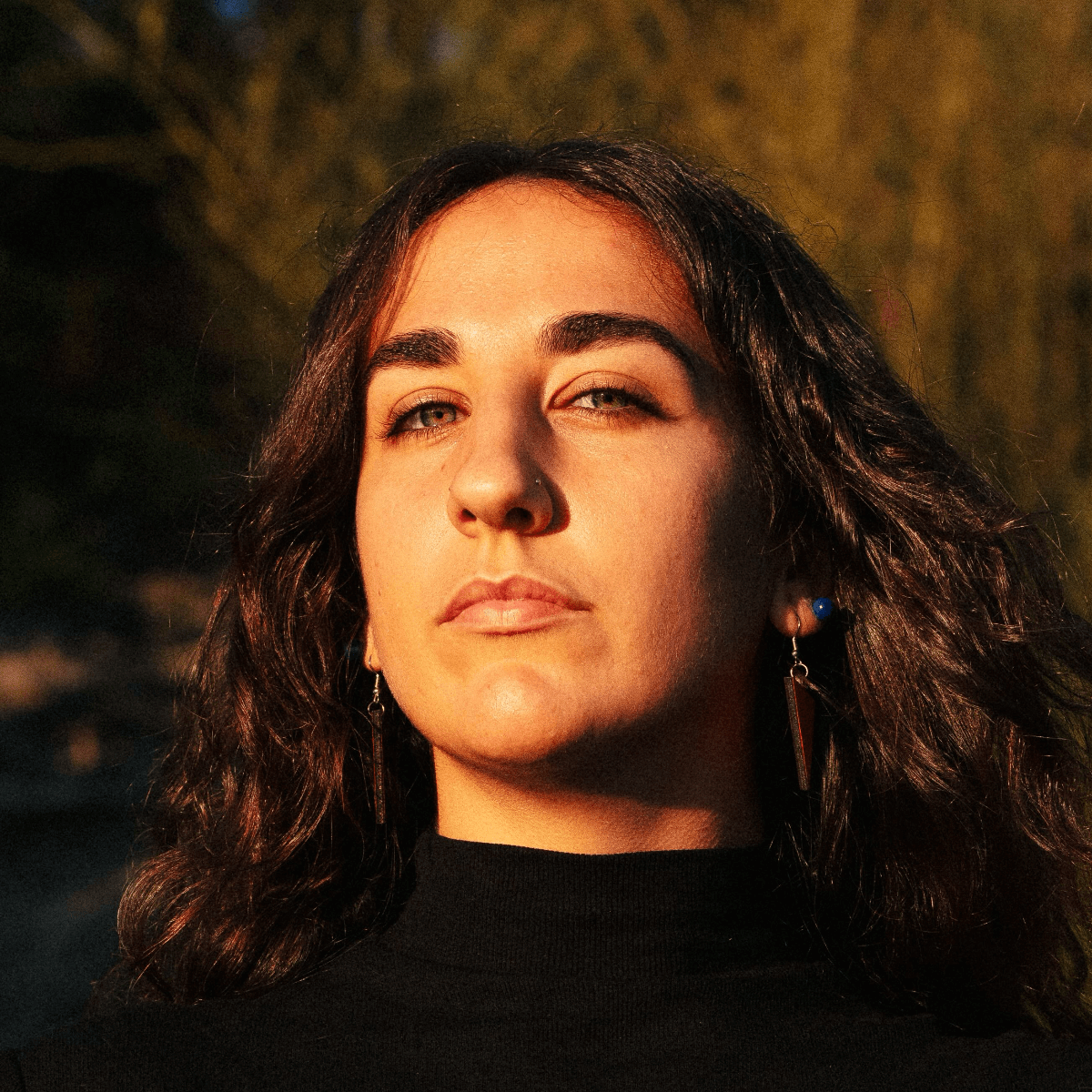
Noelle Awadallah. Photo by Sabrina Jasmin Hammoudeh. Noelle Awadallah (she, her)
Co-Artistic Director, Body Watani Dance project
Noelle Awadallah [No-Well Ah-Wa-Da-La] is a Palestinian-American dancer, improviser, choreographer, and farmer residing in Mni Sota Makoce (Minneapolis). Her work as the Co-Artistic Director of Body Watani Dance is underscored by five years (and counting) of dancing with Ananya Dance Theatre, a BFA from Columbia College Chicago (2018), and her daily pursuit of a “land-based life,” which emerges from sumud — a Palestinian ideology guiding steadfast perseverance and rootedness. Noelle is currently a Jerome Hill Fellow.
-

Artists, culture bearers, and creative practitioners who exist at the intersection of social transformation require new infrastructure capable of supporting their work, particularly when they are operating within systems designed to exclude them. This session draws on “Looking Back to Move Forward,” a participatory action research study of BIPOC artists and culture bearers in Detroit, Memphis, and New Orleans that identifies promising support practices for artists, organizations, and funders. The discussion is moderated by Cézanne Charles, one of the authors and researchers of the study and a practicing artist making work at the intersection of technology, society, and equitable futures.
Type:
Small group discussion
Topic:
Artists’ labor and lives
Moderator
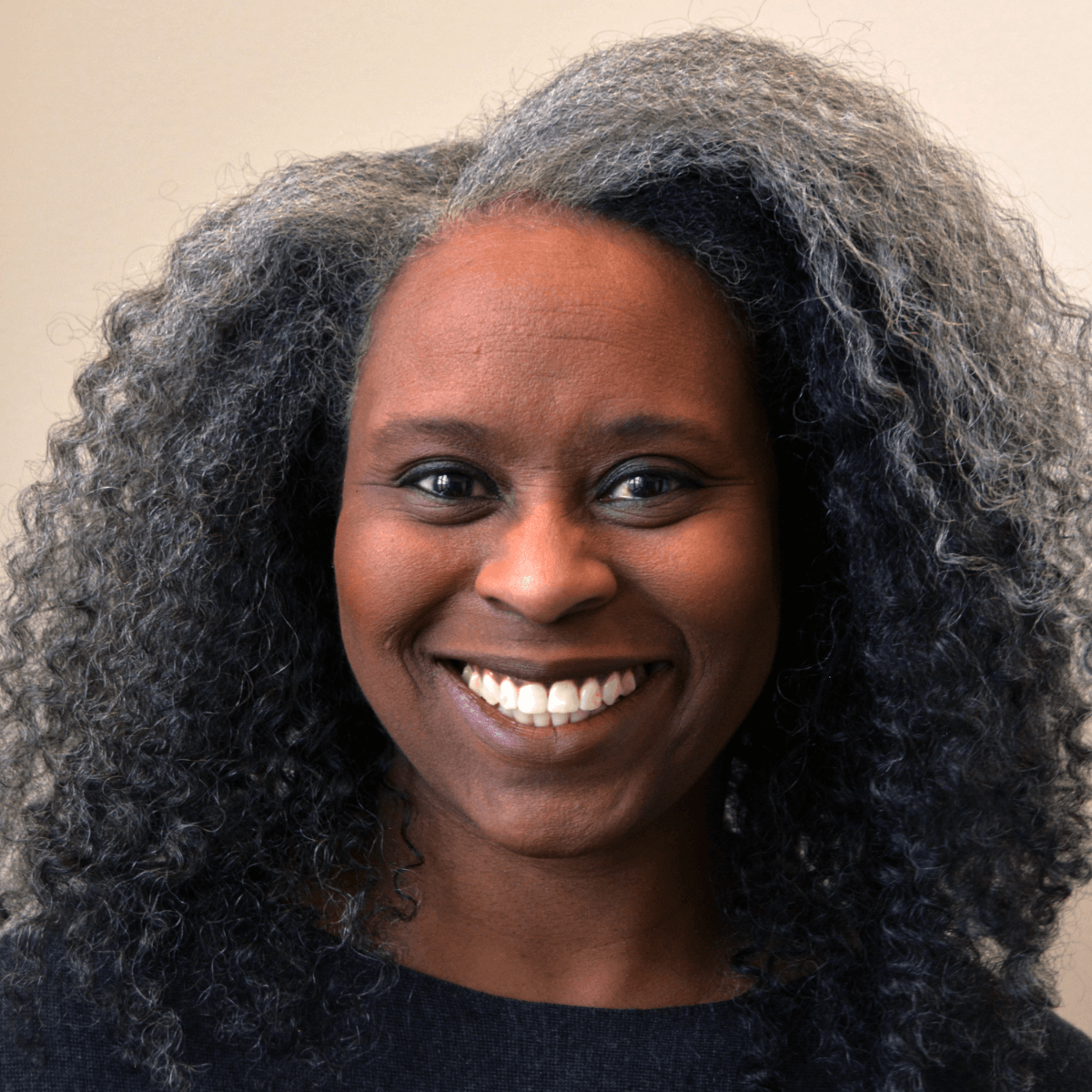
Cézanne Charles. Photo by John Marshall, rootoftwo. Cézanne Charles (she, her, hers)
Partner, rootoftwo
Cézanne Charles [SAY-Zahn] is a creative practitioner and researcher whose work focuses on the intersection of art, design, technology, culture, economy, social justice, and public policy. Cézanne co-directs with John Marshall, rootoftwo. a research- and practice-driven art, design, and technology studio based in Detroit. Together, they explore the consequences of under-imagined futures, creating artifacts, spaces, publications, experiences, events, research, and public works.
Speakers
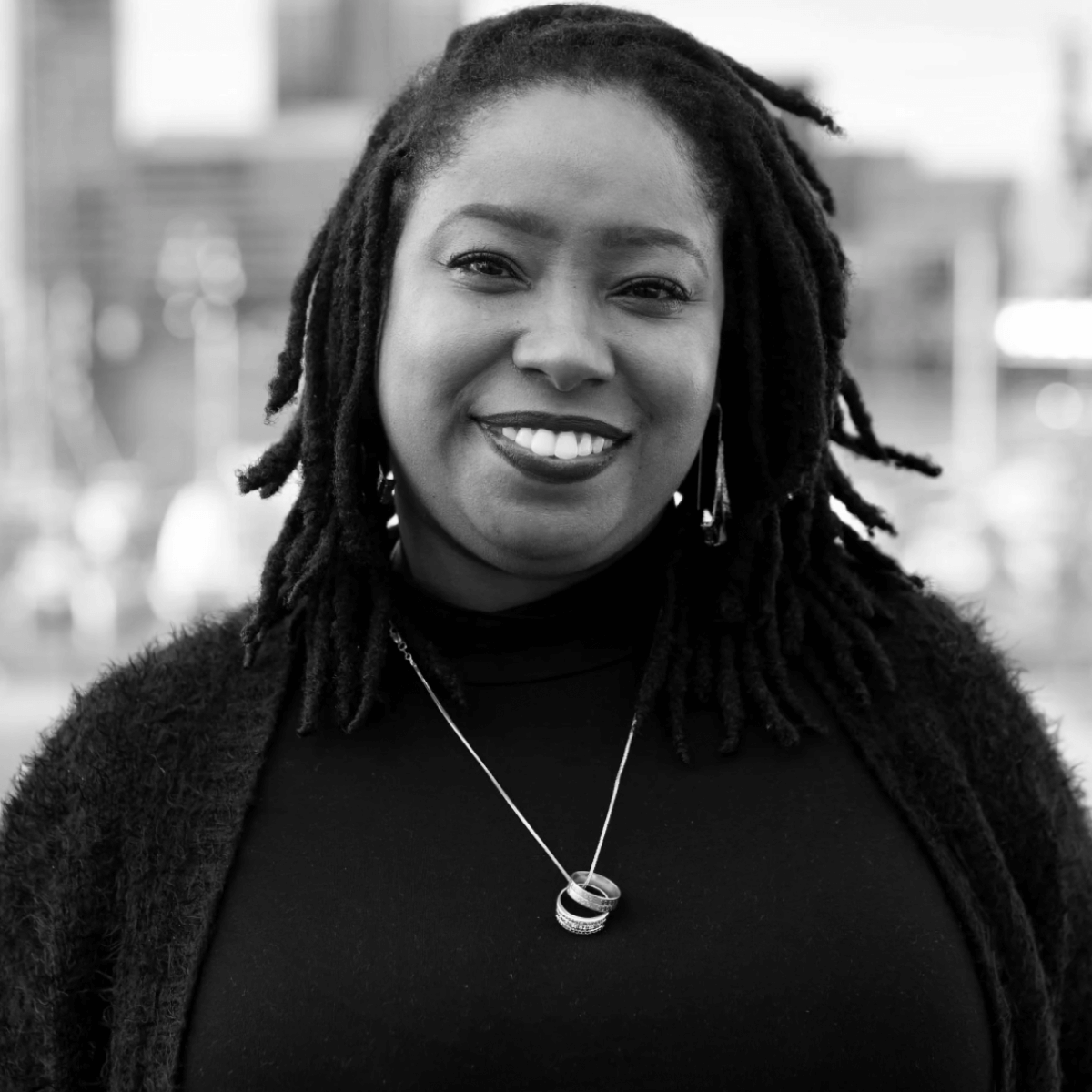
Jes Allie. Photo by Ireanna Rogers. Jes Allie (she, her, hers)
Co-Director, BULK Space
Jes Allie is an independent curator and Co-Director of BULK Space in Detroit. With over a decade in the arts, she works to ensure marginalized creatives have access to resources and opportunities. Her practice focuses on cultural place-keeping, site-specific works, and meaningful community engagement that brings art beyond institutions and into everyday life.
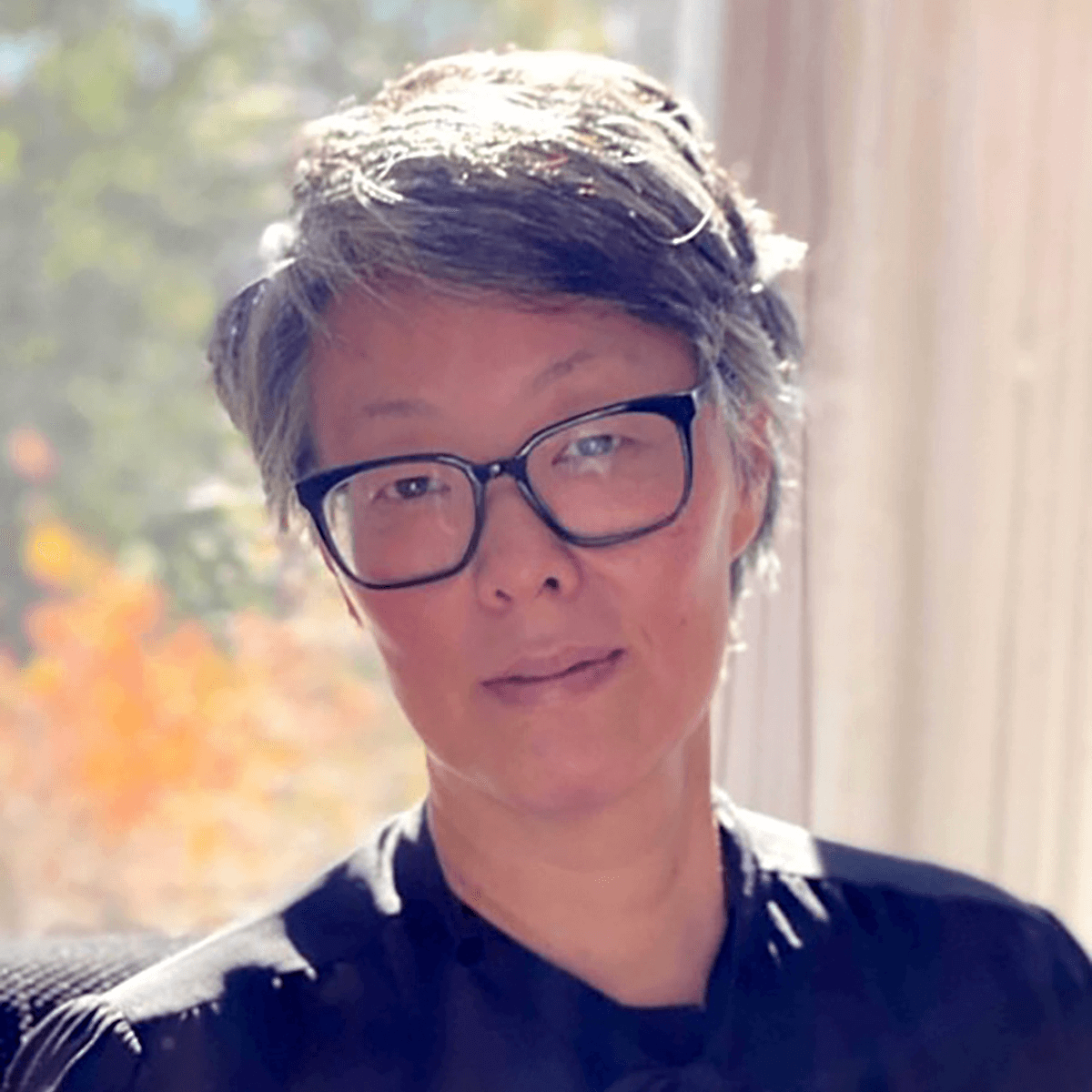
Judilee Reed. Photo courtesy United States Artists. Judilee Reed (she, her, hers)
President & CEO, United States Artists
Judilee Reed is the President & CEO of United States Artists. A leader in arts and culture, Judilee has built a career supporting artists and arts and culture focused work in the urban, rural, and tribal communities across the United States and internationally. Reed has held Director positions at the William Penn Foundation and Surdna Foundation. She studied art and art history at the University of New Hampshire and has alumnus status at the Harvard Business School.
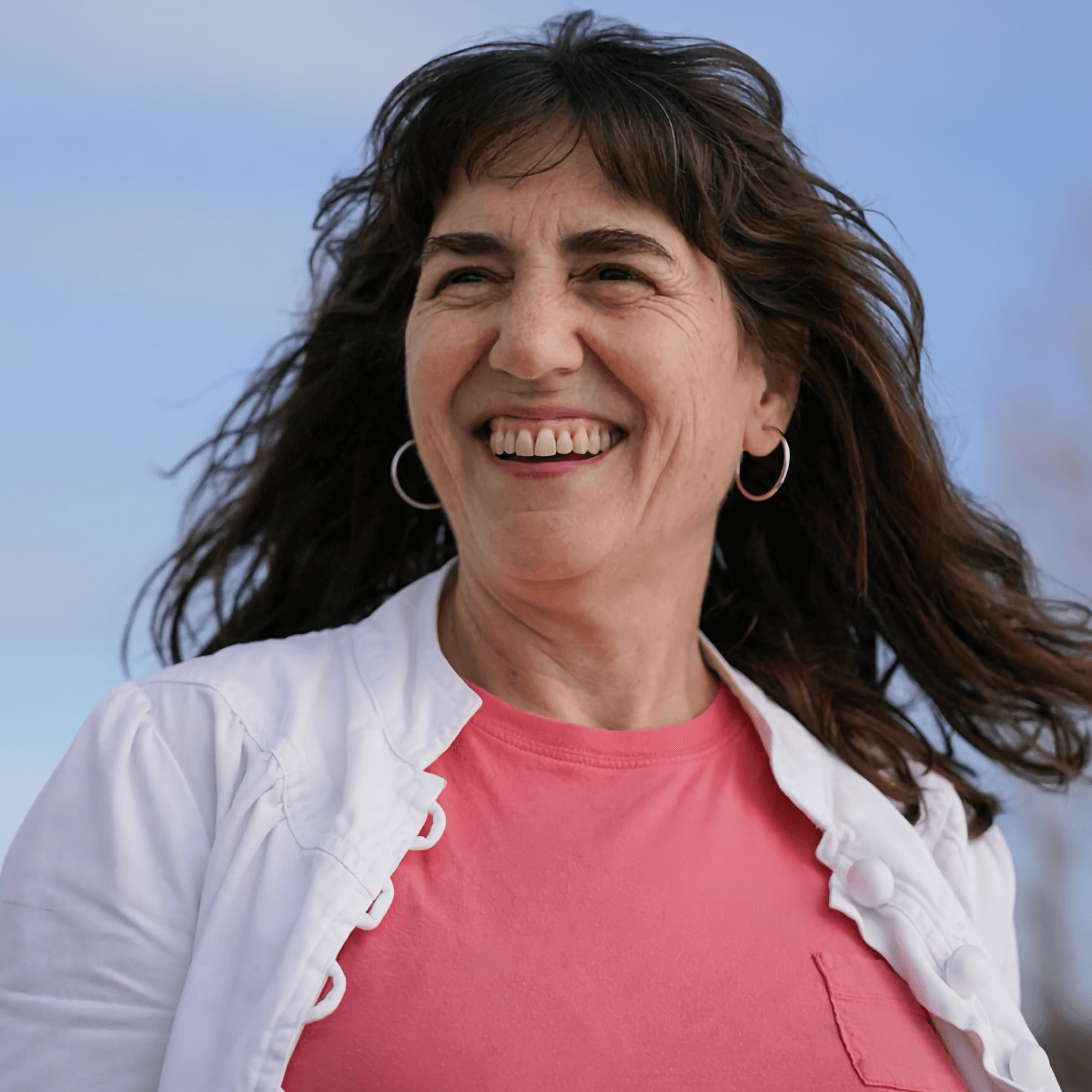
Ama Rogan. Photo by Akasha Rabut. Ama Rogan
Managing Director, A Studio in the Woods
Ama Rogan is Managing Director of A Studio in the Woods at Tulane University, an artist residency program fostering creative responses to environmental and social challenges of our time. Rogan holds a BFA in Painting from RISD. Under her two-decade leadership, the Studio has become an internationally recognized leader in place-based residencies, supporting nearly 400 artists, activists, and scholars, and centering community engagement and interdisciplinary exchange in a wooded environment on the frontlines of climate change.
- 12:00 pm–1:30 pm Lunch Break (on your own)
Afternoon Breakout Sessions — case studies, roundtables, and more
-
Making art is demanding. Caregiving is demanding. Artists doing both can sometimes feel impossibly squeezed. Based on community conversations and thoughts from 400 artist parents/caregivers, artist parents Michaela Pilar Brown and Andrew Simonet will build a positive, rigorous conversation about making art and caring for our children, our elders, and others.
-

Touring trans-led performance is more than just moving work from city to city — it is an opportunity to build living networks of care, knowledge, and solidarity across vastly different geographies. Connecting trans touring artists to local trans organizations creates safer, more informed environments for artists traveling into unfamiliar regions, and allows local communities to build reciprocal relationships with artists who carry different experiences, knowledge, and resources. This is particularly crucial for trans artists and audiences living outside of major urban centers, where access to affirming care, community, and resources may be limited or fragile. By building these intentional connections, touring projects can seed long-lasting networks of care that exist independently of state and institutional support.
In this panel, trans and queer artists, presenters, and cultural workers reflect on how touring can serve as collective movement-building and infrastructure for survival. We’ll explore concrete strategies for building reciprocal touring models that don’t simply import work, but help nourish local trans communities while building solidarity across distance, so that touring becomes a map of mutual aid, cultural power, and trans survival.
Type:
Small group discussion
Topics:
Artists’ labor and lives
Creation and mobility
How we work
Political life
Facilitator
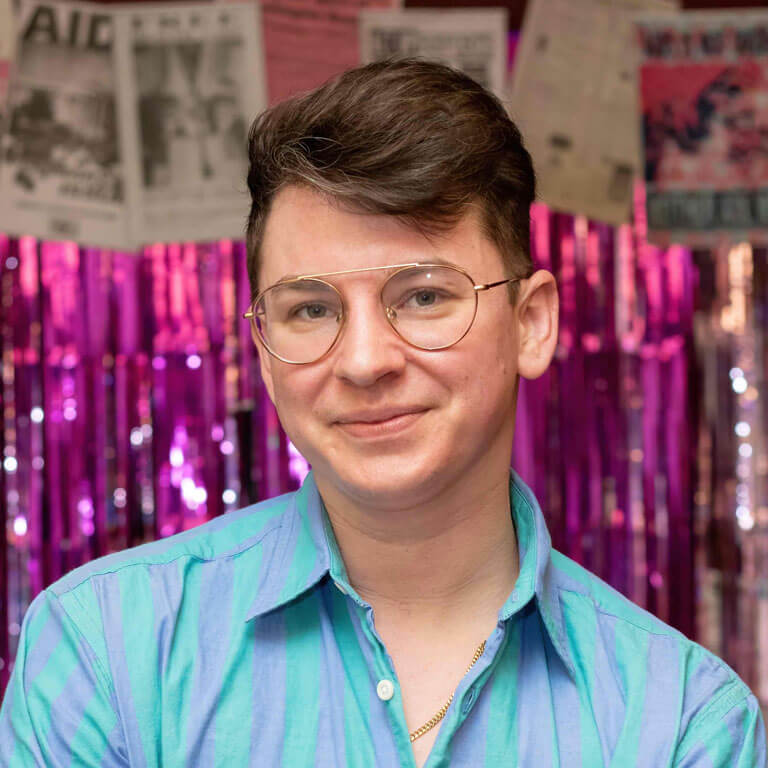
Lyam B. Gabel. Photo by Beth Barbis. Lyam B. Gabel (they, he)
Co-Director, Future Ghost
Lyam B. Gabel is a trans director, writer, and performance-maker whose work centers queer and trans histories through performance, oral history, and new media. Co-lead of Future Ghost, a trans/queer ensemble making design-driven performance, Lyam’s projects include the dance floor, the hospital room, and the kitchen table (NPN Creation Fund, CAC New Orleans, Kelly Strayhorn), DADDY, The House of Telescopes (Pipeline Theatre), and Amm(i)gone (Woolly Mammoth, The Flea, Long Wharf).
Speakers
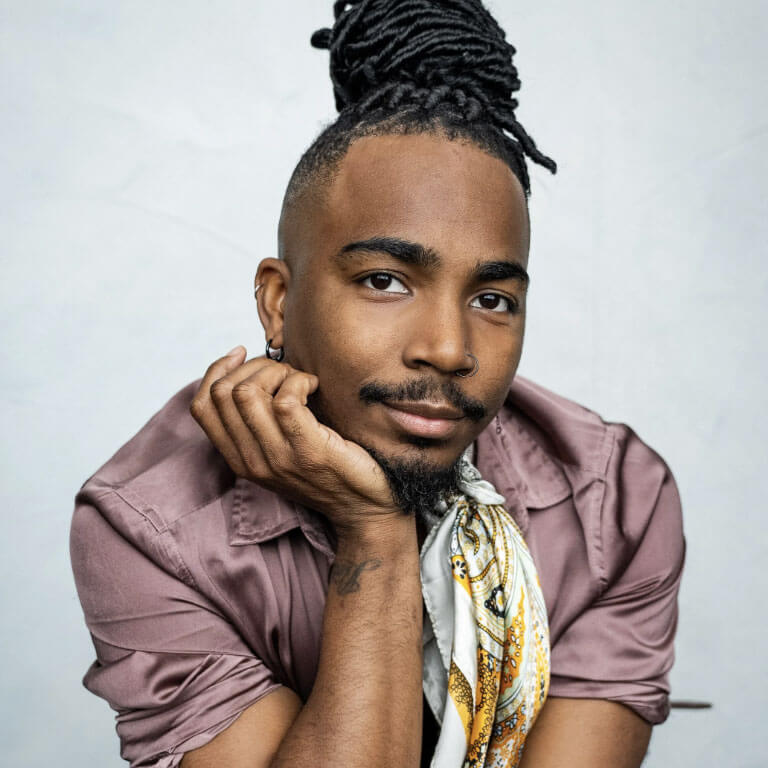
Nigel Semaj. Nigel Semaj (they, them)
Assistant Professor, UMBC
Nigel Semaj is a Baltimore-based director and movement artist whose work embraces the haunting wail of grief, violence, and love. Their directing spans the Off-Broadway premiere of Bloodshot, Shange’s Spell #7, and Lavery’s Slime. Adaptations like 10,000 Moor, For Hylas, and Call Me By Any Other Name…Just As Sweet reimagine classics through rage, loss, and queer desire. Trained with Frantic Assembly, Pig Iron, and Tectonic, their work spans plays, operas, musicals, and film.
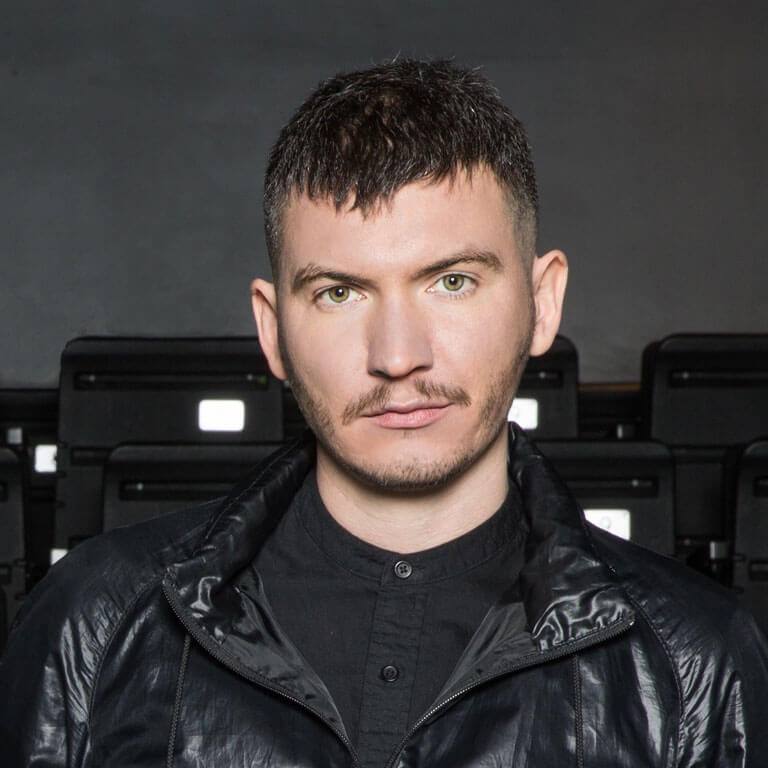
Ben Pryor. Photo by Scott Shaw. Ben Pryor (he, him)
Programming Director, Kelly Strayhorn Theater
Ben Pryor is invested in artists working across performative practices who challenge the boundaries of artistic forms and normative contexts, believing in excess, refusal, transformation and transcendence. Since 2009 Pryor has worked with artists to build and tour new evening-length performances. Pryor has collaborated with 83 museums, festivals and cultural institutions in 54 cities across 16 countries and is currently Programming Director for Kelly Strayhorn Theater in Pittsburgh, PA.
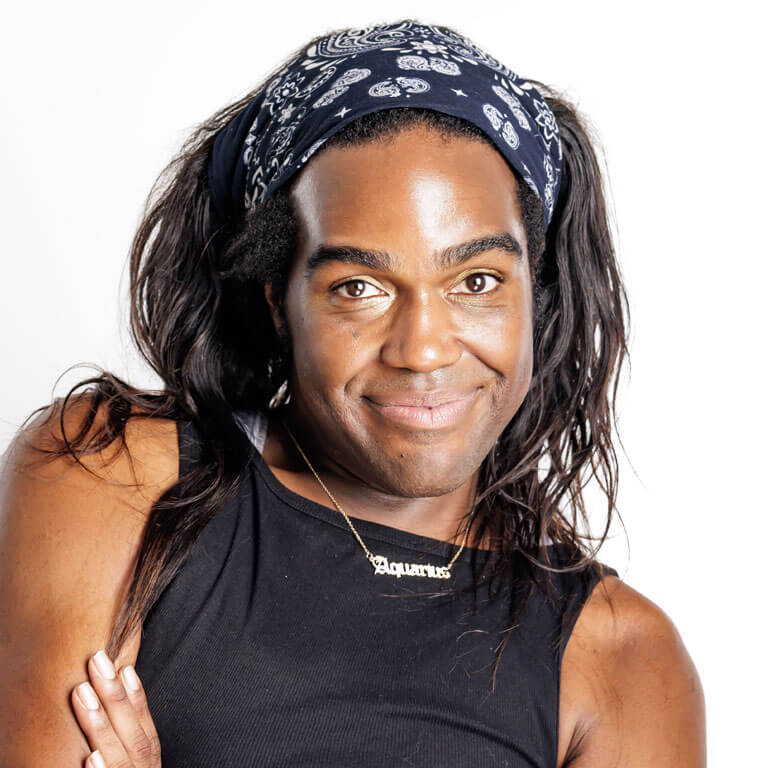
Nathalie Nia Faulk. Nathalie Nia Faulk (she, they)
Director of Philosophy, Thought, and Leadership, Southern Organizer Academy
Born in Lafayette, Louisiana and now living in New Orleans, Nathalie Nia Faulk is a self-described Ebony Southern Belle whose work blends performance, history, healing justice, cultural organizing, and leadership development—especially for trans and queer people. She serves as Director of Philosophy, Thought, and Leadership at Southern Organizer Academy and as Cultural Organizing Programs Specialist at Alternate ROOTS. An Aquarius Sun, she believes everyone is valuable—and she’s a Beyoncé enthusiast!
-

What does it take to make inclusive, community-responsive theater about deeply polarizing topics? This session looks at the creative, ethical, and logistical complexities of making and presenting work that engages with gun culture, gun reform, and gun violence. Using Arms Around America (Dan Froot & Company) and The Great American Gunshow (Team Sunshine) as case studies, we’ll explore how artists and their partners navigate trauma and disagreement, handle institutional backlash and funding challenges, and make creative choices that reflect their values while engaging audiences, community members, and organizational partners.
Type:
Small group discussion
Topic:
Creation and mobility
Speakers
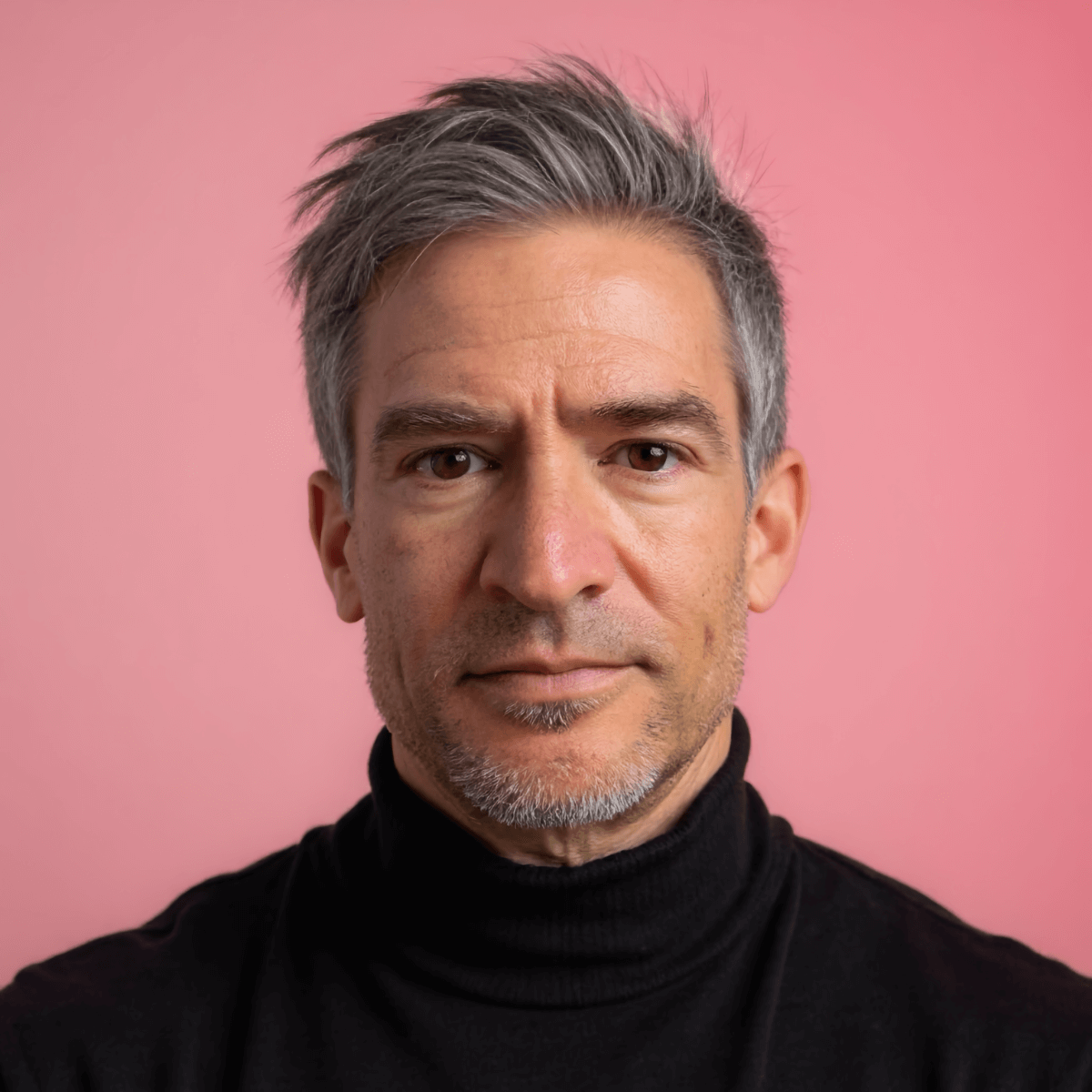
Dan Froot. Photo courtesy of the artist. Dan Froot (he/him)
Performance Artist, Dan Froot & Company
Dan Froot’s music, dance, and theater pieces have been presented throughout the U.S. and internationally since 1983, including at the Edinburgh Fringe Festival, London Institute for Contemporary Art, the Harare International Festival of the Arts in Zimbabwe, the Festival de Dança de Londrina in Brazil. His work delves into the social and political dimensions of love and family and the emotional entanglements of major social issues, such as hunger, plastics politics, and the gun debate.
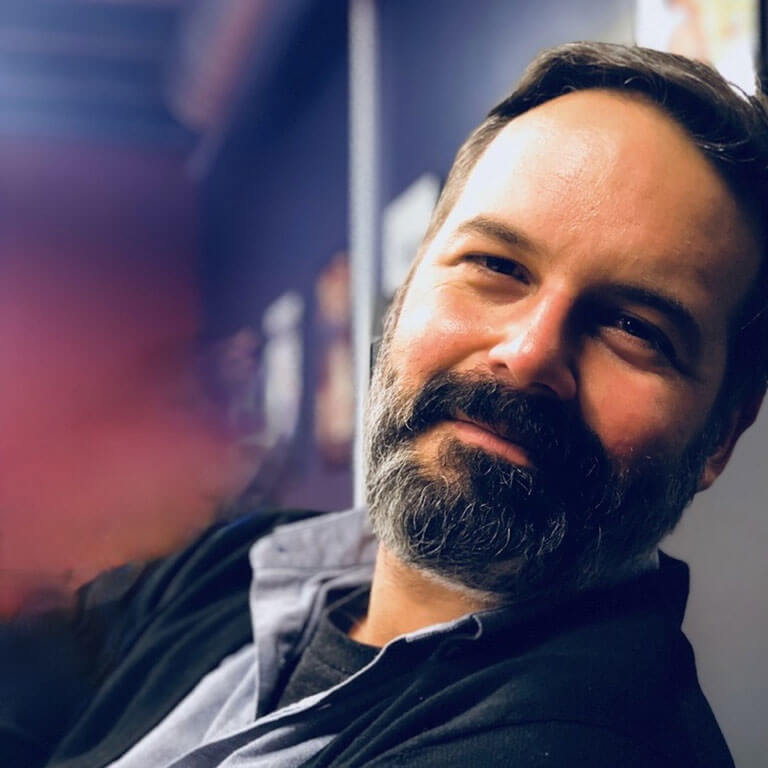
Alex Torra. Photo by Tommy Butler. Alex Torra (he/they)
Co-Founder/Co-Artistic Director, Team Sunshine Performance
Alex Torra is a Cuban-American, Philadelphia-based director, producer, and educator. He is the Co-Founder/Co-Artistic Director of Team Sunshine Performance and former Associate Artistic Director of Pig Iron Theatre Company. He also had long-time collaborations with poet Denice Frohman and choreographer/facilitator Shavon Norris. Alex received his B.A. from the UPenn, his M.F.A. in Directing from Brown University, and he currently serves as an Assistant Professor of Theater at Swarthmore College.
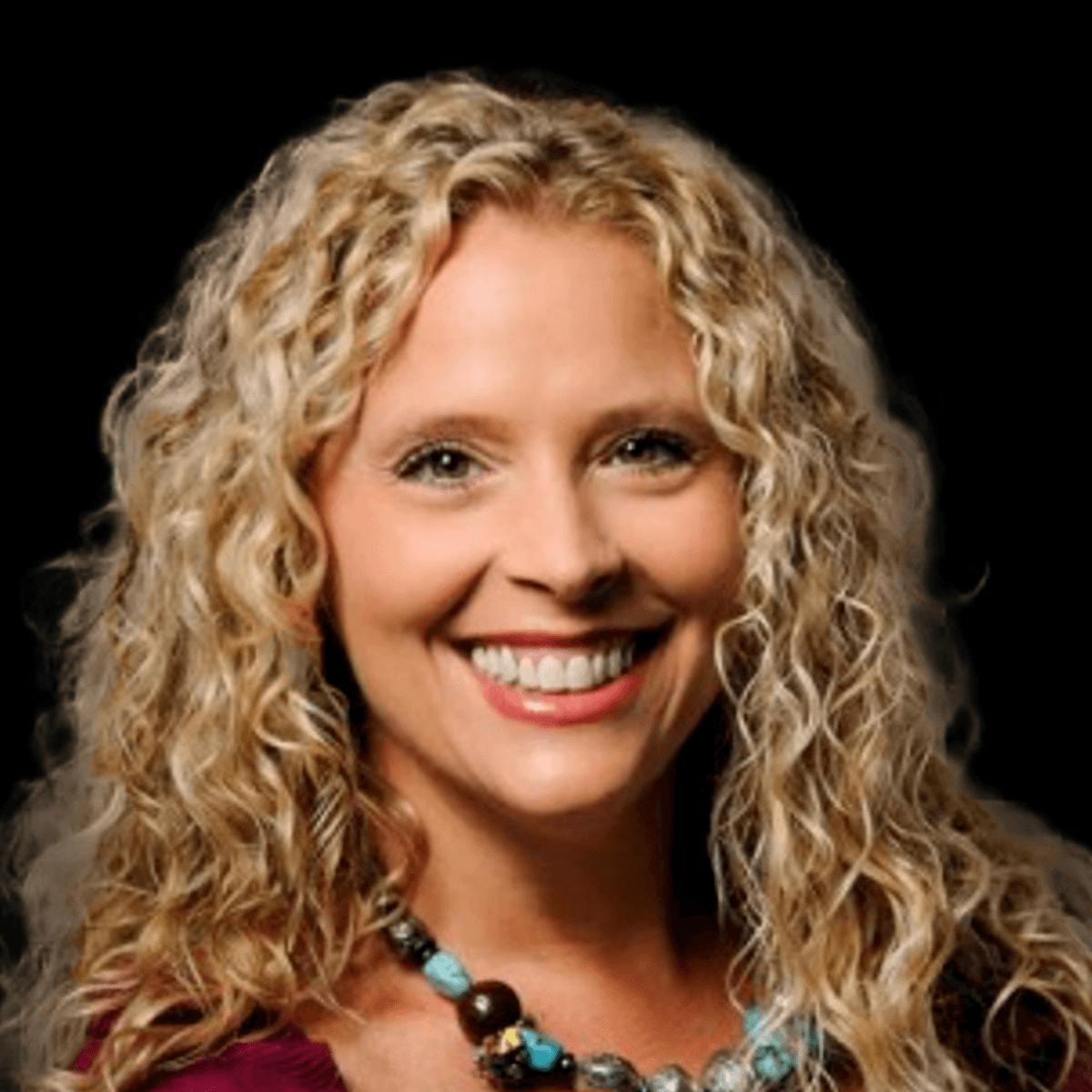
Beth Boone. Photo by Miami Light Project. Beth Boone (she/her)
Executive and Artistic Director, Miami Light Project
Beth Boone [Beth Boone (rhymes with “dune”)] has shaped Miami’s cultural landscape for 26 years, championing contemporary artists, pioneering Cuba–US exchanges, and founding the Light Box at Goldman Warehouse. She launched Here & Now, nurtured groups like Nu Deco Ensemble and Rosie Herrera Dance, served on national funding panels, and won the USA Beresford Prize for fostering innovation, diversity, and global collaboration. Beth advocates for equity, artists’ rights, and the power of culture to transform communities.
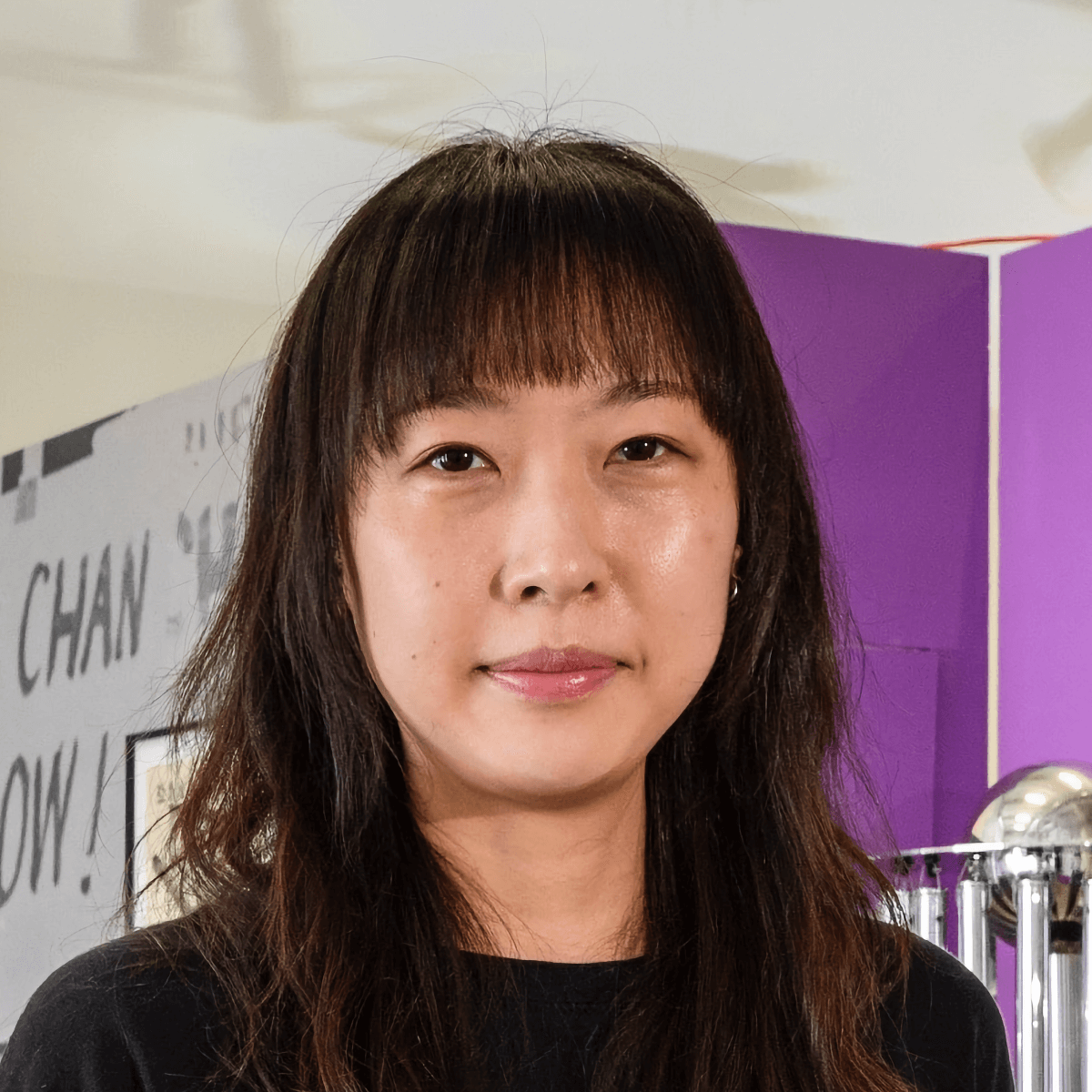
Joyce Chung. Photo by Constance Mensh. Joyce Chung (she/her)
Curator, Asian Arts Initiative
Joyce Chung leads AAI’s exhibition and performance programs. Her interdisciplinary approach examines identity, memory, and marginalization, with particular attention to how capitalism and power structures shape lived experiences. She is especially drawn to performance and time-based media for their ability to position the body as a site of resistance, reconciliation, and embodied memory. Chung focuses on underrepresented communities, particularly ethnic and gender minorities.
-

This workshop explores the terms of engagement that produced a mixed-media / live-processing performance that combines soundscaping, VR explorations, dance performance, projection mapping and storytelling to craft an immersive experience of Black thought and Black wonderment. The work was created by a quartet of queer artists across a three year rehearsal and development process. Topics discussed will include the technology interfaces, theoretical groundings, and performance outcomes of an improvised work of live-processing mixed-media performance rooted in Black Feminist Thought.
Type:
Small group discussion
Topic:
Creation and mobility
Moderator
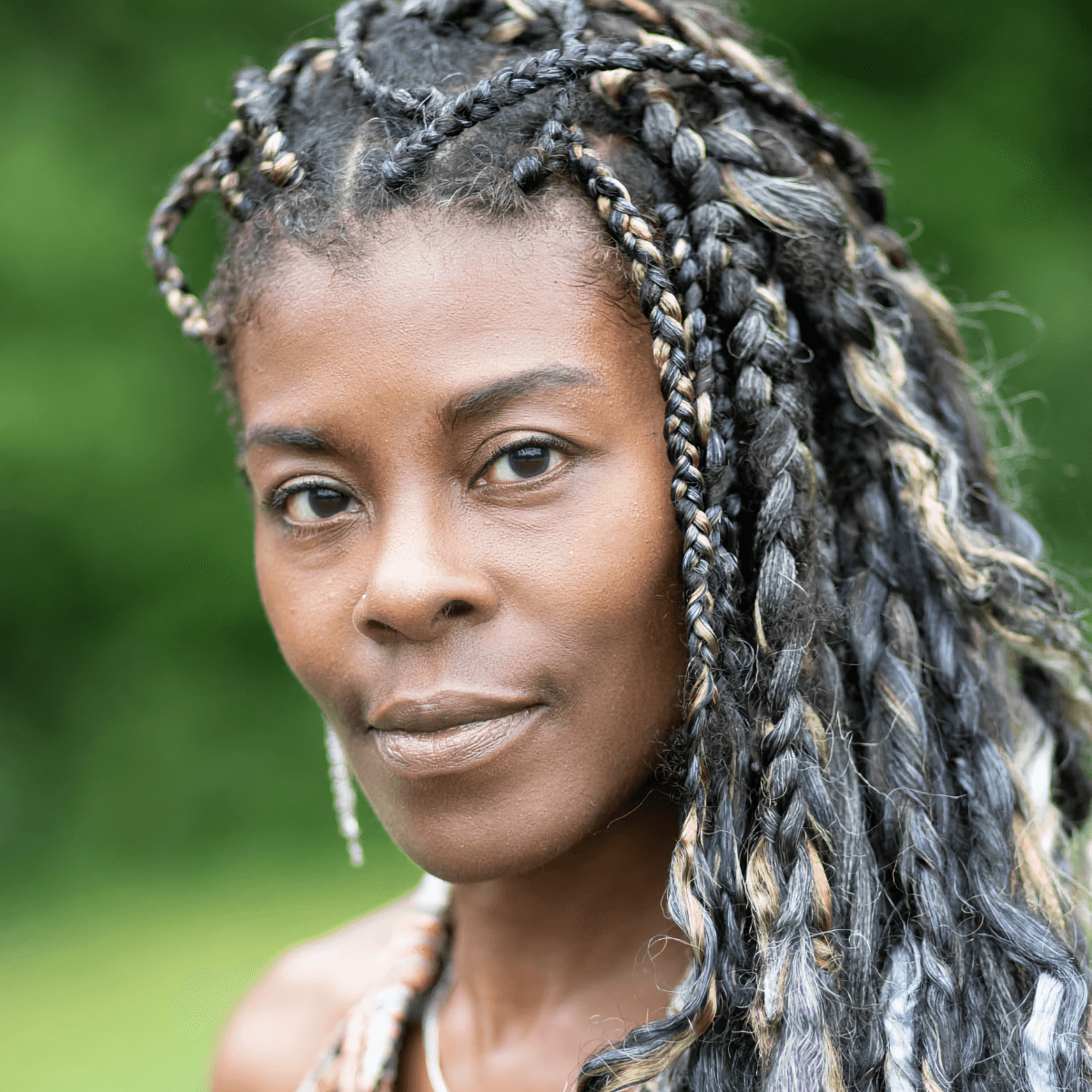
Shireen Dickson. Photo by Kendall Howard. Shireen Dickson (she, her)
Managing Director, SLIPPAGE
Shireen Dickson [Shuh-REEN] is the Managing Director of SLIPPAGE Lab at Northwestern University. Since 2010 she has directed OKRA Dance, which presents African and American diasporic dance and world rhythmic forms in schools, libraries, museums and festivals throughout the US. Shireen is a founding executive board member of the Collegium for African Diaspora Dance and directed their bi-annual conference at Duke University for 10 years.
Speakers
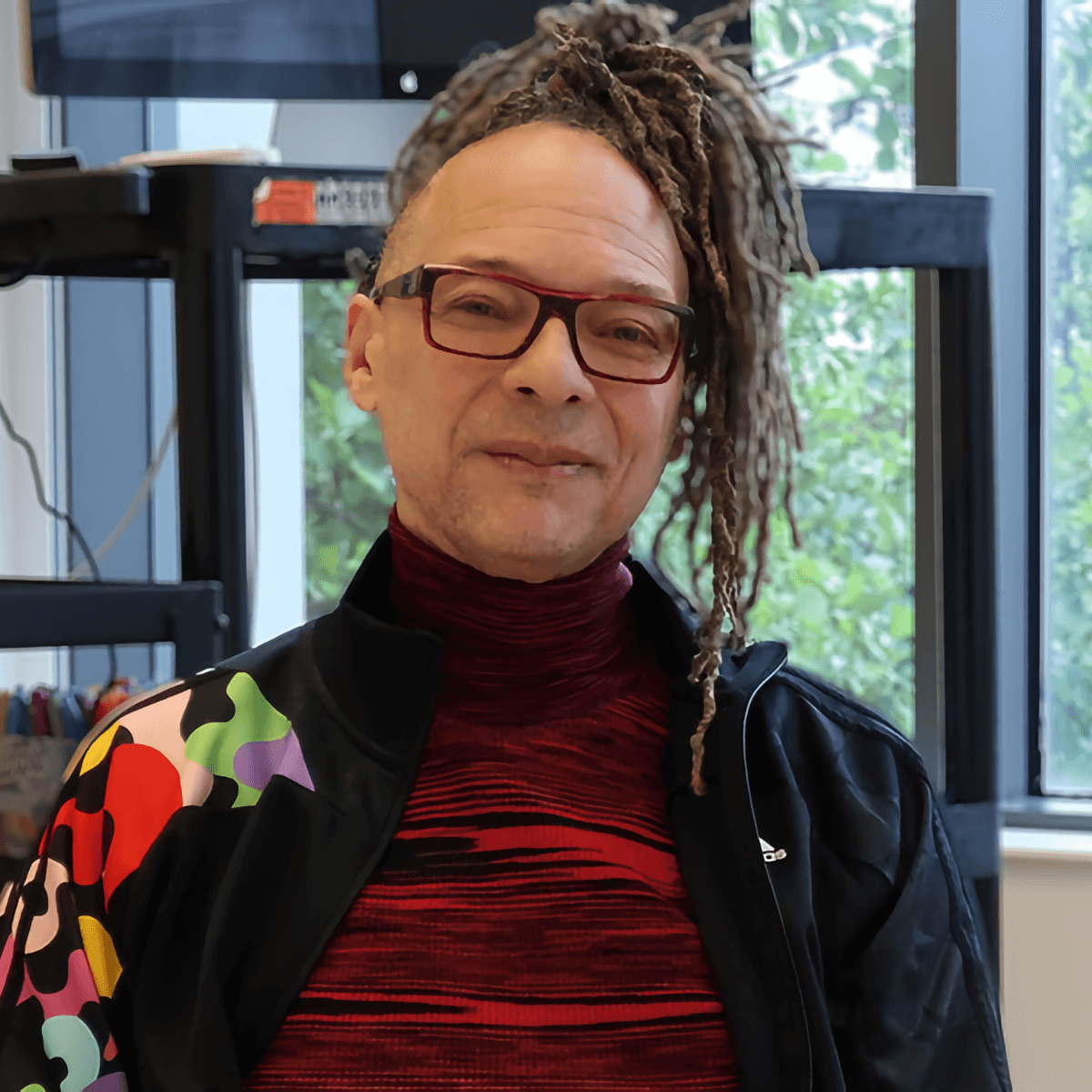
Thomas F. DeFrantz Thomas F. DeFrantz (he, him, Tommy)
Artistic Director, SLIPPAGE
Thomas F. DeFrantz is Professor of Theater and Performance Studies at Northwestern University and directs SLIPPAGE: Performance|Culture|Technology, the Chicago-based group explores emerging technology in live performance applications. DeFrantz believes in our shared capacity to do better and engage creative spirit for a collective good that is anti-racist, proto-feminist, and queer affirming.
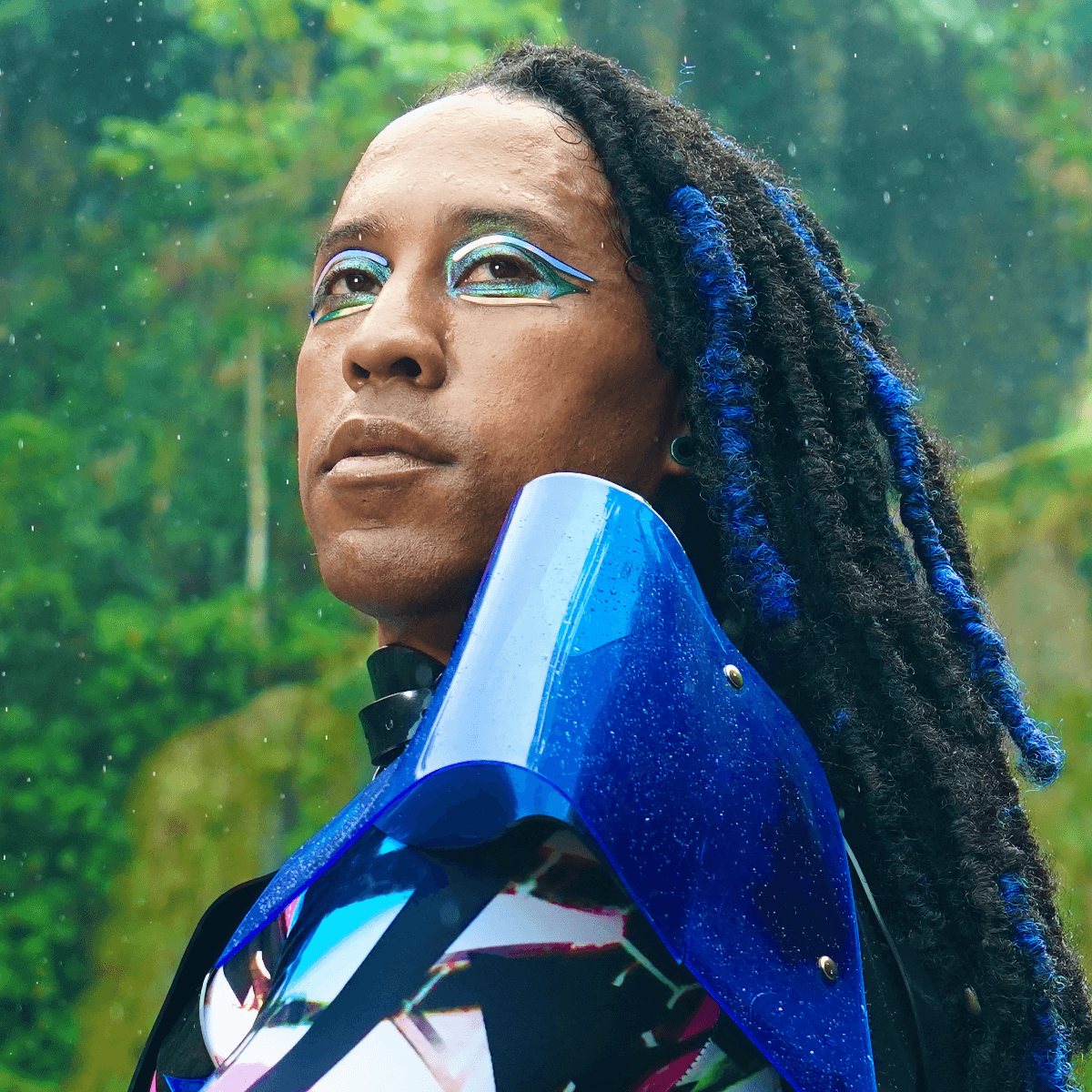
MX Oops. Photo by Sekou Luke. MX Oops (they, them)
Researcher, SLIPPAGE
MX Oops [EM-Ex] is an Associate Professor of Dance, Multimedia Performance, and Somatics at Lehman College, City University of New York. Founder of Complex Stability, a research and multimedia production company, their creative practice links urban arts [breaking, house, vogue, rap, dj, vj, fashion design], somatic studies (yoga, Thai Yoga Massage, energy healing, sound baths), media, and gender studies. This transdisciplinary approach questions whether consciousness itself is the primary medium.
-
“We Together Will” invites us to reflect on our time in this place, name the future we are building, and move forward together. With members of Project South; Houma Nation artists Monique Verdin and Hali Dardar, and Bvlbancha Public Access; local host Junebug Productions; and NPN Board Co-Chair Salome Asega, NEW INC.
- 8:00 pm–11:00 pmClosing Party and dance-off
Engage, Build, Deepen, and Connect
Engage with artists and their work through performances, workshops, visual art, and artist talks, both on-site and at neighborhood venues around New Orleans. Our off-site partners for artistic programming include Ashé Cultural Arts Center, Mondo Bizarro’s Catapult, and more.
Build skills, develop strategies, and share models and methodologies in a format that honors community-centered practices, encourages honest reflection, and embraces complexity.
Deepen your circles of community, solidarity, and support through affinity groups (including Trans/Nonbinary Artists, Arts Administrators of Color, and others), open space for self-organized topics, social gatherings that offer shared experience, and sessions that center collective care.
Connect to the culture of the region. New Orleans is Bvlbancha — “Land of Many Tongues” — and Indigenous community members and local culture bearers will guide our grounding in New Orleans. The gathering will also share and explore what it is to be rooted in the South, how Southern communities of color shape national strategies, and ways artists and culture workers are leading social change in the region.
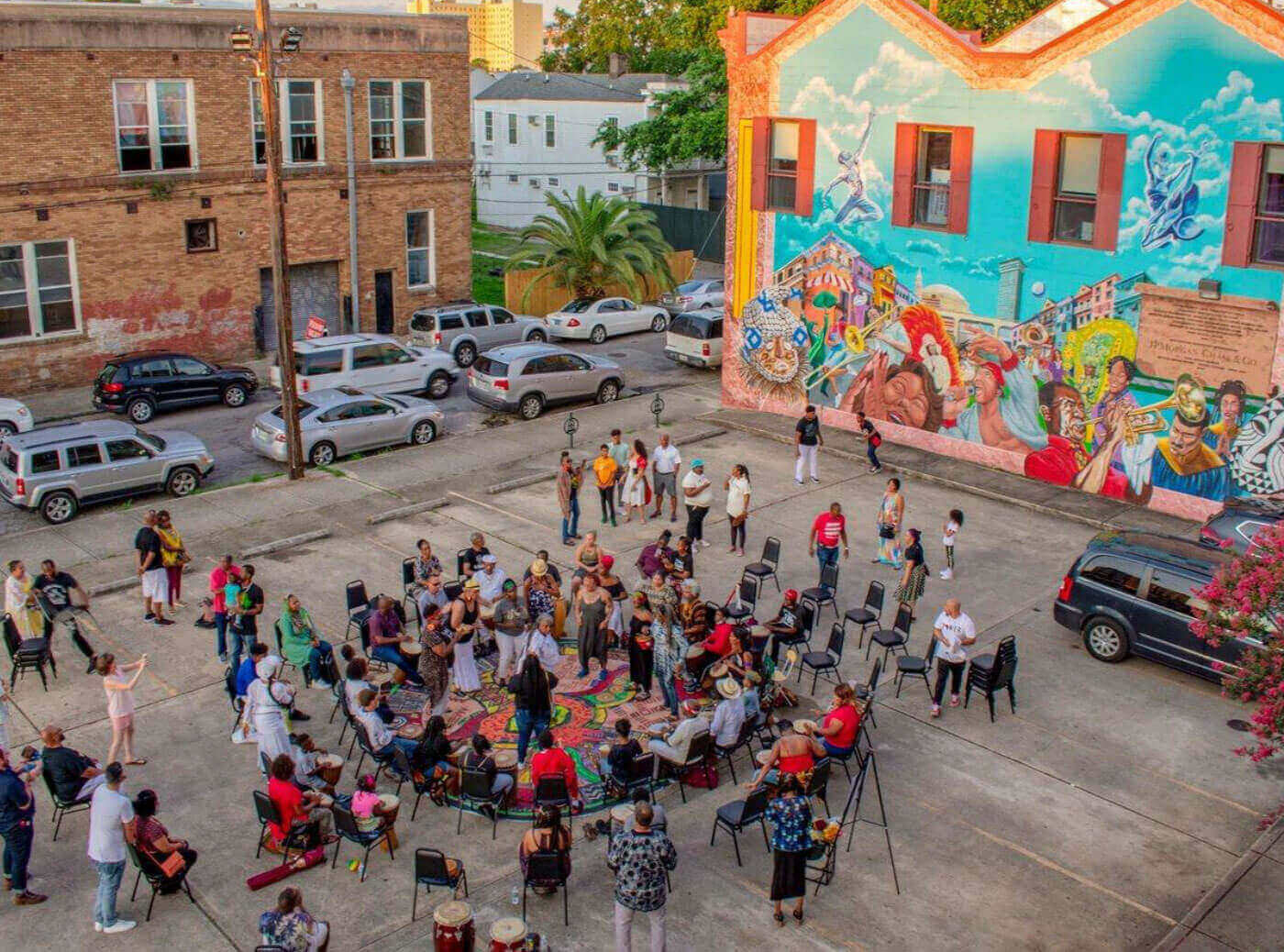
“The energy and spirit of NPN’s conference is so special — it’s a mix of professionalism with informality that makes space for joy and being challenged and real talk. I left with more energy than I started, and that is so rare for a conference!”
– Past attendee
Plenaries and Breakout Sessions
NPN brings artists, cultural workers, activists, funders, and others into community with each other, challenging traditional hierarchies and building connection, trust, and accountability together.

The future of artist mobility
In today’s world — shaped by political upheaval, attacks on human rights, rising costs of living and doing business, decreased funding, and environmental disasters — artist mobility feels increasingly untenable. NPN is partnering with the Design Studio for Social Intervention (DS4SI) to ask: What else is possible? Guided by DS4SI’s Ideas, Arrangements, and Effects framework, DS4SI will host a visioning session to reimagine what artist mobility could look like in this shifting landscape.

Artist-to-artist: making sustainable lives
How do we build lives as artists that are balanced, productive, and sustainable? In partnership with Artists U, we will host a series of workshop conversations throughout the conference addressing these questions. Since 2006, Artists U has been organizing to change the working conditions of artists through a process that is community-driven, skills-based instead of needs-based, and grounded in “slow organizing” that makes room for reflection and connection.

Cultural Movement Assembly
NPN’s conference brings together a confluence of the arts and social justice culture sectors, and at a time when there are so many fronts that pull our attention, we need to find ways to ground ourselves. Movement Assemblies have been used globally as a tool for decades, and NPN is partnering with Project South to lead this assembly, designed to develop a shared understanding of the problems we face, generate intersected solutions, and commit to action.

You Are Not Alone: Safety & Solidarity
Around the world and throughout history, the arts are among the first targets of authoritarianism. Dissent calls on us to not only reaffirm the vital role of artists as disruptors and risk-takers, but to build and invest in safety and solidarity for artists and cultural spaces that speak truth to power. As The Theater Offensive offered in its rules for fellowship in this era: “No blame. No hatred. Love. Unity. Liberation. Abundance.” Keynote conversation with Giselle Byrd, The Theater Offensive; and Julie Trébault, Artists at Risk Connection.

And more!
- The Land is the Mother: Rural Medicine of South Mississippi
- Survival Routes: Touring Trans Performance as a Map of Solidarity
- Soñar es Luchar: On the Radical Possibility of Collective Dreaming
- Centering Palestine: Embodied Practices of Healing, Resistance, and Freedom Amidst Genocide
- Activating the Decolonization Rider
- We Are Essential: Performance of Participatory Research for Racial Justice & Healing
Affinity Groups and Pláticas
NPN’s conference will include several affinity spaces for attendees to gather in community, including:

Affinity Space for Artists & Arts Administrators of Color
Join the Arts Administrators of Color Network for an interactive affinity space centering Black, Indigenous, and People of Color (BIPOC) and global majority-identifying artists and arts administrators. This session offers a space to connect, reflect, and recharge alongside peers with shared lived experiences in the arts and culture sector.
Through peer sharing, community-building activities, and open dialogue, we’ll hold space to process our leadership journeys, name current challenges and needs, celebrate our wins, and explore how we can continue to support one another beyond this session. You’ll also have an opportunity to engage with AAC’s national network and share feedback to help shape the resources and programming designed to support your work and well-being.
Whether you’re new to AAC or a longtime community member, come as you are — we’re excited to be in community with you as part of this year’s NPN Conference experience.
“This area would contain a quote if we want to feature a person talking about this Affinity Space.”


Affinity Space for Trans Persons
A welcoming environment for trans attendees to connect, reflect on current challenges, celebrate resilience, and build solidarity amid an evolving social and political landscape.
Sessions
Our conference theme – Stormshaping: Adaptation, Resistance, Reimagination – is a call to action in tumultuous times, to not simply weather the storms but to reshape our world through collective strength, imagination, and solidarity.
To that end, this year’s sessions explore five main topic areas :
- Artists’ labor and lives: power, practice, sustainability, and well-being
- Creation and mobility: how new artistic and cultural works develop, move, and deepen
- How we work: operations, collaborations, infrastructure, and funding
- Political life: advocacy, activism, cultural policy, and resistance
- The American South: liberation, storytelling, and self-determination
Click “view details” after each session listing to learn more about the session, its related topic areas, and the speakers.
Activating the Decolonization Rider

The Decolonization Rider is a powerful tool designed to protect artists, their work, and collaborators, and to support decolonization processes in institutions. In this session, the rider’s author Emily Johnson, along with Leomary Rodriguez, will explore how artists can utilize the rider to ensure safe and justice-centered engagements with cultural institutions, and how presenting organizations can start their necessary decolonization work. They will also share research generated from their Decolonization Assessment, which asks: What changes have we seen in the field? What persists as perceived challenges toward decolonization? And what are some brilliant success stories?
Type:
Small group discussion
Topics:
Artists’ labor and lives
Creation and mobility
How we work
Political life
Speakers

Emily Johnson (she, her); tribal affiliation: Yup’ik Nation
Director, Emily Johnson / Catalyst
Emily Johnson [EH-muh-lee JOHN-sun] is an artist who makes body-based work. Emily belongs to the Yup’ik Nation, is a land and water protector and an organizer for justice, sovereignty and well-being. A Bessie Award-winning choreographer, Guggenheim Fellow and recipient of the Doris Duke Artist Award, Emily is based in Lenapehoking/NYC and Haudenosaunee lands. Since 1998, Emily’s large-scale performance gatherings insist thrivance, radical reworlding, and just futures.

Leomary Rodriguez (she/her); tribal affiliation: Taíno descendant
Decolonization Rider Analyst & Strategist, Emily Johnson / Catalyst
Leomary Rodriguez [LEE-oh-mah-ree = Leomary] is an Afro-Taína data analyst, storyteller, and strategist who uses data to support decolonial frameworks. Rooted in kinship, care, and accountability, her work centers Indigenous sovereignty and Land Back. With a background in storytelling through various mediums, she uses data to illuminate patterns, uplift truth, and advance Catalyst’s mission for collective liberation.
At the Intersection of Arts & Health: One Nation/One Project Reflects on Arts for EveryBody

Leaders of the national arts and health initiative, One Nation/One Project (ONOP), reflect on their learnings and practices in achieving Arts for EveryBody, a monumental moment on 27 July, 2024 when eighteen cities and towns across the United States premiered eighteen distinct participatory public art projects, each designed to improve community health and wellbeing.
Started in 2021 in response to the COVID-19 pandemic, ONOP supported these eighteen projects over three years of unprecedented collaboration between municipal, artistic, and health sector leaders. The projects represented vastly different economic, social, racial, and geographic experiences, yet worked together to explore the change possible at the intersection of arts and health.
In this session, workshop leaders explore parallels between theater making and movement building; how the arts can be a tool in values-based research, equitable community engagement, and building social cohesion; and with session participants, explore the future possibilities of this work and its implications more broadly in today’s socio-political landscape.
Type:
Facilitated interactive session
Topic:
Artists’ labor and lives
How we work
Facilitators

Clyde Valentín (he, him, his)
Co-Artistic Director & Co-Founder, One Nation/One Project
Clyde Valentín [ValenTEEN] is a Creative Producer, Entrepreneur & Strategist. He has over 25 years of executive experience managing start-up organizational environments, multidisciplinary projects and live events. Valentín co-founded One Nation/One Project (ONOP), a national arts & health project inspired by the WPA’s Federal Theater Program. Through its messaging campaign, Arts for Everybody, ONOP collaborated with 18 cities & towns across the United States, leading up to one collective premiere on July 27, 2024.

Tyler Thomas (she, her, hers)
Associate Artistic Director, One Nation/One Project
Tyler Thomas is a director and theater maker, currently based in NYC. Tyler served as the Associate Artistic Director for the national arts and health initiative, Arts for EveryBody, supporting 18 communities across the country as they work to create 18 distinct public art projects designed to improve community health. She holds a BFA in Drama and MA in Arts Politics from the Tisch School of the Arts.
Centering Palestine: Embodied Practices of Healing, Resistance, and Freedom Amidst Genocide

What dance is possible during a live-streamed genocide? If dance is inherently a practice of bodies, and a conjuring force of empathy and connection, what is this art form’s role amidst this ongoing horror?
Long before the genocide of the Palestinian people began, Body Watani Dance project was centering Palestine in performance and practice. Yet within the escalation of these past two years of genocidal ethnic cleansing, we urgently shifted our role of leading embodied offerings for communities: holding space for grief, rage, and reclamations of aliveness through movement.
This presentation will share video, stories, context and findings from multiple examples of centering Palestine while developing embodied practices in community amidst an ongoing genocide. From the streets of downtown Minneapolis, to the refugee camps in Lebanon, to the valleys of olive trees being stolen in Palestine, what potential does the act of dancing offer in these contexts?
How can movement redirect paralyzing despair of witnessing genocide towards a renewed sense of energy towards collective fight and ongoing indigenous resistance on all fronts? While also — shaping space for rest, soaking in unyielding grief, and soothing our nervous systems? While also — embodying the essence of carving tunnels towards freedom via liberatory practices determined to envision a decolonized world?
Calling to the conversation, folks with resonant questions, perspectives and strategies.
This work is led by two Palestinian sisters of refugee lineages (Leila and Noelle Awadallah) along with collaborators, mentors, and ancestors that guide, challenge, and spiral with us along the way.
Type:
Small group discussion
Topic:
Political life
Speakers

Leila Awadallah (she, her)
Artistic Director, Body Watani Dance project
Leila Awadallah [LAY-la Ah-wa-da-la] is a dancer, choreographer and community collaborator based in Minneapolis and sometimes Beirut – making work in the spirit of the cultural intifada. She is the founder of Body Watani Dance project and recipient of multiple fellowships: McKnight, Jerome Hill, and Daring Dances. Leila’s research, performances, and collaborations have received residencies at Dar Jacir (Palestine), Hammana Artist House (Lebanon), Camargo (France), Arab American National Museum (MI), and across Mni Sota.

Noelle Awadallah (she, her)
Co-Artistic Director, Body Watani Dance project
Noelle Awadallah [No-Well Ah-Wa-Da-La] is a Palestinian-American dancer, improviser, choreographer, and farmer residing in Mni Sota Makoce (Minneapolis). Her work as the Co-Artistic Director of Body Watani Dance is underscored by five years (and counting) of dancing with Ananya Dance Theatre, a BFA from Columbia College Chicago (2018), and her daily pursuit of a “land-based life,” which emerges from sumud — a Palestinian ideology guiding steadfast perseverance and rootedness. Noelle is currently a Jerome Hill Fellow.
The Creatrix Sessions: Rituals for Conjuring Liberatory Worlds

What do we do when it all falls apart? When what was once familiar or seemingly secure is no longer steady? What do you do when the ground beneath your feet begins to shift? When the water table rises or your rights collapse? When it’s time to leave one world for another? Or make a new world in plain sight?
There are those who know this world-weaving magic. The ones who came before. The ones who could fly. These Creatrix pulled seeds from braided hair, gathered roots from falling through sky, to give form to what was formless and shape worlds where once there wasn’t one. These original root womxn, these abolitionist cartographers made sanctuaries in times of impossibility, violence, and despair. While we have much to learn from Creatrix of the past, we too have the power to create new worlds amidst the devastation of destruction. In fact, our futures depend upon it.
The Creatrix Sessions are a series of worldbuilding events conjured by Haus of The Black Madonnx, exploring the sacred power of Queer & Trans Black Feminisms, Afro-Indigenous ancestral cosmologies, and the creative potency of The Dark to open portals to more imaginative, Liberatory and Sovereign futures.
Part collective ritual, part kitchen-table-talk, this participatory session casts a circle offering tangible tools, praxis, and ways-of-being for living into possibility when it feels impossible to do so. Offering medicine from the land-responsive ring shout performance series, The People Can Fly, and the living epistemology, Afro-Indigenous Liberatory Praxis—participants are invited to immerse in the cultural strategies, healing and worldbuilding technologies of ancestral genius.
Celebrating the folkways of the Gulf South, this session is woven with congregational singing, embodied divinations, and collective storytelling providing sustenance and sanctuary to dream beyond our current landscape. Participants will leave with an experiential methodology towards decolonial reorientation and techniques for conjuring liberatory ways-of-being in their artistic praxis, organizations, movements, and lives.
Type:
Facilitated interactive session
Topic:
Artists’ labor and lives
Creation and mobility
How we work
Political life
The American South
Facilitators

ChE (Xé) (we, they, them); tribal affiliation: Choctaw / Cherokee / Afro-Indigenous
Founding Creatrix Director, Haus of The Black Madonnx/ FREEDOM LAND
ChE or Xé is a gender-expansive Afro-Indigenous spiritual practitioner, artist/ choreographer, coach and consultant based in Bvlbancha/ New Orleans. Deeply rooted in Black Feminist and Southern folkways, ChE embodies ancestral medicine to conjure movements beyond the binary. As the Founding Creatrix Director of Haus of The Black Madonnx and FREEDOM LAND, Xé utilizes the decolonial framework, Afro-Indigenous Liberatory Praxis, to cultivate worldbuilders of more imaginative futures.

Nana Fofie Amina Bashir (she, they)
Executive Director, Institute for Ashé Movement
Nana Fofie Amina Bashir is facilitator, artist, spiritualist, and cultural worker based in Bulbancha/New Orleans. Rooted in African Indigenous and Black Southern traditions, she is founder of Ancestral Futurisms and Executive Director of the Institute for Ashé Movement. Her work integrates Circle practice, expressive arts and somatic therapies, creative and memory work to support community wellness and remembrance within a Liberatory praxis.
Devising Inclusive Theater on a Divisive Topic: The Great American Gunshow and Arms Around America

What does it take to make inclusive, community-responsive theater about deeply polarizing topics? This session looks at the creative, ethical, and logistical complexities of making and presenting work that engages with gun culture, gun reform, and gun violence. Using Arms Around America (Dan Froot & Company) and The Great American Gunshow (Team Sunshine) as case studies, we’ll explore how artists and their partners navigate trauma and disagreement, handle institutional backlash and funding challenges, and make creative choices that reflect their values while engaging audiences, community members, and organizational partners.
Type:
Small group discussion
Topic:
Creation and mobility
Speakers

Dan Froot (he/him)
Performance Artist, Dan Froot & Company
Dan Froot’s music, dance, and theater pieces have been presented throughout the U.S. and internationally since 1983, including at the Edinburgh Fringe Festival, London Institute for Contemporary Art, the Harare International Festival of the Arts in Zimbabwe, the Festival de Dança de Londrina in Brazil. His work delves into the social and political dimensions of love and family and the emotional entanglements of major social issues, such as hunger, plastics politics, and the gun debate.

Alex Torra (he/they)
Co-Founder/Co-Artistic Director, Team Sunshine Performance
Alex Torra is a Cuban-American, Philadelphia-based director, producer, and educator. He is the Co-Founder/Co-Artistic Director of Team Sunshine Performance and former Associate Artistic Director of Pig Iron Theatre Company. He also had long-time collaborations with poet Denice Frohman and choreographer/facilitator Shavon Norris. Alex received his B.A. from the UPenn, his M.F.A. in Directing from Brown University, and he currently serves as an Assistant Professor of Theater at Swarthmore College.

Beth Boone (she/her)
Executive and Artistic Director, Miami Light Project
Beth Boone [Beth Boone (rhymes with “dune”)] has shaped Miami’s cultural landscape for 26 years, championing contemporary artists, pioneering Cuba–US exchanges, and founding the Light Box at Goldman Warehouse. She launched Here & Now, nurtured groups like Nu Deco Ensemble and Rosie Herrera Dance, served on national funding panels, and won the USA Beresford Prize for fostering innovation, diversity, and global collaboration. Beth advocates for equity, artists’ rights, and the power of culture to transform communities.

Joyce Chung (she/her)
Curator, Asian Arts Initiative
Joyce Chung leads AAI’s exhibition and performance programs. Her interdisciplinary approach examines identity, memory, and marginalization, with particular attention to how capitalism and power structures shape lived experiences. She is especially drawn to performance and time-based media for their ability to position the body as a site of resistance, reconciliation, and embodied memory. Chung focuses on underrepresented communities, particularly ethnic and gender minorities.
New Tools for New Terrain: Supporting Artists at the Intersections

Artists, culture bearers, and creative practitioners who exist at the intersection of social transformation require new infrastructure capable of supporting their work, particularly when they are operating within systems designed to exclude them. This session draws on “Looking Back to Move Forward,” a participatory action research study of BIPOC artists and culture bearers in Detroit, Memphis, and New Orleans that identifies promising support practices for artists, organizations, and funders. The discussion is moderated by Cézanne Charles, one of the authors and researchers of the study and a practicing artist making work at the intersection of technology, society, and equitable futures.
Type:
Small group discussion
Topic:
Artists’ labor and lives
Moderator

Cézanne Charles (she, her, hers)
Partner, rootoftwo
Cézanne Charles [SAY-Zahn] is a creative practitioner and researcher whose work focuses on the intersection of art, design, technology, culture, economy, social justice, and public policy. Cézanne co-directs with John Marshall, rootoftwo. a research- and practice-driven art, design, and technology studio based in Detroit. Together, they explore the consequences of under-imagined futures, creating artifacts, spaces, publications, experiences, events, research, and public works.
Speakers

Jes Allie (she, her, hers)
Co-Director, BULK Space
Jes Allie is an independent curator and Co-Director of BULK Space in Detroit. With over a decade in the arts, she works to ensure marginalized creatives have access to resources and opportunities. Her practice focuses on cultural place-keeping, site-specific works, and meaningful community engagement that brings art beyond institutions and into everyday life.

Judilee Reed (she, her, hers)
President & CEO, United States Artists
Judilee Reed is the President & CEO of United States Artists. A leader in arts and culture, Judilee has built a career supporting artists and arts and culture focused work in the urban, rural, and tribal communities across the United States and internationally. Reed has held Director positions at the William Penn Foundation and Surdna Foundation. She studied art and art history at the University of New Hampshire and has alumnus status at the Harvard Business School.

Ama Rogan
Managing Director, A Studio in the Woods
Ama Rogan is Managing Director of A Studio in the Woods at Tulane University, an artist residency program fostering creative responses to environmental and social challenges of our time. Rogan holds a BFA in Painting from RISD. Under her two-decade leadership, the Studio has become an internationally recognized leader in place-based residencies, supporting nearly 400 artists, activists, and scholars, and centering community engagement and interdisciplinary exchange in a wooded environment on the frontlines of climate change.
Participatory Art: Seed Syllables in Practice

What stories might we share around how we and others are impacted by participatory creativity and the activation of collective healing? Led by artists Chrissie Orr and Meena Natarajan, Seed Syllables was an artistic response to the events that changed our lives in 2020 and still impact us today. Conversations with artists, activists, and organizers were transformed into poems accompanied by visual art, music, and gesture, in a land-based participatory ritual. Using Seed Syllables as our jumping off point, we’ll look at what needs to be in place to allow for authentic participatory creativity to emerge, and what creative practices animate collective healing and community transformation, especially in the current moment.
Type:
Facilitated interactive session
Topics:
Artists’ labor and lives
Creation and mobility
How we work
Political life
Facilitators

Meena Natarajan (she, her, hers)
Co-Artistic/Executive Director, Pangea World Theater
Meena Natarajan [Meena Nat-ar-aa-jan] is a playwright and director and the Artistic and Executive Director of Pangea World Theater, a progressive, international ensemble space that creates at the intersection of art, equity and social justice. She has written at least ten full-length works for Pangea, ranging from adaptations of poetry and mythology to original work as well as create participatory ritual-based site-specific performances. She also directs and dramaturgs original theater and performance art pieces.

Chrissie Orr (she, her)
Creative Practice Fellow, Academy for the Love of Learning
Chrissie Orr [Chri-ssie Or] is an artist, seed steward and creative investigator exploring intersections between the creative process, renewal of collective story, and participatory social action. Her vocation engages the transformative capacity of Mother Nature to cultivate connection to place and belonging, strengthen community capacity, and renew our compass bearings in this time of radical transitions. She is the co-founder of SeedBroadcast, Creative Practice Fellow at the Academy for the Love of Learning.

Dipankar Mukherjee (he, him, his)
Artistic Director, Pangea World Theater
Dipankar Mukherjee [Dee-paank-er Moo-kher-gee] is a professional director originally from Kolkata India with a 35+ year history of directing. As a director, he has worked in India, England, Canada and the United States. His aesthetics have evolved through his commitment to social justice, equity and deep spirituality along with a response to relevant politics. Dipankar facilitates processes that disrupt colonial, racist and patriarchal modalities of working and collaboratively searches for an alternate way.
Power in Numbers: Methods and Tools for Calculating Equitable Budgets and Fees

Budgets and fees are expressions of what is valued. What kinds of processes and tools can help artist workers, contracting entities and funding bodies foster equitable financial interdependence, resilience, and collaboration within the performing arts ecosystem? What are numbers that reflect dignity? The “Designing your Fees” worksheet was created by Makini as a starting place for artists to define their financial goals and dreams in relation to their current and future lives. Session participants will explore and reflect on an improved draft version of the worksheet that incorporates findings from participatory research with performing artists from across the US and Brazil.
Type:
Facilitated interactive session
Topics:
Artists’ labor and lives
How we work
Facilitators

Makini
Independent Artist
An artist and organizer based on traditional lands of the Tutelo-Saponi speaking peoples, Makini strives to engage in and further dialogues with Black queer folks; create lovingly agitating performance work that recognizes History as only one option for the contextualization of the present; and continue to encourage artists to understand themselves as part of a larger community of workers who are imagining pathways toward economic ecosystems that prioritize care, interdependence, and delight.

Nefertiti Charlene Altan (she, her)
Independent Artist
Nefertiti Charlene Altan is an afro-indígena, transdisciplinary performance artist, educator, producer, researcher, activist and language interpreter working towards embodied liberation through dance-based storytelling that centers Black and Indigenous memories, resistance, feminisms and futurist dreams. She is currently an adjunct professor at Saint Mary’s and a co-director with Makini and Anderson Feliciano of the interdisciplinary performance project TERRESTRIAL.
RE-ORIENTATIONS: Case Study of a creative process of queer POC creation in response to the work of Sarah Ahmed

This workshop explores the terms of engagement that produced a mixed-media / live-processing performance that combines soundscaping, VR explorations, dance performance, projection mapping and storytelling to craft an immersive experience of Black thought and Black wonderment. The work was created by a quartet of queer artists across a three year rehearsal and development process. Topics discussed will include the technology interfaces, theoretical groundings, and performance outcomes of an improvised work of live-processing mixed-media performance rooted in Black Feminist Thought.
Type:
Small group discussion
Topic:
Creation and mobility
Moderator

Shireen Dickson (she, her)
Managing Director, SLIPPAGE
Shireen Dickson [Shuh-REEN] is the Managing Director of SLIPPAGE Lab at Northwestern University. Since 2010 she has directed OKRA Dance, which presents African and American diasporic dance and world rhythmic forms in schools, libraries, museums and festivals throughout the US. Shireen is a founding executive board member of the Collegium for African Diaspora Dance and directed their bi-annual conference at Duke University for 10 years.
Speakers

Thomas F. DeFrantz (he, him, Tommy)
Artistic Director, SLIPPAGE
Thomas F. DeFrantz is Professor of Theater and Performance Studies at Northwestern University and directs SLIPPAGE: Performance|Culture|Technology, the Chicago-based group explores emerging technology in live performance applications. DeFrantz believes in our shared capacity to do better and engage creative spirit for a collective good that is anti-racist, proto-feminist, and queer affirming.

MX Oops (they, them)
Researcher, SLIPPAGE
MX Oops [EM-Ex] is an Associate Professor of Dance, Multimedia Performance, and Somatics at Lehman College, City University of New York. Founder of Complex Stability, a research and multimedia production company, their creative practice links urban arts [breaking, house, vogue, rap, dj, vj, fashion design], somatic studies (yoga, Thai Yoga Massage, energy healing, sound baths), media, and gender studies. This transdisciplinary approach questions whether consciousness itself is the primary medium.
Sentient Ruins: Moving Through These Times, With Care

Today’s dance field is deeply endangered by funding cuts, calls for censorship, the heightening of presenter “bad behavior” (no doubt caused by uncertainty about the future), and the general struggle to survive through these violent times. Inspired by provocations from adrienne maree brown, this session will gather leaders, particularly BIPOC performing artist leaders, to brainstorm ways for us to create strategies of collective support and advocacy, highlight modes of communication that decenter divisive hierarchies, move away from competitive exceptionalism, and forge models of mentorship that swerve away from harm for the next generation of artists.
Type:
Facilitated interactive discussion
Topic:
Artists’ labor and lives
How we work
Facilitator

Ananya Chatterjea (she/her)
Artistic Director (unpaid), Ananya Dance Theatre
Ananya Chatterjea’s (2011 Guggenheim Choreography Fellow, 2012 and 2021 McKnight Choreography Fellow, 2019 Dance/USA Artist Fellow, 2018 UBW Choreographic Center Fellow) work = social justice choreography + artistic excellence. Artistic Director of Ananya Dance Theatre, architect of the company’s community-responsive choreographic methodology. Her 2020 book Heat and Alterity in Contemporary Dance: South-South Choreographies (Palgrave McMillan) was awarded the 2022 Brockett Book Prize.
Speakers

Edisa Weeks (she/hers)
Choreographer, Director, Educator, DELIRIOUS Dances
Edisa Weeks is a choreographer, educator, and director of DELIRIOUS Dances. She is the recipient of several awards including a 2024 MAP Fund Grant and a 2022 Creative Capital Grant. Edisa creates multimedia interactive work, which explores issues in society such as how the media is used to manufacture consent; examining what is the promise of America; and why life, liberty and happiness were included as unalienable rights in the United States Declaration of Independence.

Christopher Kaui Morgan (he/him)
Artistic Director, Christopher K. Morgan & Artists/ Malashock Dance
Christopher Kaui Morgan is a choreographer, performer, educator, facilitator, curator, and arts administrator. Known as a thoughtful advocate for cultural integrity, inclusivity, and diverse representation in the studio and on stage, his Native Hawaiian ancestry and wide-ranging international career influence all aspects of his work. He creates performances that synthesize dance, storytelling, original music, and multimedia design to explore identity, social, and cultural issues.

Dora Arreola (she/hers)
Artistic Director, Mujeres en Ritual Danza-Teatro
Dora Arreola has more than 30 years of professional experience as a theater director, choreographer, and performer. She is Professor of Theatre at the University of South Florida and faculty of the National Institute of Directing and Ensemble Creation. She has taught, directed, and performed nationally and internationally in Mexico, U.S., Nicaragua, Canada, Poland, India, Spain, and Italy. She is founder and artistic director of Mujeres en Ritual Danza-Teatro (Tijuana, Mexico & Tampa, US).
Soñar es Luchar: On the Radical Possibility of Collective Dreaming

What if, instead of a play, theatre was a backyard garden; a fugitive library; a taller for dreaming; a meal with friends and strangers; or a place where we gather to tell stories, fully embodied, at a table of our own making where nobody goes hungry? This session will be part case study outlining the evolution of a todo dar productions, and part interactive workshop where audience members will share their biggest, boldest, most audacious dreams and how the theatre they are making reflects the world they imagine.
Type:
Facilitated interactive session
Topics:
Artists’ labor and lives
Creation and mobility
How we work
Political life
The American South
Facilitators

Marissa Ramirez (she, her, hers)
Creative Producer, Fugitive Libraries, a todo dar productions
Marissa Ramirez designs arts-based interventions and creates public spaces for reading the world culturally and politically. She is a founding member of Books in the Barrio, established in 2003, in an effort to bring attention to the lack of bookstores on the South Side of San Antonio. Books in the Barrio continues as an ongoing grassroots campaign promoting self-determination and autonomy through literacy.

Kendra Ware (she, her, hers)
Creative Producer/Director, a todo dar productions
Kendra Ware is a multidisciplinary performance artist whose practice encompasses staged environments, experimental art-making, live performance, video, and installation. Her work interrogates the intersections of race, gender, class, cultural politics, and identity, challenging social norms and notions of otherness. Ware’s staged works range from traditional theater settings to site-specific interventions, such as prisons, underpasses, street corners, bookstores, plazas, and parks.

Virginia Grise (she, her, hers)
Creative Producer, Fugitive Libraries, a todo dar productions
Virginia Grise is a founding member of a todo dar productions. Her interdisciplinary body of work as a writer, director, performer and creative producer includes plays, multimedia performance, dance theater, performance installations, guerilla theater, site specific interventions, and community gatherings. She is an Assistant Professor in Theatre and Dance at the University of Texas at Austin and currently serves as the Mellon Foundation Playwright in Residence at Cara Mia Theatre.
Survival Routes: Touring Trans Performance as a Map of Solidarity

Touring trans-led performance is more than just moving work from city to city — it is an opportunity to build living networks of care, knowledge, and solidarity across vastly different geographies. Connecting trans touring artists to local trans organizations creates safer, more informed environments for artists traveling into unfamiliar regions, and allows local communities to build reciprocal relationships with artists who carry different experiences, knowledge, and resources. This is particularly crucial for trans artists and audiences living outside of major urban centers, where access to affirming care, community, and resources may be limited or fragile. By building these intentional connections, touring projects can seed long-lasting networks of care that exist independently of state and institutional support.
In this panel, trans and queer artists, presenters, and cultural workers reflect on how touring can serve as collective movement-building and infrastructure for survival. We’ll explore concrete strategies for building reciprocal touring models that don’t simply import work, but help nourish local trans communities while building solidarity across distance, so that touring becomes a map of mutual aid, cultural power, and trans survival.
Type:
Small group discussion
Topics:
Artists’ labor and lives
Creation and mobility
How we work
Political life
Facilitator

Lyam B. Gabel (they, he)
Co-Director, Future Ghost
Lyam B. Gabel is a trans director, writer, and performance-maker whose work centers queer and trans histories through performance, oral history, and new media. Co-lead of Future Ghost, a trans/queer ensemble making design-driven performance, Lyam’s projects include the dance floor, the hospital room, and the kitchen table (NPN Creation Fund, CAC New Orleans, Kelly Strayhorn), DADDY, The House of Telescopes (Pipeline Theatre), and Amm(i)gone (Woolly Mammoth, The Flea, Long Wharf).
Speakers

Nigel Semaj (they, them)
Assistant Professor, UMBC
Nigel Semaj is a Baltimore-based director and movement artist whose work embraces the haunting wail of grief, violence, and love. Their directing spans the Off-Broadway premiere of Bloodshot, Shange’s Spell #7, and Lavery’s Slime. Adaptations like 10,000 Moor, For Hylas, and Call Me By Any Other Name…Just As Sweet reimagine classics through rage, loss, and queer desire. Trained with Frantic Assembly, Pig Iron, and Tectonic, their work spans plays, operas, musicals, and film.

Ben Pryor (he, him)
Programming Director, Kelly Strayhorn Theater
Ben Pryor is invested in artists working across performative practices who challenge the boundaries of artistic forms and normative contexts, believing in excess, refusal, transformation and transcendence. Since 2009 Pryor has worked with artists to build and tour new evening-length performances. Pryor has collaborated with 83 museums, festivals and cultural institutions in 54 cities across 16 countries and is currently Programming Director for Kelly Strayhorn Theater in Pittsburgh, PA.

Nathalie Nia Faulk (she, they)
Director of Philosophy, Thought, and Leadership, Southern Organizer Academy
Born in Lafayette, Louisiana and now living in New Orleans, Nathalie Nia Faulk is a self-described Ebony Southern Belle whose work blends performance, history, healing justice, cultural organizing, and leadership development—especially for trans and queer people. She serves as Director of Philosophy, Thought, and Leadership at Southern Organizer Academy and as Cultural Organizing Programs Specialist at Alternate ROOTS. An Aquarius Sun, she believes everyone is valuable—and she’s a Beyoncé enthusiast!
We Are Essential: Performance of Participatory Research for Racial Justice & Healing

This panel shares the unique development process and findings for performance art and film created through participatory research with Latino essential workers in Paul S. Flores’ Somos Esenciales/We Are Essential, which addressed racial justice and mental health. Presenter and dancer Milteri Tucker Concepción will also share how Puerto Rican Bomba dance empowers and heals, develops leadership in youth of color, and improves mental health for incarcerated populations. Together, we discuss how we approach racial justice through participatory action research, and develop performance productions that feature culturally grounded healing practices outside clinical settings.
Type:
Small group discussion
Topic:
Artists’ labor and lives
Creation and mobility
How we work
Political life
Speakers

Paul S. Flores (he him his)
Writer/Performer/Director
Paul S. Flores [Pawl FLOD-es] is a San Francisco artist of Mexican and Cuban-American descent who integrates indigenous and Latino healing practices to tell the stories of real people impacted by immigration and systemic inequalities. He is author of plays We Have Iré (2019); PLACAS (2012); and On The Hill: I Am Alex Nieto (2016). Paul is a Doris Duke Artist Award winner and 2024 American Book Award winner. He is Principal Investigator of the NIH funded Somos Esenciales project, and teaches theater at USF.

Milteri Tucker Concepción (She Her)
Founder/Artistic Director, Bombazo Dance Co.
Born and raised in Puerto Rico, Milteri Tucker Concepción [Mil-TERI Tuck-er Con-Cep-ci-ON] holds degrees in Dance, Biology and Chemistry as well as a Masters Degree in Dance Education from New York University. She is the founder and artistic director of Bombazo Dance Co, a Puerto Rican Bronx based non profit dance organization that preserves, educates, advocates and performs Bomba Puertorriquena. As an educator and master Bomba dancer, she lectures on dance technique, figure and timing across the United States and the world.
We Are the SOIL.

This immersive, sensory workshop invites healers, cultural workers, and community caretakers to ground their practices in a collective, embodied ritual of “soil determination.” Centering the American South as an abundantly rich ecosystem of creativity and ancestral technology, we explore land and body as text through film, storytelling, and a guided Cosmogram mapping exercise that links personal, ancestral, and ecological constellations. Participants will trace personal and communal lineages, engaging rural Mississippi’s spirit and ingenuity as a living medicine for collective liberation.
Type:
Facilitated interactive session
Topic:
The American South
Facilitators

Nana Kumi (she, her)
Independent Artist, Gholden Alchemy
Nana Kumi [Nah-Nah Koo-me] is a queer black southern artist, emerging filmmaker, spiritual herbalist, and land steward from Natchez, Mississippi. Her visual work translates the language of plants, visions, and dreams into naturalist and afro-surrealist landscapes as activation sites for re-remembering. She proudly uplifts Mississippi as the fertile lands that shaped her, along with her ancestry from West Africa and Brazil — lineages that inform both her creative and spiritual work.

Shabaz Brown (she/her)
Artist / Director of Intercultural Engagement, University of Texas – Arlington
Shabaz Brown [Sha-Boz Brown], a Mississippi native, holds degrees in Human Sciences and Educational Psychology. A proud member of Delta Sigma Theta Sorority, Inc., she brings over 10 years of experience in Multicultural Affairs. Shabaz currently serves as Director of the Intercultural Student Engagement Center, where she empowers communities, supports student success, and leads with equity. She enjoys mindfulness, hiking, and building meaningful campus relationships.
Past Conference Highlights
A Dialectic for Our Times
adrienne maree brown, kai barrow, and Charlene A. Carruthers discuss how abolition, justice, and liberation runs through their works.
How We Gather
Indigenous voices provide essential principles for decolonizing and indigenizing our field.
Keynote: Mel Chin
Mel Chin shares how art can address social and environmental challenges, from toxic landfills to lead contamination, to create works that provoke awareness and responsibility.
“The survival of my own ideas may not be as important as a condition I might create for others’ ideas to be realized.”
Logistics & FAQs
When:
Monday, October 6th – Thursday, October 9th, 2025
Where:
New Orleans, Louisiana, also called Bvlbancha, a Choctaw word that means the Land of Many Tongues.
Hotel:
Our conference site is The Royal Sonesta, a historic hotel in the heart of the French Quarter, with rooms at $220/night (available October 5-11). Reservation deadline for room rate guarantee: Friday, August 29.
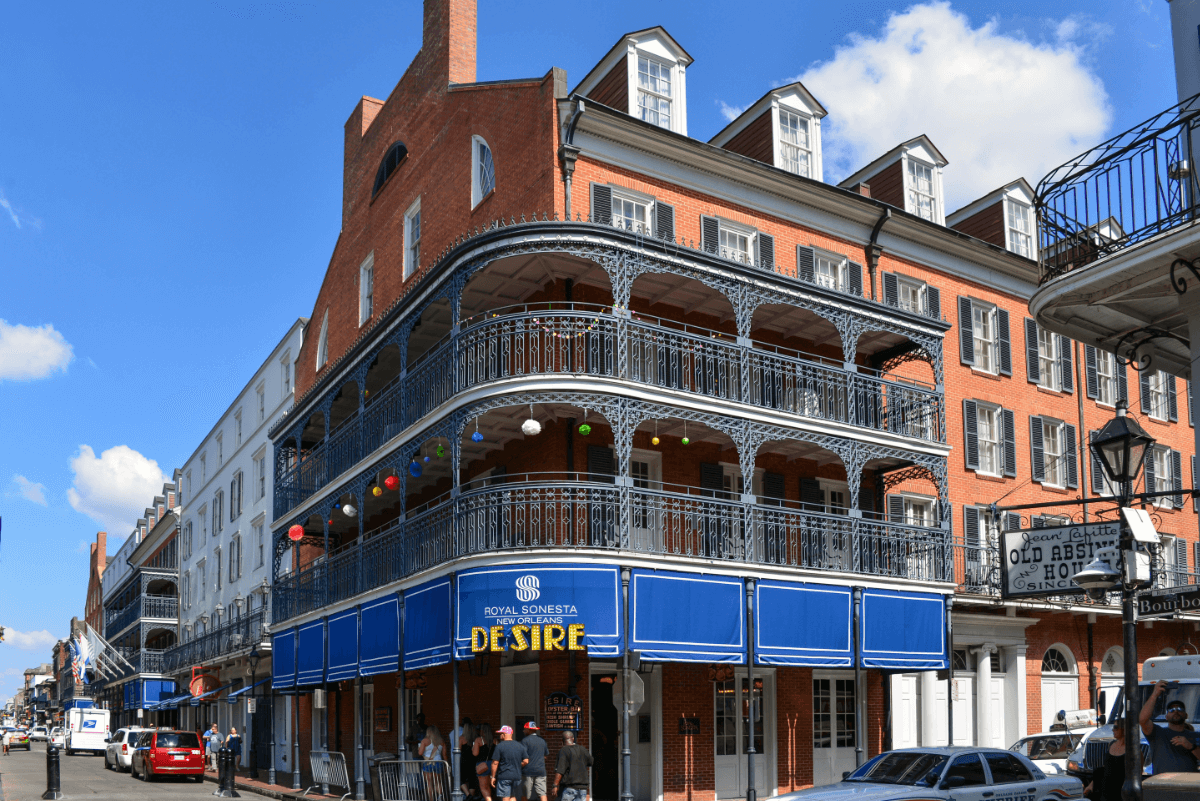
Attendee Health & Safety
NPN strives to center the health, safety, and wellbeing of all conference attendees, and we ask registrants to commit to each other’s wellbeing in this spirit of collective care. We are also working with our conference venue partners at the hotel and off-sites to share in these commitments. Please reach out with any questions or clarifications to .
Masking will be required of attendees while indoors in conference spaces, unless actively eating, drinking, presenting, or performing. We also strongly encourage all attendees to self-test for COVID within 24 hours prior to arrival; self-administered COVID tests will also be available at registration.
If you develop symptoms during the conference, please isolate and take a COVID test (contact NPN staff if you need us to get a test to you). If you test positive for COVID prior to travel or upon your arrival, or you know you have been exposed to COVID, prioritize your health and the health of other attendees by not attending the conference and notifying us as soon as possible. We will provide a full registration refund to any registrant who cannot attend due to a positive test result.
Everyone! The NPN Conference is a place for artists, culture workers, funders, policy and movement builders, social justice organizers… and anyone else interested in the intersection of art, culture, and justice.
Engage with artists and their work through performances, workshops, visual art, and artist talks, both on-site and at neighborhood venues around New Orleans. Our off-site partners for artistic programming include Ashé Cultural Arts Center, Mondo Bizarro’s Catapult, and more.
NPN brings artists, cultural workers, activists, funders, and others into community with each other, challenging traditional hierarchies and building connection, trust, and accountability together.
We offer a General Admission ticket for $500, as well as a Pay-What-You-Can tier of $250. The Pay-What-You-Can tier is intended for independent artists and individuals not affiliated with an institution. Please see the registration site for specific pricing.
We encourage all attendees to contribute to NPN’s Scholarship Fund!
We’ve secured a special conference hotel rate of $220 per night at The Royal Sonesta in the French Quarter, New Orleans, LA.
New Orleans has been National Performance Network’s headquarters since 2001, and with the return of our in-person conference, we say, “Welcome home!” While our work takes place across the country, we ground our actions in New Orleans and the South, believing no national strategy is complete without being inclusive of southern communities of color.
Known by the Choctaw as Bvlbancha, which means “the land of many tongues,” the city has always been a place of cultural exchange. Today, New Orleans continues to be a place fighting for racial, economic, and environmental justice, where artists and culture bearers lead the charge for social change.
Our conference site is The Royal Sonesta, a historic hotel in the heart of the French Quarter, with rooms at $220/night (available October 5-11).
Live captioning (CART) and real-time ASL interpretation will be provided for all plenary sessions. All conference venues are ADA-compliant.
Cancellation requests must be received in writing by Monday, September 8, 2025, by emailing ; NPN will issue a 75% refund for cancellations made by September 8. If your plans change, consider gifting your registration to a colleague! Should circumstances arise that result in NPN’s cancellation or postponement of the conference, NPN will issue a full refund to all registered attendees.
“NPN is just a whole different animal than other performance conferences, and one at which the welcoming of truth is palpable.”
– Past attendee
Land Acknowledgment
NPN is headquartered in Bvlbancha, the Choctaw name for New Orleans, meaning the Land of Many Tongues. New Orleans is on the ancestral and unceded lands of the Caddo, Chitimacha, Choctaw, Houma, Ishak, Natchez, and Tunica peoples, and the petites nations. We also recognize the Alabama, Biloxi, Koasati, and Ofo peoples, and others who were forced into Louisiana from their ancestral lands. We aim to honor these communities, past, present, and future.